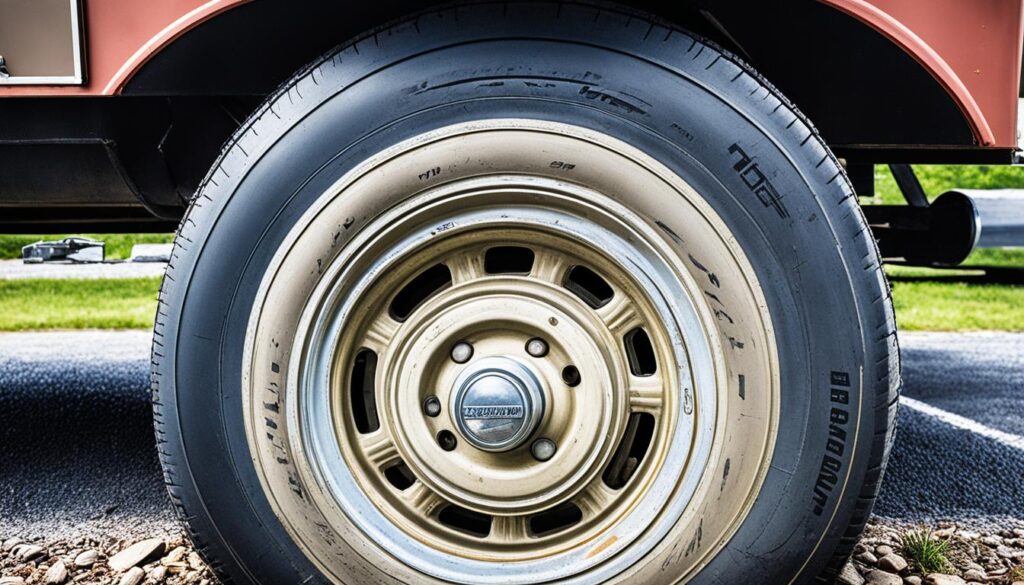

How Long Do Travel Trailer Tires Last: A Guide for RV Enthusiasts
As an RV enthusiast, have you ever wondered how long your travel trailer tires can last? Do you believe that mileage is the only factor determining the lifespan of these essential components? Or are there other factors at play that you might not have considered?
In this guide, I will provide you with insights into the average lifespan of travel trailer tires and the factors that can influence their durability. We will explore how proper maintenance and care can extend the life of your tires, as well as the signs that indicate it’s time for a replacement. Let’s dive in and uncover the truth about travel trailer tire longevity.
Key Takeaways:
- The average lifespan of travel trailer tires is around 5 years, based on age rather than wear.
- Factors such as tire quality, driving conditions, weight distribution, and tire maintenance can affect tire lifespan.
- Regularly inspect your tires for signs of wear and tear, such as cracks, bulges, uneven wear, and low tread depth.
- Proper tire maintenance and care, including maintaining correct tire pressure, can help extend their lifespan.
- Tire replacement should be based on age, condition, and manufacturer recommendations, rather than solely on mileage.
- 1 Factors Affecting Travel Trailer Tire Lifespan
- 2 Signs of Worn Out Travel Trailer Tires
- 3 Maintenance Tips for Travel Trailer Tires
- 4 When to Replace Travel Trailer Tires
- 5 Tips for Tire Safety and Performance
- 6 Tire Types for RVs
- 7 Tire Storage Tips
- 9 Source Links
Factors Affecting Travel Trailer Tire Lifespan
When it comes to the lifespan of travel trailer tires, several factors play a role in determining how long they will last. From tire quality to driving conditions and maintenance practices, understanding these factors can help RV enthusiasts maximize the longevity of their tires and ensure safer travels.
Tire Quality
The quality of the tire itself is one of the most significant factors affecting its lifespan. High-quality tires are designed to withstand the unique demands of RV travel, offering greater durability and longevity compared to low-quality ones. Investing in tires from reputable brands known for their quality and performance can greatly extend the lifespan of travel trailer tires.
Driving Conditions
The conditions in which you drive your travel trailer can also impact tire lifespan. Rough roads, extreme temperatures, and frequent encounters with potholes or debris can result in quicker tire wear. It’s important to consider the road conditions you typically encounter and adjust your driving habits accordingly to minimize unnecessary strain on the tires.
Weight Distribution
Proper weight distribution is crucial for maintaining the health of travel trailer tires. Overloaded tires can lead to excessive wear and can compromise tire safety. Ensuring that weight is evenly distributed across all tires and not exceeding their maximum weight capacity will help prevent premature wear and potential tire failure.
Tire Pressure
Maintaining the correct tire pressure is essential for extending the lifespan of travel trailer tires. Underinflated or overinflated tires can cause uneven wear, reduced fuel efficiency, and increased risk of tire failure. Regularly check and maintain the recommended tire pressure to maximize tire lifespan and ensure optimal performance on the road.
Environmental Factors
Environmental factors such as exposure to UV rays and moisture can contribute to tire aging and deterioration. RV owners should take precautions to protect their tires from excessive sunlight and moisture by using tire covers when the trailer is parked and storing the tires in a cool, dry environment when not in use.
By considering these factors and following proper maintenance practices, RV enthusiasts can maximize the lifespan of their travel trailer tires, ensuring safer travels and reducing the need for frequent replacements.
Signs of Worn Out Travel Trailer Tires
Regularly inspecting travel trailer tires is essential to ensure safe and smooth RV travels. By keeping an eye out for certain signs of wear and tear, you can detect potential issues early on and prevent tire blowouts on the road.
Here are some common signs of worn out travel trailer tires:
- Cracks: Check the sidewall and treads for cracks, as they indicate tire aging and potential failure.
- Bulges or Bubbles: Any bulges or bubbles on the sidewall are signs of internal damage and must be addressed immediately to prevent tire failure.
- Uneven Wear: Inspect the tire surface for uneven wear patterns, which can indicate improper weight distribution or misalignment.
- Tread Depth: Measure the tread depth and ensure it is above the recommended threshold. If it falls below 4/32 of an inch, it’s time to replace the tires as they no longer provide adequate traction.
Regularly checking for these signs can help you identify worn out travel trailer tires and take appropriate action to ensure your safety on the road. Remember, proactive tire maintenance is crucial for a smooth and worry-free RV journey.
“Inspecting your travel trailer tires for signs of wear and tear is an important part of RV maintenance. By identifying and addressing any issues early on, you can ensure a safe and enjoyable travel experience.”
Maintenance Tips for Travel Trailer Tires
Proper maintenance is essential for maximizing the lifespan of travel trailer tires. By following these maintenance tips, you can extend the life of your tires and ensure a safer and smoother RV experience.
- Regularly Check and Maintain Tire Pressure: It is crucial to check the tire pressure regularly and maintain it according to the manufacturer’s recommendations. Adequate tire pressure helps optimize tire performance and prevents premature wear and damage.
- Inspect for Signs of Wear and Damage: Before each trip, thoroughly inspect your travel trailer tires for any signs of wear, cracks, bulges, or punctures. Promptly address any issues to avoid potential tire failure on the road.
- Rotate Tires Periodically: Rotate your travel trailer tires regularly to promote even wear. This helps extend the overall lifespan of the tires and ensures better traction and stability while driving.
- Keep Tires Clean: Wash your travel trailer tires regularly to remove dirt, grime, and road debris. Keeping the tires clean helps prevent buildup, which can lead to accelerated wear and decreased performance.
- Protect Tires from UV Rays: When parked for extended periods, use tire covers to shield your travel trailer tires from harmful UV rays. UV exposure can cause tire degradation and reduce their lifespan.
- Avoid Parking on Wet or Uneven Surfaces: Parking your RV on wet or uneven surfaces can lead to moisture damage and uneven tire wear. Whenever possible, park on dry, level ground to protect your tires.
- Store Unused Tires Properly: If you have spare tires or need to store your travel trailer tires, ensure they are stored in a cool, dry environment away from direct sunlight and air currents. This helps prevent premature aging and deterioration.
By implementing these maintenance tips, you can significantly increase the lifespan of your travel trailer tires and enjoy safer and more reliable journeys on the road.
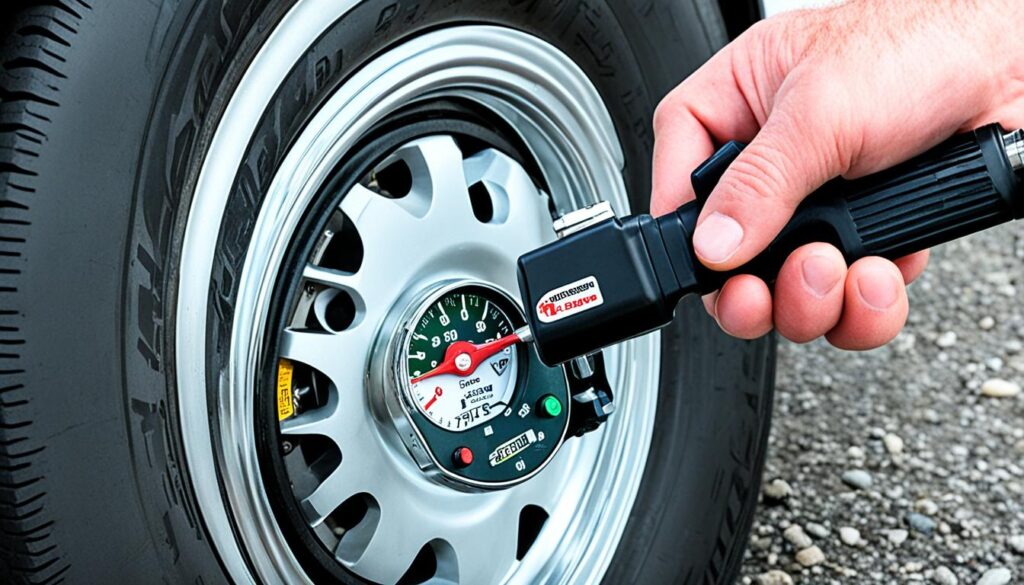
When to Replace Travel Trailer Tires
Knowing when to replace travel trailer tires is crucial for ensuring the safety and performance of your RV. Rather than solely focusing on mileage, it is recommended to replace travel trailer tires every 5 to 6 years. This is because tires deteriorate over time due to various factors.
Exposure to UV rays, moisture, and chemical changes in the rubber can all contribute to tire aging and degradation. Regardless of the amount of use, old tires can become more prone to failures and blowouts, jeopardizing the safety of your travels.
Regular inspections are essential in determining when it’s time to replace your travel trailer tires. Look out for signs of wear, damage, or tread depth below the recommended threshold. If you notice cracks, bulges, uneven wear, or tire treads that are worn out, it’s a clear indication that replacement is necessary.
By staying vigilant and proactive in monitoring the condition of your travel trailer tires, you can prioritize safety on the road and prevent potential accidents. Remember, safety should always be the top priority when it comes to your RV adventures.
Tips for Tire Safety and Performance
To ensure tire safety and optimal performance for your RV, it’s important to follow these tire safety tips and practices:
- Maintain proper tire pressure: Regularly check and maintain the correct tire pressure according to the manufacturer’s recommendations. Proper inflation helps improve fuel efficiency, handling, and tire longevity.
- Keep the tires balanced and aligned: Ensure that your RV’s tires are balanced and properly aligned. Imbalanced or misaligned tires can cause uneven wear, leading to decreased performance and potential safety issues.
- Properly distribute the weight: When loading your RV, distribute the weight evenly to avoid overloading individual tires. Uneven weight distribution can put excessive stress on certain tires, leading to premature wear and potential tire failure.
- Avoid excessive speeds: Adhere to the speed rating specified by the tire manufacturer. Driving at excessive speeds can generate excessive heat, compromising tire safety and performance.
- Avoid abrupt braking and acceleration: Sudden and aggressive braking or acceleration can put stress on the tires and increase the risk of tire damage or failure. Practice gradual and smooth maneuvers to protect the tires.
- Avoid parking near sharp objects or debris: When parking your RV, be cautious of sharp objects or debris that can puncture or damage the tires. Park in designated safe areas to minimize the risk of tire-related incidents.
- Follow manufacturer’s recommendations: Always refer to the manufacturer’s guidelines for tire care and maintenance. This includes recommended tire rotation intervals, inspections, and any specific recommendations for your RV’s tire model.
By implementing these tire safety tips , you can enhance the safety and performance of your RV tires. Proper tire maintenance is vital for a smooth and secure road-tripping experience.
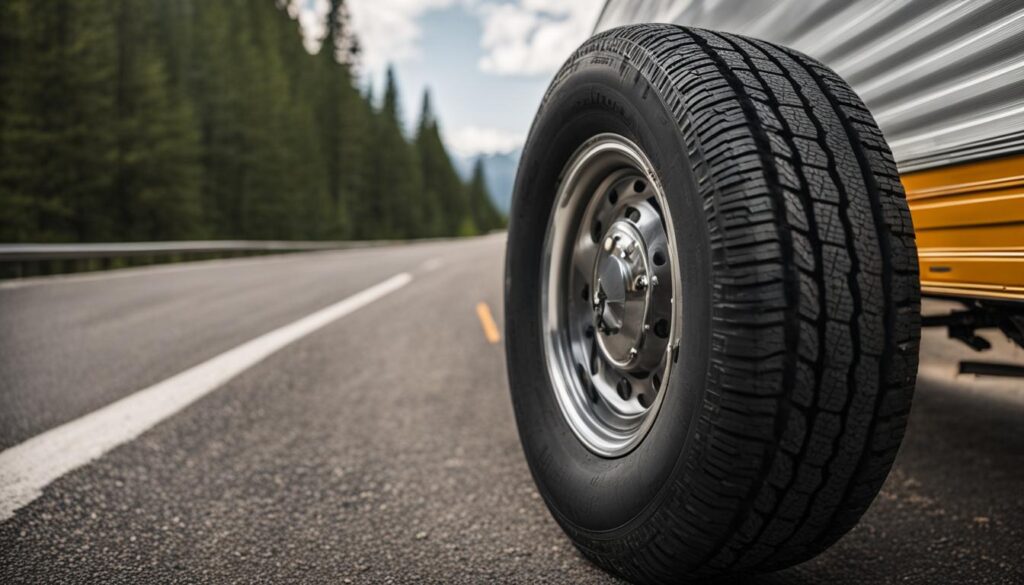
Tire Types for RVs
When it comes to RV tires, there are two main types that are commonly used: Special Trailer (ST) tires and Light Truck (LT) tires. Each type is designed to serve different purposes and cater to specific RV needs. Let’s take a closer look at these tire types and their characteristics.
Special Trailer (ST) Tires
ST tires are specifically designed for trailer usage, making them an ideal choice for travel trailers. These tires feature a stronger sidewall construction to handle the additional weight and stress of towing. Their durable construction helps minimize sway and provide better stability on the road. ST tires are also equipped with special compounds that resist UV rays and aging, ensuring longevity. With a maximum speed rating of 65 mph, ST tires are suited for a wide range of RV travel needs.
Light Truck (LT) Tires
LT tires are designed to handle the weight and demands of heavier RVs such as class A, B, and C motorhomes. These tires are constructed with reinforced sidewalls, which offer enhanced load-carrying capacity and improved performance. LT tires come in a variety of tread patterns that provide excellent traction on different road surfaces and in various weather conditions. Their versatility makes them suitable for RV owners who prioritize durability and want a tire that can handle rugged terrains and challenging driving conditions.
Choosing the right tire type for your RV depends on several factors, including the specific RV model, weight capacity, driving conditions, and speed requirements. It is essential to consult the RV manufacturer’s recommendations and consider these factors when making your decision. Opting for the appropriate tire type ensures optimal performance and safety during your RV adventures.
Tire Storage Tips
Properly storing tires when not in use is crucial to their longevity. As an RV owner, here are some tire storage tips that you should keep in mind:
1. Ensure the RV is level and inflate the tires to the recommended pressure. This helps prevent flat spots and maintains proper tire shape during storage.
2. Use tire blocks or treated lumber to support and protect the tires from the ground surface. This helps prevent moisture damage and avoids tire deformation.
3. Cover the tires with tire covers to shield them from UV rays and prevent premature aging. UV rays can cause the rubber to deteriorate over time, so it’s essential to protect the tires from direct sunlight exposure.
Following these tire storage tips will help protect the tires from environmental damage and maintain their condition during periods of non-use. Additionally, before using the RV again after storage, it’s important to conduct regular inspections and proper maintenance to ensure the tires are in optimal condition.
How long do travel trailer tires last?
On average, RV owners can expect to get at least 30,000 miles out of their travel trailer tires. However, it is important to note that most RVs are not driven extensively, so tire replacement is often based on age rather than wear. In general, it is recommended to replace travel trailer tires at or before the 5-year mark.
What factors affect the lifespan of travel trailer tires?
The lifespan of travel trailer tires can be affected by various factors, including the quality of the tire, driving conditions, weight distribution, tire pressure, and environmental factors. High-quality tires tend to last longer than low-quality ones. Driving conditions such as rough roads or extreme temperatures can impact tire lifespan. Proper weight distribution and tire pressure maintenance are crucial. Environmental factors like UV exposure and moisture can also contribute to tire aging.
What are the signs of worn out travel trailer tires?
Signs of worn out travel trailer tires include cracks, bulges, uneven wear, and tread depth below the recommended threshold. Cracks on the sidewall or between the treads can indicate tire aging. Bulges or bubbles on the sidewall are signs of internal damage. Uneven wear can be an indicator of improper weight distribution or misalignment. Tread depth below 4/32 of an inch means it’s time to replace the tires.
What are some maintenance tips for travel trailer tires?
Some maintenance tips for travel trailer tires include regularly checking and maintaining the correct tire pressure, inspecting the tires for signs of wear and damage before each trip, rotating the tires periodically, keeping the tires clean, using tire covers to protect them, and avoiding parking on wet or uneven surfaces. Storing unused tires in a cool, dry environment is also recommended.
When should travel trailer tires be replaced?
Travel trailer tires should be replaced at or before the 5-year mark based on age and condition, rather than solely on mileage. If the tires show signs of wear, damage, or have tread depth below the recommended threshold, they should be replaced promptly.
What are some tips for tire safety and performance?
To ensure tire safety and optimal performance, RV owners should maintain proper tire pressure, balance and align the tires, properly distribute the weight inside the RV, avoid excessive speeds and abrupt braking or acceleration, avoid parking near sharp objects or debris, and follow the manufacturer’s recommendations for tire care and maintenance.
What are the types of tires for RVs?
There are two main types of tires used for RVs: ST (Special Trailer) tires and LT (Light Truck) tires. ST tires are specifically designed for trailer usage and have a stronger sidewall to handle the additional weight. LT tires are designed for larger RVs like class A, B, and C motorhomes and are made to withstand the weight and demands of these vehicles.
What are some tire storage tips for RV owners?
When storing tires, RV owners should ensure the RV is level, inflate the tires to the recommended pressure, use tire blocks or treated lumber to support and protect the tires from the ground surface, and cover the tires with tire covers to shield them from UV rays and prevent premature aging. Regular inspections and proper maintenance should also be conducted when preparing the RV for use again after storage.
Source Links
- https://koa.com/blog/rv-quick-tip-tire-storage/
- https://rvshare.com/blog/how-to-keep-your-rv-tires-in-good-shape/
- https://roadtrippers.com/magazine/rv-tires-buying-maintenance-guide/
About The Author
Kal Wiggins
Related posts.
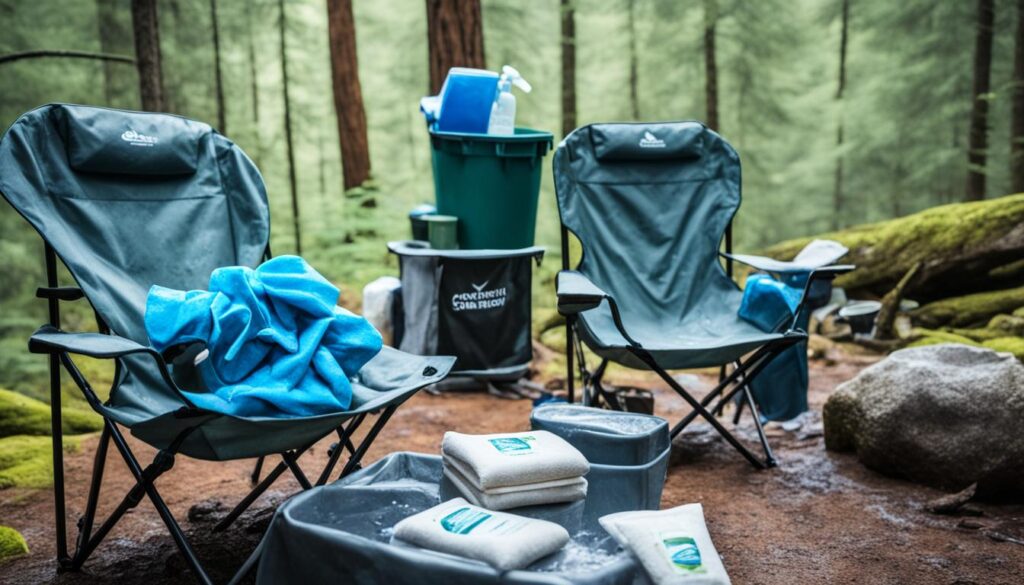
Effortless Guide: How to Clean Camping Chairs

Fort Dummer State Park: Explore Vermont

Rooster Rock State Park: Explore Oregon

Bennett Spring State Park: Explore Missouri

False Cape State Park: Explore Virginia

Flandrau State Park: Explore Minnesota
Privacy Policy - Terms and Conditions

RV Tires & Accessories
Last updated on: November 27, 2021
Knowing How Long Do RV Tires Last?
by Peter Wade
www.rvtalk.net is reader supported. When you buy through links on our site, we may earn an affiliate commission.
Tires are one of the most important parts of a recreational vehicle (RV). How long do RV tires last ? Your motorhome tires might be performing well for many years, but there is an age limit for them. Understating the average lifespan of RV tires and the conditions that deteriorate them is important. After all, you don’t want them to give up and leave you stranded in a remote place.
Most people don’t think of changing the tires until there are signs of physical damage or they are showing some troubles. Yes, new tires for RVs are expensive. However, worn-out tires can cause bigger damage that can add up to those expenses.
Frequency of use
Weather conditions, overloading, using wrong tire types, low-quality tires, how often should i change my tires, how long do rv tires last.
The answer is – five to seven years . Some tires can last longer, given that you have taken proper care of them and avoided dangerous driving conditions. However, they can deteriorate even faster than that, depending on weather conditions and your driving habits.
You can easily check the age of the tires. All of them come with a date code, which is a series of numbers starting with the word ‘DOT’. The last four digits of that code indicate the manufacturing week and year. The code can be found on the tire’s sidewall. Some tires could have it on the inside, so you have to crawl under the RV to see the code.

The tires of a motorhome are the parts that carry out all the load – the vehicle itself, all cargo, and the passengers. So, if you don’t take proper care or replace them at the right time, they are likely to blow out, which could be dangerous when you are driving at high speeds.
So, how long do RV tires last if you calculate the duration of life in terms of miles? The rule of thumb is to replace them after every 8,000 or 10,000 miles. There might be some people who have driven the trailer more than 20,000 or 30,000 miles with replacement, but these are purely exceptions.
Read the manufacturer’s manual to know how many miles the tires have on them. This is the best practice when you are buying used campers. Some tire manufacturing brands like Michelin produce good-quality tires but they also last for a certain period.
So, you know how long do RV tires last but that lifespan could be cut short due to these factors:
Some people use their travel trailer for occasional road trips and vacations while some practically live in it. That difference in usage frequency affects the lifespan of tires. When you are using the camper day in and out, the tires will wear off a year earlier than the ones used once or twice in a month.
Also, poor upkeep and ignoring small repair needs reduce the lifetime of tires.
Weather states matter in affecting the health of tires, the engine, and other parts of a vehicle. For example, driving in Minnesota’s International Falls (officially trademarked as Icebox of the Nation ) will not be similar to the experience of running a camper in sunny, warm Bay Area in California.
Harsh weather including extreme heat and cold causes wearing off the tire’s sidewall and exterior rubber parts at a much quicker rate.
Another reason for tire failure is overloading the trailer. Every camper has a certain capacity for carrying cargo. If you load it more than the recommended weight limit, it affects the tires and the engine.
Yes, it could be a reason too. ST or special trailer tires are the products that you should use for your camper. These are particularly designed for carrying extra weight. Non-ST tires like the ones used in trucks and passenger vehicles are not able to handle that kind of load.
Anything having a poor quality is not going to last long enough. So, if you settle for the cheaper, lower-quality alternatives to the trailer’s original tires, you may have to change them before the due time.

How long do RV tires last? You already get the answer. Are you still confused about their replacement time?
It should be easy math, right? You will change the tires after 5 to 6 years or 8,000 to 10,000 miles, whichever comes first. But you cannot just wait for those years or miles because tires can wear out before that period.
The best practice is to check their conditions at regular periods. Cracks on the sidewalls and treads are visible to the naked eye. It is also a good practice to consult a mechanic once in a while to check the conditions of the tires.

About Peter Wade
Peter Wade is a co-ordinator and writer at www.RVTalk.net. His hobbies are coffee, RV camping and photography. He now enjoys exploring the U.S. by RV with his two dogs. After obtaining a MA degree in Public Relations and Journalism, he had 8 years of experience working for the R&D Department of Outdoorsy. Peter provides a unique look and insightful knowledge about the RV lifestyle, and fills his blog with everything from RV camping guides to reviews about necessary RV accessories. If you are an RV enthusiast and want to get the most-updated trends of the RV industry, Peter’s articles are the must-visit contents.
Related Articles in this Category
The 5 best rv jack stands in 2022 [reviews and buying guide], the best wheel chocks for rv in 2022 [reviews and buying guide], the 10 best truck tires for towing travel trailers & fifth wheels, how do electric trailer brakes work working mechanism, the best tire pressure gauges to buy in 2022, rv leveling jacks will not retract: how to troubleshoot, the 12 best rv jack pads to buy in 2022, best portable 12v air compressors: tire inflator pumps for rvs, best rv leveling blocks: stabilizing & leveling your camper, the 12 best air compressors for rv tires in 2022, the 12 best brake pads for towing 2022, how to set the correct travel trailer tire pressure, the 12 best rv tires for motorhome, travel trailer or camper, 1 thought on “knowing how long do rv tires last”.
Thanks for the knowledge. What us a good fifth wheel tire for a 40 foot toyhauler trailer
Leave a Comment Cancel reply
Save my name, email, and website in this browser for the next time I comment.

- You are here:
- Home »
- Blog »
- » How Long do Travel Trailer Tires Last? (Tips to Last Longer)
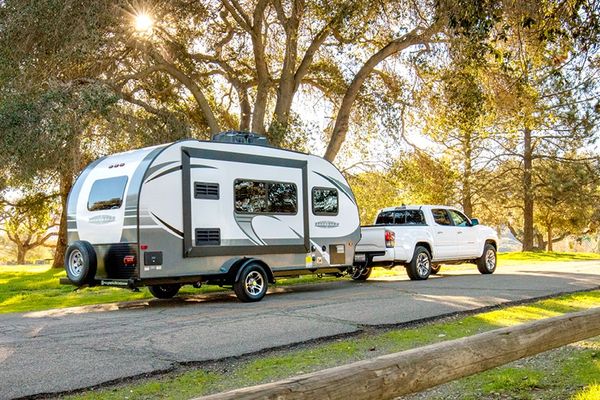
How Long do Travel Trailer Tires Last? (Tips to Last Longer)
- August 20, 2019 /
- By Shelly P. /
Good tires are essential when you are pulling a load, having great tires under your trailer means a lot. They help you get where you are going safely along with helping you save a little on your fuel consumption. When you pull a trailer, tires are not a secondary issue to be ignored.
How Long do Travel Trailer Tires Last? On average a good trailer tire will last you about 5 to 6 years. Some people will have them last longer while others may not see even 5 years of use. There are many factors that contribute to the longevity or lack of it of your tires.
To find out how to contribute to a long life for your trailer tires continue to read our article. It is filled with the information you need to know to get the most out of your trailer tires.
- Tip #1: when you travel the best way to help your tires last longer is to make sure you keep the right air pressure inside. This helps your tires wear evenly and have them last you longer.
- Tip #2: While you cannot stop the tire aging process, tire covers do help to delay that fact of life. Good tire covers keep the UV rays and the heat off your tires making sure the sun doesn’t prematurely age your trailer tires
How Many Miles do Trailer Tires Last
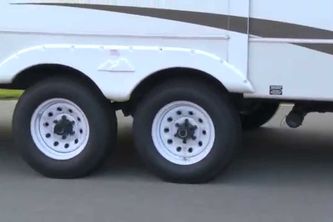
There is some debate on this subject but a good rule of thumb would be to change your trailer tires about every 10,000 to 15,000 miles. Of course, that would be subject to the type of roads you travel and how well you take care of them.
There are some people who argue that those figures need to be reduced considerably. They say that you should replace trailer tires every 5,000 to 12,000 miles. This is done in spite of the fact that some RV trailer owners travel 5,000 miles on one trip alone.
When they are done, they do not see any hard wear and tear on their tires. With the improvements time and technology have done over the years, it is a safe bet to go with the higher mileage range rather than the lower one.
Then just keep your eyes on your trailer tires. You will know when it is time to replace those tires. Also, you probably will replace your trailer tires for other reasons long before you hit 15,000.
Nails, glass, and other sharp road hazards tend to make the argument moot.Your load weight may have something to do with wearing your tires out long before the mileage is up on them.
- Tip #3: Try not to use a lot of chemicals on your tires when you are cleaning them. Chemicals react in a negative way when in contact with rubber. The fewer chemicals you use the longer your tires should last.
How Long Should Trailer Tires Last
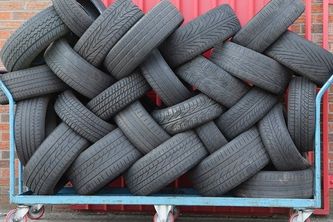
If you are lucky, you should get a good 6 years out one set of trailer tires. That is if you watch the roads you drive on and avoid a lot of pot holes and other tire obstacles that are not tire friendly.
Then if you do take care of them, you may find that they will last you longer the 6 years. But after that time, you really need to keep an eye on them as the rubber will definitely be weaker and prone to more issues you come across as you drive.
If you get less than 5 years use, then you may be doing something wrong. You may put too much load on them, under inflate them or even over inflate them. Plus, you may be putting the wrong tires on your trailer’s axle or axles.
These situations tend to reduce the life span of those costly tires you shelled good money out to get. The other thing you should be aware of is that if you are putting a lot of miles on your trailer in one year, then do not expect the tires to hit that6 year mark.
Don’t forget there are always exceptions to the rule. Some people may get 20,000 to 30,000 miles on their trailer tires over a 10 to 20 year term. They are the rare cases not the rule.
- Tip #4: Watch your speed. Most, if not all trailer tires, are rated to be run at 65 miles an hour and no faster. If you want your tires to last longer, slow down and do not exceed that speed limit.
Why do Some Trailer Tires Blow Out or Fail Earlier
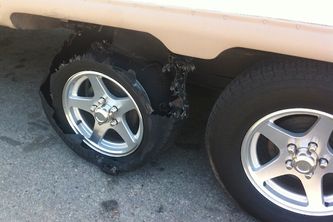
There are two main reasons why this takes place. First, trailer owners overload their trailers and put too much weight on the tires. You cannot exceed the load range capacity for tires or axles and expect them to perform like their is not weight on them.
The second main cause for early tire blowouts or failure is that too many trailer owners do not think twice about the air pressure those tires are at. Under inflated tires tend to blow out quicker than properly inflated ones.
There are also other culprits that contribute to this issue. Heat is one of them If the road is hot or the weather is warmer than usual, you can expect a little trouble. Even if you are sitting at the side of the road, a hot day can do damage to your tires and have them blow when you are at 65 mph.
Then there are bad roads that help cause tires to blow out or fail. Pot holes, and other obstructions hurt tires especially if they are driven over repeatedly. You may miss those pot holes and dangerous obstacles but all it takes is just one to hit at the right spot and there goes your tire.
Finally weather, long periods of non-use and bad maintenance all contribute to early tire failure and blow outs. If your trailer is going to sit for long periods of time, you should use a tire cover to protect them. Also, make sure to do proper maintenance regularly. Being safe is a lot better than being sorry.
- Tip #5: Check the date codes on your tires. The code is found after the DOT letters and the first 4 letters or numbers after that code. You can go to this link and check the code. The age of the tires is not dated to when you bought them but when they were actually made.
Travel Trailer Tire Life vs Usage
Travel trailer tire life may be long and enjoyable. That is because you may not be using your travel trailer very much each year. But even if you do not use your travel trailer that much, the tires on your trailer still get wear and tear.
Travel trailer tires are still enduring the effects that the outside world brings its way, including just sitting in your driveway or backyard. The tires still hold up the weight of the trailer, they have to endure the ever changing weather patterns and the rise and fall of the daily and seasonal temperatures.
These elements and more still take their toll on your travel trailer even though you only use it for 2 to 3 weeks of the year. Your usage may also affect those tires. If you go off the beaten path to a great lonely campsite, those uneven and rocky roads can play a part in shortening your travel trailer tires’ lifespan.
No matter if you use the trailer or not, your travel trailer tires will receive wear and tear and you may not have 2,000 miles on them. It is not usage alone that shorten the life of your travel trailer’s life.
- Tip #6: The more you run your RV the better it is for your tires. Tires can crack and dry out if left standing for long periods of time. Movement helps release built-in lubricants that keep your tire’s rubber in top shape
How to Make Trailer Tires Last Longer
One way to protect your tires and have them last longer is to not over wash them. Washing can remove vital chemicals built into your tires that they need to live a long life.
Another way is to use the right tires for the job. There is a reason why some tires are labeled as St and why some are labeled as LT or P. The P stands for passenger, the LT for light trucks and neither have any business being on a trailer.
The ST stands for Special trailer and they are specifically designed to handle the loads trailers carry. These are the tires you want on your trailer if you want longer lifespans. Also, do not over or under inflate them.
On top of that, you do not want to overload your tires. If you are hauling 10,000 pounds of trailer and contents, you do not want tires rated for 2,000 pound load range on your trailer’s axles.
Get the right tires to handle the load or remove some items from your trailer until the load is at or under the load range limit of your trailer tires. Finally, treat your tires well. If you do, you may get about a 50% increase in their lifespan.
That is good news when you rather spend your money on more entertaining activities than tires.
- Tip #7: try not to let your trailer sit longer than 6 months at a time. Long periods of non-use adds to the downfall of your tires.Plus, if you use a facility to store your trailer, check it out to make sure indoor conditions do not damage your tires over the long run.
When Should You Consider Replacing Your Trailer Tires
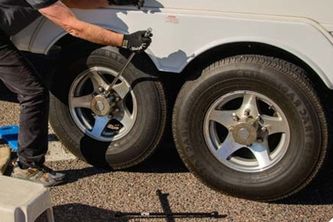
One of the first signs that you should be aware of when checking your tires is the tread depth. If they have been worn down to 2/32 or 1/16 of an inch, then you should replace them and go with a new set.
A second sign is when you start to see cracks in your trailer’s tire. These cracks can help let air out and put you in a dangerous position as you drive down the road. Then, if you see deformities, like bulges or bubbles, you should consider replacing your tires as soon as possible.
Flat spots or bald spots are another sign telling you the tires just won’t make your next trip. The age of the tire is the next important sign reminding you that tires do not last forever.
While you may get a couple more years of use out of them when they reach their 5 th year, this is not always a smart move to make. Finally, the mileage. Even if those tires look great, you need to consider the amount of miles you have put on them.
At the 10,000 mark you should be thinking about what tires sales are going on and if trailer tires qualify for those sales prices.
- Tip #8: Under or over psi is not the only culprits to a short tire life.If your trailer’s axle is not properly aligned, then you could shorten the tires’ lifespan considerably. Check the alignment as a trailer’s axle is affected by pot holes, bumps, rocks and other impacts
How to Check Trailer Tire Age
As stated earlier, there is a code on your tires that help you check their age. The key to knowing their age is that the tire’s life does not start the moment you purchased them.
The tire’s life countdown begins when it rolls off the assembly line and placed into the holding racks waiting to be shipped out to dealers and gas stations When you are thinking about replacing your tires, you must take this time frame into consideration.
Also, you should be considering how long they sat on the dealer’s shelves before you came along and bought them. All those months are part of the age of the tire. In the previous section we also gave you a link to check that code to get the actual age of your tire.
Knowing codes not only help you place the right tire on your trailer, it helps you figure out when they are ready to be replaced. The last four digits in the overall code are your dates for age.
For example, if the tire code reads 2815, that means that the tire was made in the 28 th week of 2015.
- Tip #9: Before you begin your journey and every tie you start on a long drive during that journey, you should check the tire inflation rate. Knowing your tire pressure helps you do routine tire inflation or deflation actions protecting you from any trouble that may come.
How Long Boat Trailer Tires Last
Boat trailers do not normally get a lot of use unless you are going out fishing every weekend. Also, depending on the type of boat you are hauling, the load amount may not affect the tires that much.
Under these light conditions, it is not unheard of for boat trailer tires lasting 10 years. After 10 years you may want to start thinking about replacing those tires. Any trailer tire does not have a long life span regardless of the mileage put on them.
The same conditions listed above apply to boat trailer tires as long periods of non-use will wear their integrity down and other conditions also affect their wear and tear. It is also not advisable to drive with boat tires that are 8 years old.
But that is your call as your experience may be different. Like RV tires there will be exceptions to the rule and some boat trailer tires may not last beyond 3 years with only 6,000 miles on them.
One way to positively contribute to your boat trailer lifetime is to make sure when it is not in use, lift the tires off the ground and keep them away from ground moisture. You will want to cover them keep a lot of the weight off.
Also, from time to time, just move the boat a few feet or so just to rotate them and keep them in good shape.
- Tip #10: If possible do not store your RV trailer with the wheels touching wet ground or concrete. The wet ground and concrete can help those tires absorb moisture and shorten the tires’ lifespan
Frequently Asked Questions About Trailer Tires
In this section we will answer some of those questions you may have on your mind that were not answered in the above sections.
- #1. What is the correct tire pressure for a trailer tire?
Like car and light truck tires, trailer tires will have a maximum psi listed on the tire. Now that number may not be the same even if the tires of different load range classifications fit the same wheel. For example, a ST175/80-13 load range B can hold 1,100 pounds at 35 psi. But a # AM10210 load range D fits the same wheel yet can hold 1,610 pound at 65 psi. Check with your dealer to get the correct psi for the load you are carrying
- #2. What speed can I travel at when pulling my trailer?
We did answer this earlier but here is a more detailed response. Trailer tires manufactured prior to 2015 can only go at 65 mph or less. Since that time, 2015 and onward, there are 3 speed classifications- M can go 81 mph; L goes up to 75 mph; and J which can go only 62 mph or less.
- #3. Should I use bias ply tires or radials on my trailer?
A bias ply tire has cords that run only at 32 degree angles toward the direction of travel. While the radial runs cords at 90 degrees in the same direction. The radial has better flexibility and ground contact, plus, it runs cooler than a bias ply tire. The cooler tire will last longer while the bias tire is better for off road travel. In the long run depending on load, travel conditions, etc., a radial may be the better tire to use.
- #4. What is the DOT code?
The DOT in the DOT code stands for department of Transportation. You can find it on the side of the tire near the bead. The next two numbers or they could be letters identify the location where the tire was made. Then the last four digits give you the date code
- #5. Do I need to match my tires or will any tire marked ST work on my trailer?
It is tempting to get tires at special low prices even if they do not match up. But like a car or light truck, this is not a viable option for pulling your trailer. You should have matching tires at all times unless in an emergency situation. Each tire should have the same size, load range, and construction
- #6. Does it really matter if the load range is not the same on all trailer tires?
Yes it does matter. The load range of one tire may be too weak to handle the weight of and in the trailer. This puts you and your family at risk of a tire failure. Plus, you may lose fuel economy, and add wear and tear to all your tires, costing you more money to replace them.
Some Final Words
Trailer tires are an important part of your RV experience in a long line of important parts. But without good tires on your trailer, you are not going to get very far. Making sure you know how long they last, how much mileage you can put on them and their load ranges, etc., will have them lasting you a long time.
Keep in mind that usage and tire life are not necessarily the same thing. Tires will age whether you use them or not. Also, you need to accept the fact that you and your trailer tires are part of the rule, not the exception.
What that means is you may not get 10,000 miles on your tires or have them last past 7 years. You need to practice good tire care and maintenance just in case.
Related Posts
How Long Do 22.5 Tires Last? (Truck Tire Life Expectancy)
Are Freedom Hauler Tires Any Good? (Trailer Tires Reviews)
Best Tires For E450 Motorhome (Tire Size and Pressure)
Leave a Comment:

How Long Do RV Tires Last? About 3 to 7 Years- Here’s Why
When it comes to RV tires, knowing how long they last and when to replace them is crucial for your safety and the safety of others on the road. So how long do RV tires last? RV tire lifespan averages 3 to 7 years but can vary depending on several factors, including the quality of the tire, the conditions in which it is used, and how well it is maintained.
In this article, we will explore how many years and miles you can expect from your RV tires, what factors affect their longevity, and how to know when it’s time to replace them.
Key Takeaways
- Properly maintained RV tires can last between 3 to 7 years.
- Factors that affect RV tire longevity include weather conditions, driving habits, and maintenance.
- Signs that it’s time to replace your RV tires include cracks, bulges, and worn-out treads.
How Many Years Do RV Tires Last?
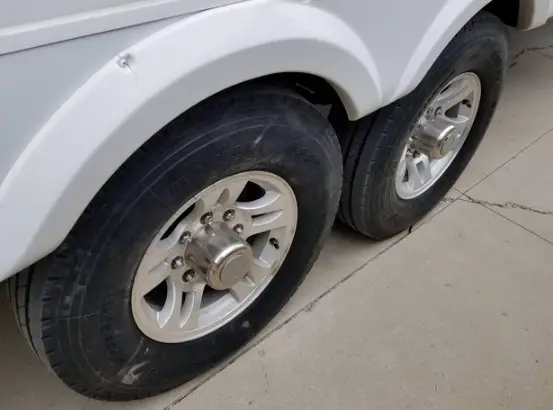
RV tires are an essential component of your vehicle, and it’s crucial to know how long they last to ensure your safety on the road. The lifespan of RV tires depends on various factors, including the quality of the tire, how often you use your RV, and how well you maintain them.
The general rule of thumb is that RV tires can last between three to seven years. However, some tires can last longer, given that you have taken proper care of them and avoided dangerous driving conditions. It’s essential to note that RV tires can deteriorate even faster than that, depending on weather conditions and your driving habits.
One way to determine the age of your RV tires is by checking the date code stamped on the sidewall of the tire. The date code indicates the week and year of manufacture. For instance, if the code reads 2218, it means that the tire was manufactured in the 22nd week of 2018.
It’s also important to note that RV tires can age even if they’re not being used. Tires that are more than six years old should be inspected annually by a professional to ensure they’re still safe to use.
Another factor that affects the lifespan of RV tires is miles driven. The fewer miles you drive, the longer your tires will last. If you’re not using your RV frequently, it’s recommended to cover your tires to protect them from the elements.
In conclusion, the life expectancy of RV tires varies depending on several factors. It’s crucial to inspect your tires regularly, keep them properly inflated, and replace them when necessary to ensure your safety on the road. Use the chart below as a guide to determine when to replace your RV tires.
How Many Miles Will RV Tires Last?
The mileage that RV tires can last depends on various factors such as the tire’s quality, maintenance, driving habits, and weather conditions. In general, RV tires can last between 10,000 to 50,000 miles before they need to be replaced . However, mileage is not the only factor that determines when to replace your RV tires.
It’s important to note that RV tires rarely meet their mileage limits before their age. This means that even if your tires haven’t seen a lot of miles, you should still replace them every 3 to 7 years. This is because tires can deteriorate over time due to exposure to sunlight, heat, and other environmental factors.
Additionally, the type of RV you have can also affect the mileage that your tires can last. Smaller trailer tires tend to only get 10-15k miles before they might need replacement, while larger motorhome tires can last up to 50,000 miles or more.
To make sure that your RV tires last as long as possible, it’s important to properly maintain them. This includes checking the tire pressure regularly, rotating the tires, and keeping them clean.
By taking care of your RV tires, you can ensure that they last as long as possible and keep you safe on the road.
Factors Affecting RV Tire Longevity
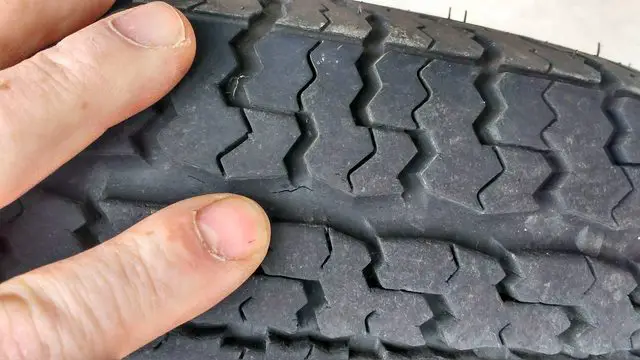
When it comes to the lifespan of your RV tires, there are a number of factors that can affect how long they last. Here are some of the key factors to keep in mind:
Wear and Tear
The wear and tear on your RV tires is one of the most important factors to consider. Over time, the tread on your tires will wear down, which can affect their ability to grip the road and provide traction. It’s important to keep an eye on your tire tread depth and replace your tires when they become too worn.
Sidewall Damage
Another key factor to consider is the condition of your tire sidewalls. Cracks, bulges, and other damage to the sidewalls can compromise the structural integrity of your tires and make them more prone to failure. Be sure to inspect your tires regularly for signs of sidewall damage.
Underinflation
Underinflated tires can also contribute to reduced tire life. When your tires are underinflated, they can become overheated and wear down more quickly. Be sure to check your tire pressure regularly and keep your tires properly inflated.
Driving and Weather Conditions
The driving and weather conditions that your RV tires are exposed to can also affect their lifespan. Driving on rough roads, in extreme temperatures, or in wet or salty conditions can all contribute to increased wear and tear on your tires. Be sure to take these factors into account when assessing the lifespan of your RV tires.
Weight and Support
Finally, the weight and support that your RV tires are providing can also affect their lifespan. Overloading your RV or placing too much weight on one side can cause uneven wear and tear on your tires, which can lead to premature failure. Be sure to distribute weight evenly and avoid overloading your RV to help extend the life of your tires.
Keep these factors in mind when assessing the lifespan of your RV tires. By taking proper care of your tires and being mindful of these key factors, you can help ensure that your tires last as long as possible.
Signs to Replace RV Tires
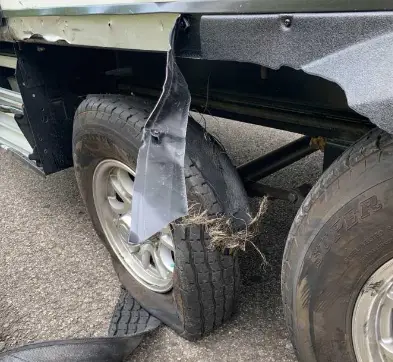
As an RV owner, keeping your tires in good condition is crucial for your safety on the road. Here are some signs that it’s time to replace your RV tires:
- Age: RV tires typically last between 3-7 years, even if they have plenty of tread left. After this time, the rubber can start to break down, leading to cracks, blowouts, and other safety issues.
- Cracks: Check your tires regularly for cracks in the sidewalls or tread. Small cracks may not be a problem, but if they are deep or numerous, it’s time to replace your tires.
- Wear: Inspect your tires for uneven wear or bald spots. This can be a sign of alignment issues or overloading, and it can also increase the risk of a blowout.
- Tread depth: The minimum safe tread depth for RV tires is 2/32 of an inch. Use a tread depth gauge to check your tires regularly, and replace them if the tread is too low.
- Blisters: If you see bulges or blisters on your tires, it’s time to replace them. These can be a sign of internal damage, and they increase the risk of a blowout.
- Too much vibration: If your RV vibrates excessively while you’re driving, it could be a sign of tire problems. This could be caused by a tire that’s out of balance, or it could be a sign that your tires are worn or damaged.
See Related: How To Prevent RV Tire Dry Rot
How To Know When To Replace RV Tires
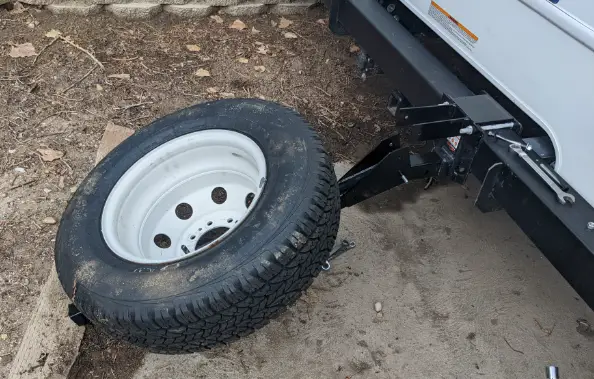
If you’re an RV owner, you know just how important it is to keep your tires in good condition. Here are a few things you can do to determine when it’s time to replace your RV tires:
Check The DOT Number On Your RV Tire
The DOT number on your RV tire can tell you a lot about its age and condition. The last four digits of the number indicate the week and year the tire was manufactured. For example, if the last four digits are “2218,” the tire was manufactured in the 22nd week of 2018. If your tires are more than five years old, it’s time to start thinking about replacing them and inspecting them annually.
Figure Out Your Tire’s Age
Even if you don’t have the DOT number, you can still figure out your tire’s age. Look for a four-digit number on the sidewall of the tire. The first two digits indicate the week, and the last two digits indicate the year. For example, “2515” would mean the tire was manufactured in the 25th week of 2015. If your tire is more than five years old, it’s time consider replacing it.
Ask The RV’s Previous Owner
If you bought a used RV, you should ask the previous owner about the age and condition of the tires. They may have replaced the tires recently, or they may be able to give you an idea of when the tires were last replaced. If the tires are more than five years old, it’s time to start thinking about replacing them.
Check The Manufacturer’s Suggestion
Finally, you should check the manufacturer’s suggestion for when to replace your RV tires. Some manufacturers recommend replacing tires every three to five years, while others suggest replacing them every six to ten years. The manufacturer’s suggestion will give you a good idea of when you should start thinking about replacing your tires.
See Related: How To Prevent RV Hydroplaning
Maintaining RV Tires
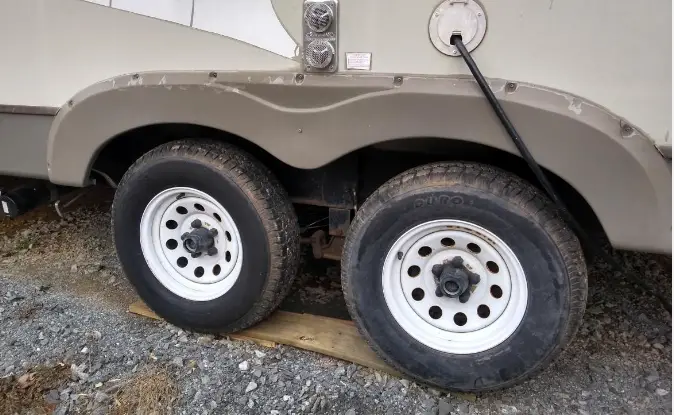
To ensure that your RV tires last as long as possible and perform at their best, it is crucial to maintain them properly. Here are some tips to help you maintain your RV tires:
Tire Maintenance
Regular tire maintenance is essential to ensure that your RV tires last as long as possible. This includes checking the tire pressure regularly, inspecting the tires for damage, and rotating the tires as needed. Make sure that you follow the manufacturer’s recommendations for tire maintenance.
Balance and Alignment
Proper tire balance and alignment are essential to ensure that your RV tires wear evenly and last as long as possible. Make sure that you have your tires balanced and aligned regularly, especially if you notice any uneven wear on the tires.
Using a tire protectant can help to protect your RV tires from the elements and extend their lifespan. Make sure that you use a protectant that is specifically designed for RV tires and follow the manufacturer’s instructions for application.
Tire Covers
Using tire covers when your RV is parked can help to protect your tires from the sun’s harmful UV rays and other environmental factors. Make sure that you use tire covers that are designed for your RV tires and that they fit properly.
Make Them Last
By following these tips and taking good care of your RV tires, you can help to ensure that they last as long as possible and perform at their best. Remember to follow the manufacturer’s recommendations for tire maintenance and to have your tires checked regularly by a professional.
See Related: How To Improve Your RV Gas Mileage and What Green Tire Air Caps Mean
Investing in Quality RV Tires
Investing in quality RV tires is one of the most important things you can do to ensure the safety and longevity of your RV. While it may be tempting to go for the cheapest option, investing in quality tires will save you money in the long run by reducing the need for frequent replacements and repairs.
When purchasing new tires for your RV, it is important to consider the following factors:
- Price Level and Initial Investment : Quality RV tires may be more expensive upfront, but they will save you money in the long run by reducing the need for frequent replacements and repairs.
- Original Tires : It is almost always a good idea to replace the factory tires on any RV. Manufacturers tend to use very low-quality tires on motorhomes and trailers, which have a tendency to blow out easily.
- 5th Wheels : If you have a 5th wheel, it is important to choose tires that are specifically designed for this type of RV. These tires will have a higher load rating and will be able to handle the weight of your RV.
- RV Tire Inflation : Proper tire inflation is crucial for the safety and performance of your RV. Be sure to check the tire pressure regularly and inflate them to the recommended levels.
- Warranty : Look for tires that come with a warranty or allow you to purchase one. This will provide you with peace of mind knowing that you are protected in case of any defects or issues with the tires.
Frequently Asked Questions
Class A RV tires typically last between three to seven years. This lifespan can vary depending on how well you take care of them and the driving conditions you encounter.
Class B RV tires also have a lifespan of about three to seven years, depending on factors such as maintenance and driving conditions.
Class C RV tires have a similar lifespan to Class A and B tires, lasting between three to seven years, but can vary depending on driving conditions and maintenance.
It is recommended that you replace your travel trailer tires at least once every seven years, regardless of their condition. Replace them immediately if you notice any signs of wear or damage, such as cracks or bulges.
Pop-up camper tires typically have a lifespan of around three to seven years. This range can vary depending on how well you maintain them and the conditions you encounter while driving.
Leave a Comment Cancel reply
Save my name, email, and website in this browser for the next time I comment.
Terms and Conditions


- Find a Location
Everything You Need to Know About RV Tires and Trailer Tires

Because most motorized and towable RVs are driven less than passenger vehicles, their tires tend to last between three and six years on average. The more you drive, the more frequently you’ll need to replace your tires.
The tread wear is the metric to monitor over your tires’ lifespan. When that tread falls below a depth of 4/32”, it’s time to replace your RV tires. But even if your tires have plenty of tread left, keeping them for more than 8-10 years is not recommended.
Most RV and travel trailer tires should be replaced every 10,000 to 15,000 miles. But each manufacturer recommends a service life for their tires, so it’s best to seek their advice on tire replacement intervals.
RV tire covers can protect your tires from UV exposure, dry rot, and other wear and tear that can shorten your tire’s lifespan. Even if you aren’t driving your recreational vehicle a lot, leaving your tires exposed to the elements will decrease their serviceable life.
How to Change an RV Tire

Blowouts happen, so if you find yourself needing to swap a blown RV tire for a spare, you’ll need the following tools:
- Your RV may or may not have one. They are less common on Class A RVs due to the weight of the vehicle and the dangers of changing a tire on the side of the road.
- If you don’t, call Good Sam Roadside Assistance to get you back on the road.
- DO NOT USE your RV’s built-in hydraulic or stabilizing jacks to lift your RV.
- A lug wrench or torque wrench
- Impact driver with the correct size socket for wheel lugs
- Wheel chocks
- Tire inflator or air compressor with the appropriate fittings
With those tools in hand and your RV parked in a safe location, follow these steps:
- Retrieve your spare tire.
- Place wheel chocks in front and back of tires you aren’t changing to keep your RV from moving.
- Use your lug wrench to loosen all lug nuts holding the tire in place.
- Place the bottle jack under your RV’s frame.
- Extend the bottle jack until the tire is completely off the ground. I f the tire is blown, you need to extend it high enough for the inflated spare tire.
- Use your impact driver and socket to remove wheel lugs.
- Remove the blown tire and set it aside.
- Center the spare tire on the lug threads.
- Replace wheel lugs by hand (at least get them started by hand to avoid cross-threading).
- Initially tighten lug nuts with the impact driver.
- Retract the bottle jack to lower the tire onto the ground.
- Tighten lug nuts entirely with your torque wrench. All manufacturers recommend lug nuts be tightened to a specific torque setting.
- Use your tire gauge to check the pressure in your spare tire.
- If necessary, inflate your tire to the recommended PSI.
- Remove wheel chocks.
- Store the blown tire safely until you find a tire or service center to acquire a new spare.
- Store all your tire-changing tools.
Driving your RV without a spare in tow isn’t recommended. If you’ve had to install a spare, you should replace the original tire as soon as possible before continuing on your RV road trip.
How to Change a Trailer Tire

This process is largely the same for travel trailers . But there are a few additional pointers to remember. Follow the same steps as above, with these safety tips in mind:
- Ensure your trailer’s stability. Even if your trailer is hitched to your tow vehicle, you should place wheel chocks in front and back of the tire(s) you aren’t changing to prevent the trailer from shifting and potentially falling off your bottle jack. You may consider extending your trailer’s stabilizing jacks once your bottle jack is extended. This provides a backup to keep your trailer elevated if the bottle jack fails or slips out of place.
- Inspect the wheel hub after removing the old tire. This should be done for RV and trailer tires. Visually inspect the hub for cracking, buckling, or other signs of damage. If you notice any major signs of damage, contact roadside assistance before moving your RV.
- Find a replacement spare. Don’t travel far without a spare tire for your travel trailer or fifth wheel . Tires for smaller trailers can be harder to come by, but contacting your nearest Camping World Service Center is a good place to start when looking for the best trailer tire providers in your area.
How Much Are RV Tires?

Tire prices fluctuate depending on size, brand, weight capacity, and quality. But the average RV tire costs somewhere between $250 and $300.
Tires for Class A RVs tend to be more expensive than car tires or tires for Class C RVs because they are larger and heavier. Owners of Class B RVs will usually pay less per tire because they require smaller and lighter tires, but your cost may be higher if you decide to invest in higher-quality tires made for off-roading.
How Much Are Trailer Tires?
Most travel trailer tires are smaller than tires for motorized RVs. Their average cost is likely to fall between $100 and $200. But, of course, that cost can fluctuate depending on the exact brand, tire size, load range, tread pattern, and construction you’re looking for.
How to Identify RV and Trailer Tires

Trailer tires are usually identified by an ST or LT rating. ST stands for ‘special trailer tire,’ and LT stands for ‘light truck’ tires These ratings will be at the start of the tire’s label, such as ST 205/75 D14. Here’s a quick breakdown of the rest of that label:
- 205 denotes the tire width measured in millimeters.
- 75 states the tire’s height-to-width ratio (i.e. height = 75% of width in this case).
- D stands for ‘diagonal’ but also denotes a bias ply tire (R would denote a radial tire).
- 14 tells you the tire’s diameter in inches.
Radial or Bias Ply Tires?

Many RV owners don’t know they have options regarding the types of tires for their RV or travel trailer . Radial tires are more common, but bias ply tires are a reasonable alternative for certain uses. Here are some quick definitions:
- Radial tires are built with steel belts inside the tire running at a 90-degree angle to the tread center line.
- Bias ply tires are constructed with nylon belts running at a 30 to 45 degree angle to the tread center line.
The general consensus is that radial tires provide a smoother ride, less trailer bounce and sway, longer tread life, wider footprint, tougher overall construction, and the ability to run cooler.
Bias ply tires are generally less expensive and offer stronger sidewall construction. They also have the advantage when it comes to carrying heavy loads, as they offer a uniform number of plies to support weight in both the tire’s tread and sidewall.
The best tire type for your trailer is indicated on your trailer’s information label (D = bias ply, R = radial). Generally, radial tires are recommended for trailers used regularly for longer trips. Bias ply tires are recommended for tandem axle trailers used for shorter, less frequent trips.
What PSI Should My RV Tires Be?

RV tires have their maximum pressure stated on the tire’s sidewall. This maximum pressure should never be exceeded. That said, the RV manufacturer will usually state the recommended tire pressure for your RV, not necessarily the tire manufacturer.
The RV manufacturer’s recommended tire pressure rating can be found on your vehicle information label or in your owner’s manual. But it’s important to recognize that this pressure rating is for cold tires (i.e., when your RV or travel trailer has been parked for at least three hours).
Should Trailer Tires Be Inflated to Max PSI?

The dangers of over-inflating trailer tires include more difficulty braking and a higher likelihood of tire blowouts. Over-inflated tires also wear out quicker, don’t provide as much traction on wet roads, and can alter your fuel efficiency.
To avoid over-inflating, fill your tires to their recommended pressure when they are cold. As the air temperature inside your tires increases, the pressure also increases.
What to Park RV Tires On

While RV tire covers reduce tire wear and tear, you can keep your tires healthy by parking on friendlier surfaces. Using leveling blocks or tiered tire ramps helps you level your RV right the first time and gets them up off unforgiving terrain.
Your RV’s leveling system also reduces pressure on RV tires when you’re parked. If you’re leaving your RV in long-term storage, follow these tips for maintaining your RV tires while in storage .
Do Trailer Tires Need to be Balanced?

The standard for travel trailer ride quality differs slightly from passenger vehicles. Trailers and fifth wheels are designed to carry cargo and equipment instead of passengers.
That being said, regularly balancing your trailer’s tires can improve performance, increase your tire’s lifespan, and ensure the safety of your trailer and its cargo. Unbalanced tires can create damaging vibrations and premature wear.
They will also heat up more rapidly, increasing the odds of a tire blowout. In the worst case, they can damage your axle bearing, damaging other nearby parts or allowing your wheel to come off when driving at high speeds.
Most trailer manufacturers recommend service intervals for tire balancing, but the industry standard recommends balancing your travel trailer’s tires every 3,000 miles.
What Are the Best RV and Trailer Tires? And Where To Buy RV and Trailer Tires…

Unfortunately, not all RV and trailer tires are created equal. Whether you need to replace blown tires or simply want to buy new RV tires, Camping World is here to help. Our service center locations can assist you in finding and installing the right tires for your RV, travel trailer, or fifth wheel.
Contact Camping World’s Service and Maintenance to discuss your tire needs today.
And when discussing RV and trailer tires with a technician, these are some of the leading brands in the industry:
- Preferred models : XRV and XZE
- Vendor: American Tire Distributors & National Tire Wholesale
- Preferred RV Model: GY G670 RV series
- Preferred Trailer Models: Endurance and LT series – G614 Premium Trailer tire
- Vendor: Goodyear
- Vendor: American Tire Distributors
- Preferred Model: Trailer King tires
- Vendor: National Tire Wholesale
Buying tires from a reputable brand will give you extra peace of mind on your next RV adventure.
Ensuring the health of your RV or trailer tires is critical to your entire coach’s health and the health of your passengers. It will also limit the number of times you find yourself on the side of the road dialing for roadside assistance .
But no matter how much you prepare, the unexpected happens when you’re traveling. Explore Good Sam’s Roadside Assistance , and Extended Service Plans to ensure you’re covered and protected in the event of emergencies on the road.
And if you’re still learning the ins and outs of RV maintenance, check out our downloadable RV ownership and maintenance booklet !
Do you have any additional questions about RV tires or trailer tires? Share them in the comments below!
- Comment (2)
I am curious about Camping Worlds standard on tire age for used camp trailers sold off your lot. What is the standard age limit on tires Camping World deems safe on a used camper purchased through your organization?

Hi Michele,
My apologies for the delayed reply, as I wanted to reach out to our service team to get their suggestion. Their response is that the generally accepted number is 5-7 years. Hope that helps!
Leave Your Comment Cancel Reply
Save my name, email, and website in this browser for the next time I comment.
Shop By RV Type

Your Adventure Awaits
Copyright © 2023 cwi, llc all rights reserved.
- RV Glossary |
- Privacy Policy |
- California Privacy Rights |
- Do Not Sell or Share My Personal Information |
- Targeted Advertising Opt Out |
- Terms of Use

- Types Of RVs
- Tow Vehicles
- Maintenance & Repairs
- RV Power & Electrical Supplies
- RV Appliances
- Living In An RV
- Travel & Destinations
- RV Gear Buyer’s Guides
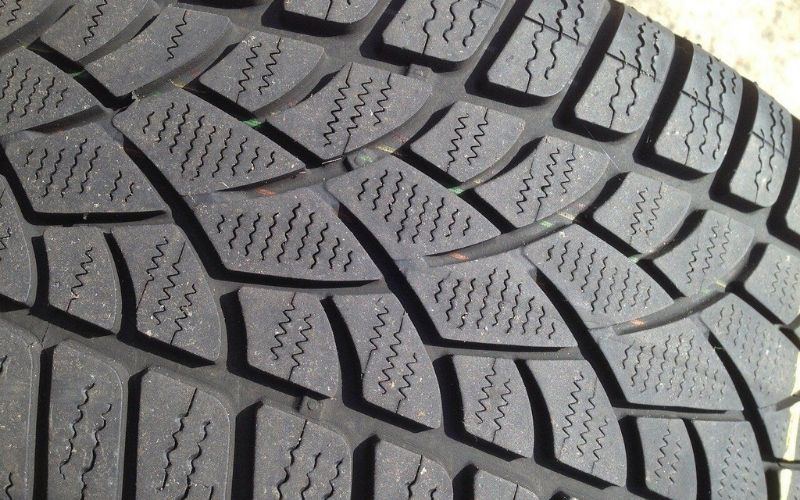
How Long Do RV Tires Last And What Affects Their Lifespan?
- Last Updated: March 19, 2024
- 7 minutes read
There are a lot of different types of RVs spanning from monstrously large Class A motorhomes to travel trailers, teardrop trailers and popup campers.
Though the one thing they all have in common is that they all have at least two tires that get them where you want them to go.
Just like your car or pickup truck, your RV’s tires have a limited lifespan that can be affected by a lot of different factors. Not the least of which being the number of miles traveled.
Of course, RV tires are not cheap, and replacing them will take a big bite out of your travel budget.
This is why so many RV adventurers wonder how long will my RV tires last? The typical RV tires will last for around 8,000 to 15,000 miles, depending on the quality of the tread and usage. For most RV adventurers this translates into about three to five years of use before the RV’s tires need replacing.
Though there are several factors and maintenance tasks that can increase or decrease the lifespan of your RVs tires.
If you are concerned about how long your RV tires will last, or you just want to make the most out of them, this article is loaded with helpful information.
IN THIS ARTICLE
RV Tire Tread
Like all tires, the tread wear will play a major factor in how long your RV tires last. RV tires come with different tread life ratings.
If you are buying new RV tires, it might be worth it to spring for the highest rating tread life for your replacements.
Especially for a motorhome’s rear axle drive tires which see the most wear and tear.
How To Determine The Amount Of Tread Life On RV Tires?
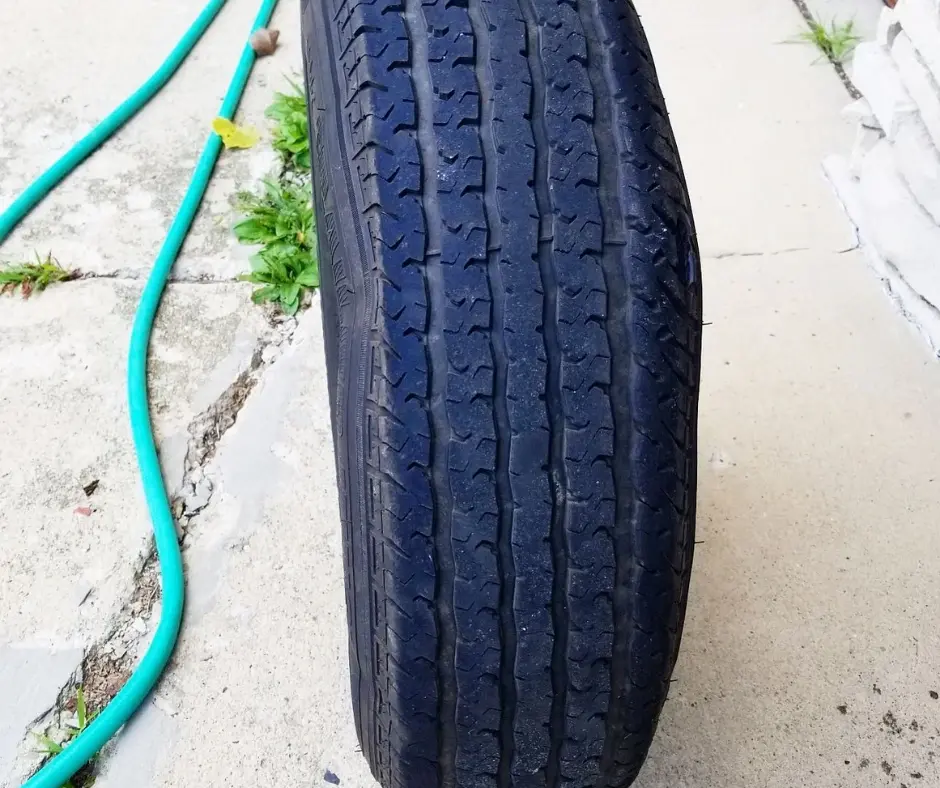
Determining the amount of tread life on an RV’s tires yourself typically involves the “Penny Test.”
You insert the penny into the deepest part of the tire tread with the penny facing toward you.
Ideally, a significant portion of Abraham Lincoln’s head should be hidden by the tread.
If you can see all of Lincoln’s head, then the tread is less than 1/16 th of an inch, and you absolutely need to replace the tires as soon as possible.
Just bear in mind that 1/16 th of an inch is the bare minimum. Ideally, you want at least a quarter of 4/32nds of an inch of tire tread.
Uneven RV Tire Wear
One of the things that kills a lot of RV tires before their time is uneven tread wear. This can be caused by a wide variety of things including:
- Driving the tires with low air pressure
- Driving the tires with too high of air pressure
- Alignment issues
- Not rotating the tires when needed
Sometimes you can visually notice signs of uneven tread wear, though usually, this means that the tire is in such poor condition that it needs to be replaced to make it truly roadworthy.
So, it’s a good idea to always check all your RV tires before departing on any trip.
Make sure to perform the “Penny Test” on each tire in multiple locations including the middle, the inside tread and the outside tread lines.
RV Tire Age
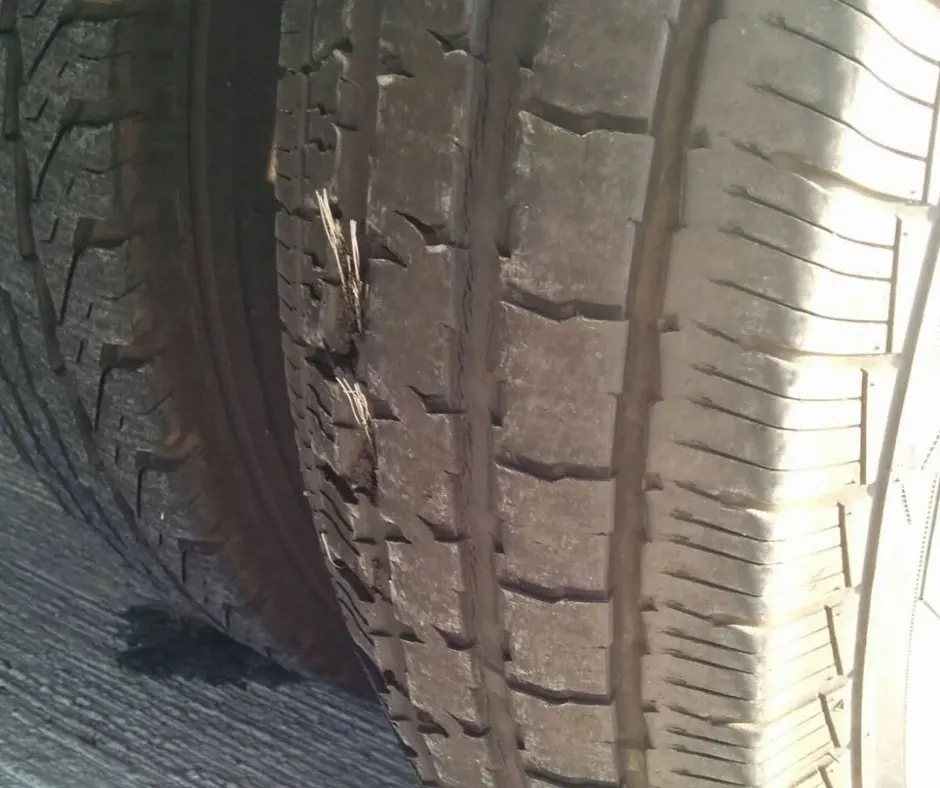
It’s also worth noting that the age of an RV’s tires can also limit the remaining lifespan. Especially if your RV has been stored outdoors.
The elements can cause even tough vulcanized rubber to start to fade, crack and stiffen.
If your RV’s tires are more than five years old and you are seeing signs of cracking in the sidewalls or delamination of the tread, you should replace them as soon as possible.
Determining RV Tire Age
Let’s say you took the plunge and bought a gently preowned RV, the tread on the tires looks good, but you are worried about the overall age.
Of course, the chances of the previous owner honestly telling you how old the tires are and any concerns they have about them is relatively low.
Fortunately, tires come with dating information printed on them. Though you have to know how to read the code.
Look carefully on the tire for DOT. It will be followed by 4 numbers. The first two numbers are the week of the year that the RV tires were made, and the last two numbers are the year.
If the RV tires say DOT1120, it means they were made in the 11 th week of 2020, which would be mid to late March.
Tips For Making The Most Out Of RV Tire Life
There are a few things you can do to help get the most life out of your RV tires. Though some of them can vary depending on the type of RV as well as your preferred travel style.
Rotate Your RV’s Tires
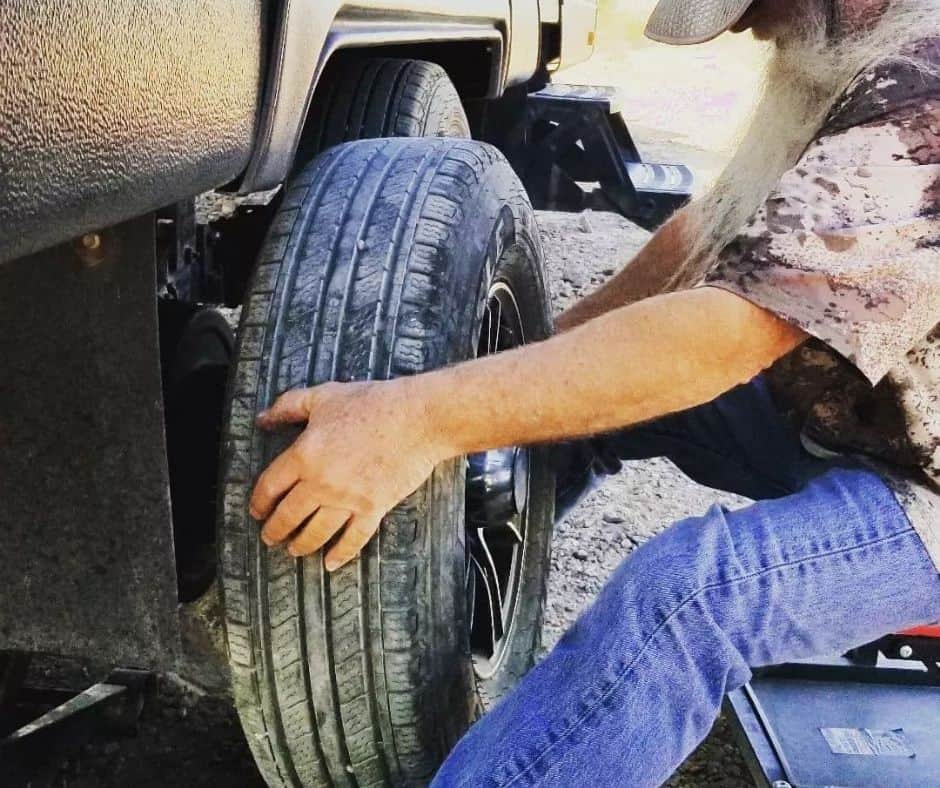
Ideally, you should rotate your RV’s tires every 6,000 to 8,000 miles. Especially if it is a motorhome where the rear-drive tires suffer more wear and tear than the front steering tires.
Though even a travel trailer’s tires will benefit from rotating as minor mechanical variations in simple things like how the trailer tracks can lead to uneven tire wear.
Check RV Tire Pressure Frequently
You need to check your RV tire pressure at key points . This includes at the start of a trip, as well as when you get to camp, and when you finally get back home.
Being thorough helps you do things like catch a potential slow leak in a tire before it causes uneven tire wear, a flat tire, delamination, or a total blowout.
It’s also a good idea to check the tire pressure before storing the RV, as part of your winterization process.
If possible, check the tires two or three times during the winter. Many a pair of RV tires has been ruined by a slow leak that made them go flat during long-term winter storage.
Keep A Portable Air Compressor In Your RV
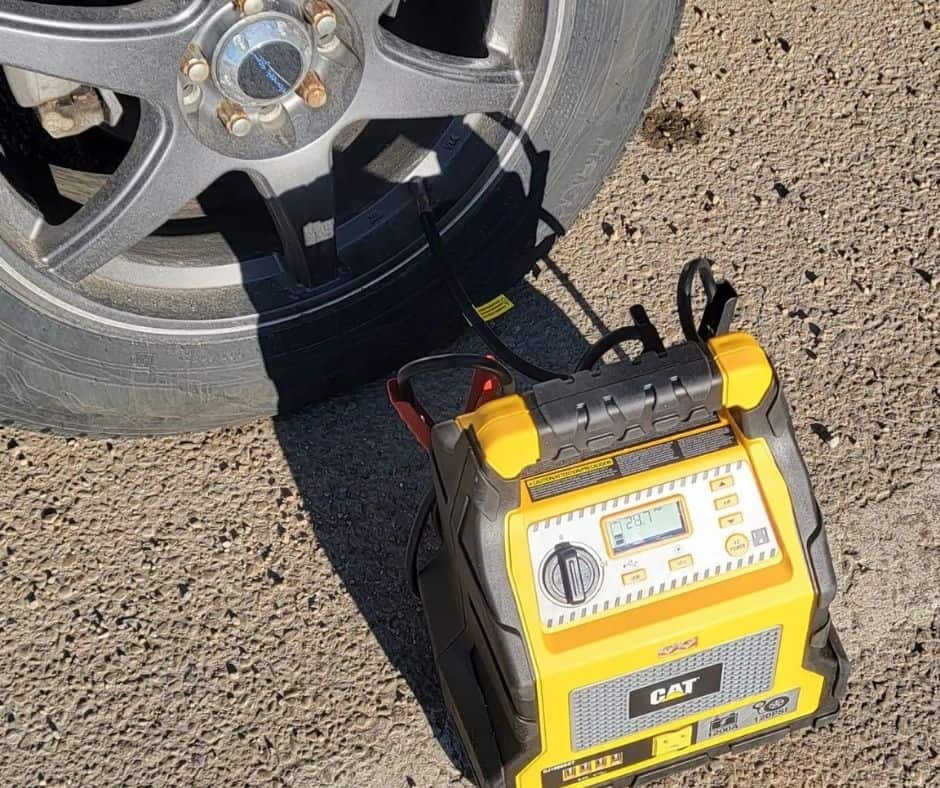
Slow leaks might start out as a minor inconvenience, but they can turn into a major problem if the tire gets too low.
Countless numbers of people have parked up at their campsite only to find one or two of their RV tires has a slow leak.
When you have a portable air compressor on board , you can refill these tires before hitting the open road, rather than risking popping a bead, severe tread wear or a blowout just trying to get back to civilization.
Check RV Tire Tread
Keep an eye on your RV tire tread. Little things like the penny test or using a tire caliper will help you determine when it is time to rotate your tires.
It can also help you catch things like an alignment issue that needs to be repaired.
Perform Routine Maintenance
It’s all too easy to learn to live with a minor variance in your motorhome’s alignment or a travel trailer that pulls a little bit to the left.
Though left unchecked these minor issues can contribute to the kind of uneven tire wear that will kill RV tires long before their time.
Getting these issues repaired by the certified mechanic will help pay for itself in extended tire life as well as an RV that is safer on the road.
Use Jack Stands & Supports When Camping
Even if you are going to be parking up your RV for a single night on your way to a far-flung destination, you should still use the necessary jack stands, struts or supports for your RV.
Not only will this take some of the load off the tires, but it can also improve the overall life and performance of your RVs suspension system, which can also affect tire life in the long term.
Replace Tires When Needed
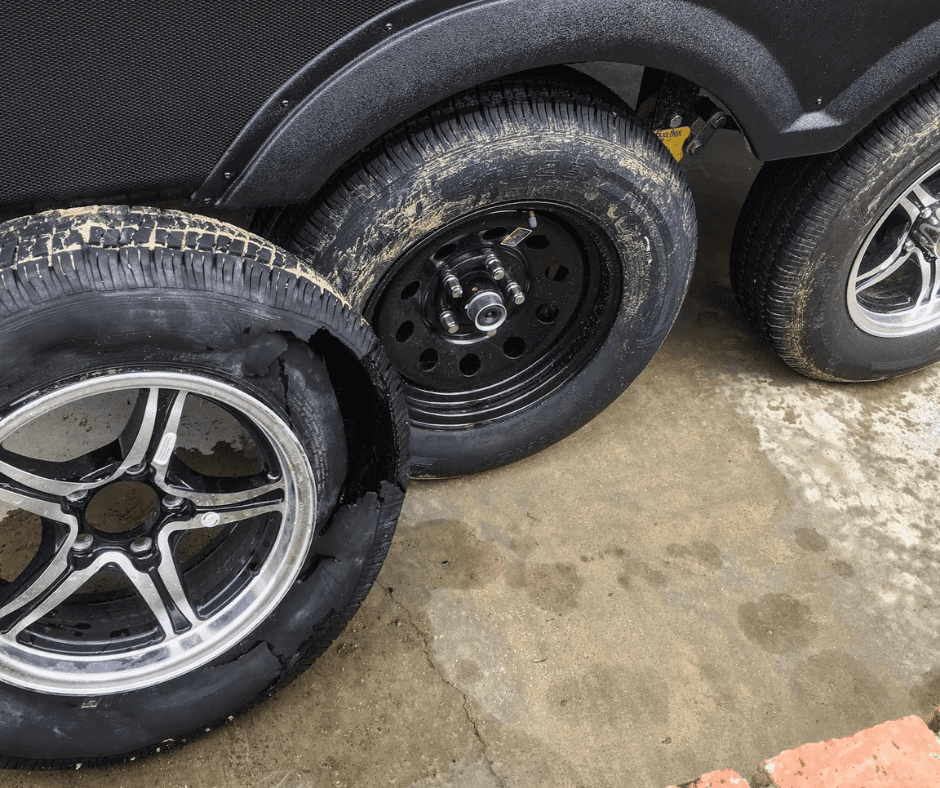
It’s tempting to try to push an RV tire or two beyond their expected lifespan. Especially if your RV has multiple axles.
Unfortunately, the poor performance or uneven tread wear of these compromised tires can affect the life of other tires shortening their life prematurely as well.
RV Tires tend to have an average lifespan of around 5 years. Perhaps less for a motorhome that puts on a lot of cross-country miles, perhaps more for a travel trailer that only two or three short vacations away from home every year.
Taking care of your RV tires by checking the tread and frequently checking the tire pressure, as well as storing it properly will go a long way toward getting every last mile and moment out of them.
It will also help reduce the overall cost of ownership that comes with routine RV tire replacement.
About Author / Aaron Richardson
Aaron Richardson is an expert RVer and the co-founder of RVing Know How. Aaron, along with his wife Evelyn, has been living and traveling in their Keystone Fuzion RV since 2017. Their adventures span across the country and beyond, including memorable RVing experiences in Mexico. Aaron's passion for the outdoors and RVing shines through in his writings, where he shares a blend of travel stories, practical tips, and insights to enhance the RV lifestyle.

15 Best Camper Vans To Live In For Full-Time Vanlife
8 ways to move or transport a rv trailer without a truck.
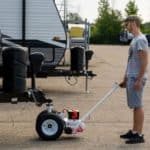
Stephen Ryan
You can expect RV tires to last from 3 – -6 years before replacing them. Indeed, there are many factors that can increase or decrease the lifespan of your RV tires. The most common factors include inflation, rotation, and pressure monitoring.
Leave a Comment Cancel reply
Your email address will not be published.
Save my name, email, and website in this browser for the next time I comment.
You Might Also Like
![The 8 Best RV Tire Pressure Monitoring Systems (TPMS) In [currentyear] 14 Best RV tire pressure monitoring system reviews](https://www.rvingknowhow.com/wp-content/uploads/2020/05/Best-RV-tire-pressure-monitoring-system-reviews.jpg)
The 8 Best RV Tire Pressure Monitoring Systems (TPMS) In 2024
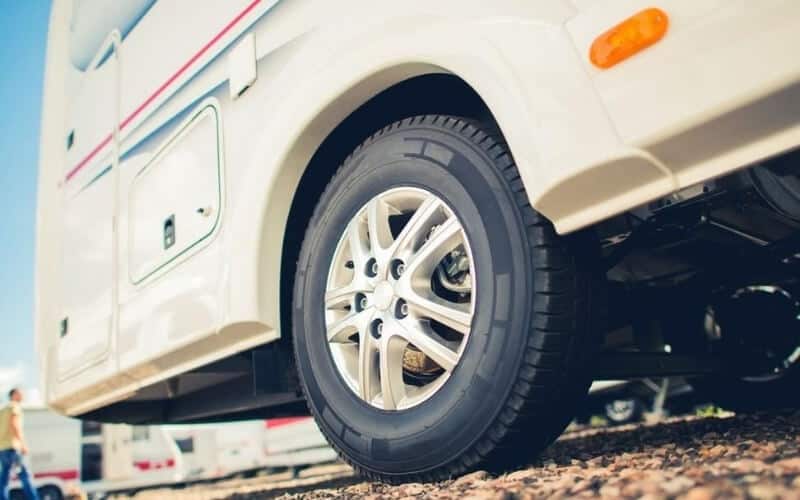
How Much Does It Cost To Replace RV Tires?
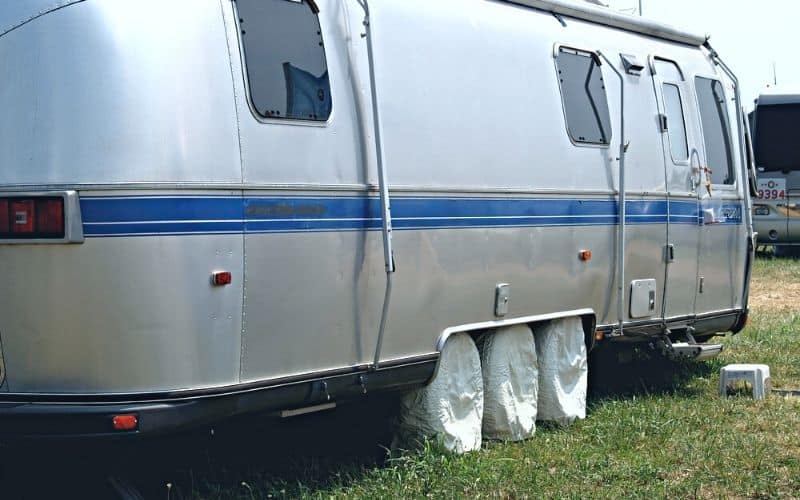
Best RV Tire Covers To Protect your stored motorhome or trailer tires from UV Damage
Start typing and press Enter to search

How Long Do Trailer Tires Last? (Explained!)

Key Takeaways ● Trailer tires’ overall lifespan can range from three to seven years. ● Factors that influence the longevity of trailer tires include the type of trailer, the load being carried, frequency of use, and even weather conditions. ● Proper maintenance is essential for extending the life of a trailer tire.
Regarding travel trailers , one of the most important things you need to pay attention to is your trailer’s tires.
After all, if they’re not in good condition , it can be difficult or even dangerous to drive your trailer. So how long do travel trailer tires last? And when should you replace them?
Generally speaking, trailer tires have an average lifespan of three to seven years. Factors such as the type of trailer, the load being carried, frequency of use , and weather conditions can all affect the overall longevity of your trailer tires.
Keep reading to find out everything you need to know about trailer tires!
Table of Contents
- 1 Special Trailer Tires Vs Light Truck Tires
- 2 Factors That Affect the Longevity of Trailer Tires
- 3 Types of Trailers and Their Tire Lifespans
- 4 Tips to Extend the Life of Your Trailer Tires
- 5 Frequently Asked Questions
- 6 Conclusion
Special Trailer Tires Vs Light Truck Tires

Special trailer tires are specifically designed to meet the needs of HEAVIER trailers, such as those for recreational vehicles ( RV ) and horse trailers.
These tires are thicker, have a greater load capacity , and feature higher-grade materials than regular light truck tires. The average lifespan of ST trailer tires is from three to five years.
Light truck tires are NOT designed for use on trailers, and while they may fit the wheel, they cannot handle the heavier loads that come with trailer use . It could also lead to tire failure and other safety issues.
Light truck tires last an average of between three and seven years, depending on usage and conditions .
Factors That Affect the Longevity of Trailer Tires

When it comes to the longevity of your trailer tires, several factors can affect their lifespan . Here are some of the most common ones:
Type of Trailer
Different types of trailers will REQUIRE other tires. For example, flatbed trailers need heavy-duty tires that can handle the weight of the load , while horse or utility trailers require lighter -duty tires [1] .
Load Being Carried
The weight of the load being carried can significantly impact the life of your trailer tires. The heavier the load , the MORE strain is placed on your tires, which can shorten their lifespan .
Frequency of Use
How often you use your trailer will also affect the tire life. The more frequently they’re used, the QUICKER they will wear out.
Weather Conditions
Weather conditions can also affect how long your trailer tires last. Exposure to EXTREME temperatures or harsh UV rays can cause the rubber of your tires to degrade more quickly, reducing their lifespan .
Maintenance and Care
Proper maintenance and care are also crucial in prolonging the life of your trailer tires. Regularly checking tire pressure , inspecting for signs of wear and tear , and storing your trailer in a covered area can help EXTEND its lifespan .
Pro Tip : You should always replace trailer tires in pairs, as this will help maintain a balanced ride and ensure your vehicle stays as safe as possible.
Types of Trailers and Their Tire Lifespans

The lifespan of your trailer tires can vary greatly depending on your trailer type. Here are some of the most common types of trailers and the tire lifespans you can expect from each:
Flatbed Trailers
Flatbed trailers are designed for hauling heavy loads and require SPECIAL heavy-duty tires to handle the weight [2] .
Usually, the type of tire used for these trailers will be rated for a minimum of 3,500 lbs. and should have an average lifespan of 5 to 7 years with proper care and maintenance .
However, the tires may not last as long if the trailer is OVERLOADED or exposed to extreme weather conditions .
Utility Trailers
Utility trailers are designed for hauling LIGHTER loads and require lighter -duty tires than flatbeds. Usually, the type of tire used for these trailers will be rated for a minimum of 2,200 lbs. and should have an average lifespan of three to five years with proper care and maintenance .
Horse Trailers
Horse trailers require the most durable tires designed to safely TRANSPORT horses. The type of tire used for these trailers will be rated for a minimum of 4,500 lbs. and should have an average lifespan of five to seven years with proper care and maintenance .
RV Trailers
RV trailers are designed for recreational travel and require special tires that can HANDLE the weight of a full RV . The type of tire used for these trailers will be rated for a minimum of 3,500 lbs. and should have an average lifespan of three to five years with proper care and maintenance .
Pro Tip : If you are hauling a heavy load, consider opting for tires with higher weight ratings to ensure your vehicle’s and cargo’s safety.
Tips to Extend the Life of Your Trailer Tires

To ensure that your trailer tires last as long as possible, it’s essential to take proper care of them. Here are some simple tips to help prolong tire life:
Inspect for Signs of Wear & Tear
Regularly inspecting your trailer tires for signs of wear and tear is also important in ensuring they last as long as possible. Signs to look out for include cracking, bulging, and dry rot.
If you find any of these signs, it’s best to REPLACE the tires immediately to avoid further damage to the tire aging process.
Store in a Covered Area
Storing your trailer in a covered area can help protect your tires from extreme weather conditions that may speed up the deterioration process. This is especially important if you live in an area with HARSH climates or seasonal temperature changes.
You can also use tire covers to help protect your tires from other elements that may cause premature wear.
Rotate Tires Regularly
Regularly rotating your trailer tires can help ensure even wear and EXTEND their lifespan . You should rotate your trailer tires every 6,000 to 8,000 miles or once a year, whichever comes first.
Avoid Overloading
Overloading your trailer will not only put unnecessary stress on the tires but can also cause them to wear out more quickly. Be sure to check the MAXIMUM load capacity of your trailer and don’t exceed it.
Clean & Wax Regularly
Cleaning and waxing your trailer tires regularly will help PROTECT them from UV rays, dirt, and debris that can cause premature wear. A good quality tire cleaner and wax can help extend the life of your trailer tires by keeping them in top condition .
Buy Quality Tires
Finally, investing in quality trailer tires can help ensure their longevity. Quality trailer tires are designed to WITHSTAND the rigors of regular use and provide maximum protection against the elements.
Quality tires will also save you money in the long run , as they won’t need to be replaced as often.
Frequently Asked Questions

How Should I Check The Tire Treads?
Checking for tire treads is easy and can be done with a simple penny test. Insert a penny into the tread depth. If Lincoln’s head is visible, then it’s time to replace the tires [3] .
How Often Should I Check My Trailer Tire Pressure?
It is recommended that you check the tire pressure of your trailer tires at least ONCE a month and adjust as needed. This will help to ensure they are correctly inflated and worn evenly, helping to extend their lifespan.
I Plan On Visiting A Rocky Terrain. What Should I Do To Protect My Tires?
If you plan on visiting a rocky terrain, it is essential to have your tires inflated for the load and terrain. Additionally, installing extra protection, such as mudflaps or different fender liners, can help prevent debris from entering your tires and causing damage.

When shopping for trailer tires, it is essential to remember that there is no one-size-fits-all solution. The lifespan of your trailer tires will depend on a number of factors, including the type of trailer, the load being carried, frequency of use , and even weather conditions .
Considering all of these factors, you can ensure that your trailer tires have a long and productive life.
Sharing is caring!

Lisa Hayden-Matthews
- March 12, 2023
- No Comments
Related Posts
How to setup a perfect camping shower (easy guide), ultimate review of the best costco canopies in 2023, ultimate review of the best 10-person tents in 2023, how to winterize a camper to live in : a checklist, gear, hacks that will protect your mobile home, how does an rv refrigerator work everything you need to know.
Subscribe To Our NewsLetter!
FINANCIAL & MEDICAL DISCLOSURE
The HobbyKraze is a participant in the Amazon Services LLC Associates Program, an affiliate advertising program designed to provide a means for website owners to earn advertising fees by advertising and linking to amazon.co.uk and any other website that may be affiliated with Amazon Service LLC Associates Program. As their Associate, we earn from qualifying purchases.
The information written on this website is not medical advice, nor has it been endorsed by medical health professional(s). All content on this site is for informational purposes only.
We are independently owned and the opinions expressed here are our own
453, S Spring Street, Ste 400 PMB1061
Los Angeles, CA 90013
Accounts Dept : [email protected]
General Enquiries: [email protected]
Publishers Relations: [email protected]
Tel: +1 (213) 457-3776
Explore The World, Unleash Smart Hobbies & Increase The Zest For Life In You!
Site Structure EarthlyChirp
©2023 HobbyKraze. All Rights Reserved.

Where You Make It
How Long Will My RV Tires Last and When Do I Need to Replace Them?
Hey! This site is reader-supported and we earn commissions if you purchase products from retailers after clicking on a link from our site.
Determining the longevity of your RV’s tires can be complex because there are numerous factors that need to be considered. Weather can cause damage to your tires as can overuse and underuse. Corrosives such as salt and sand mixtures many road maintenance crews use during the winter can cause damage as well.
As a rule, RV tires can last anywhere from three to eleven years before they need to be replaced. It really just depends on how many miles you put on them and as I said before, the weather conditions to which they are exposed.
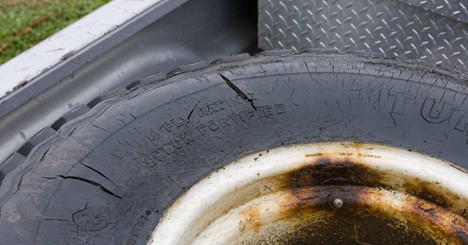
One of the most common issues with RV tires is called weather checking. This deterioration occurs most often when your tires are exposed to ultraviolet light for longs periods of time with little to no use. In other words, leaving your RV dormant for long periods of time while the tires are exposed to prolonged periods of direct sunlight can be just as damaging to them as driving on them until the tread is worn below the manufacturers recommended guide for your tires make and model.
What can I do to avoid weather checking?
There are several ways to avoid weather checking or dry rot on your RV’s tires. The most obvious solution would be to keep your RV stored indoors to avoid prolonged exposure to sunlight. However, given the size of many RVs this can be problematic as most people don’t have a building large enough to keep a trailer or motorhome garaged and out of the elements when not in use.
Another good way to avoid checking is to apply a tire coating and protectant every couple of weeks when your tires are exposed to long periods of sunlight. This will help to keep your tires looking new as well as helping to keep them sealed which will keep them from cracking over time.

- Keeps tires looking newer, longer
- Prevents fading caused by UV rays
- Prevents dry rot
Last update on 2024-05-08 / Affiliate links / Images from Amazon Product Advertising API
Additionally, purchasing a good set of wheel and tire covers are another way to prolong your RV’s tire life. Be sure not to purchase covers that are too inexpensive as they we be subject to dry rot just as easily as your tires. I also don’t recommend purchasing black wheel covers as they will absorb UV rays whereas white covers will reflect the heat and UV rays and are likely to last longer over time.

- Fits wheels 27"-30"DIA (Model 3)
- Three-year limited warranty
- Rugged wipe-clean vinyl material with a soft non-scratch black backing
Understand your RVs tire inflation
Keeping your RV’s tires properly inflated will help to extend the life of your tires as well. Whether it’s your towable camper, your tow vehicle or motorhome, proper tire inflation is also a key to your tire’s longevity. Under inflated tires will cause undo wear on the outside of your tires and over inflated tires will cause unwanted wear to the center of your tires so these factors can cause your tires to need to be replaced sooner than what you would expect if they were always properly inflated.
You can use a tire gauge like the one below or a tire pressure monitoring system to measure your tire pressure. If you need to inflate your tires while you’re camping, make sure you have a good air compressor as well.

- HIGH PERFORMANCE LOW MAINTENANCE - It is your pride and joy. Your car is one of your partners in...
- SAFETY FIRST - Driving your family, friends or simply carpooling is a big responsibility. Protecting...
- SAVE YOUR GAS MONEY AND THE ENVIRONMENT – A beneficial situation for all mankind. When tires are...
Are your tires suitable for the weight of your RV?
I have spoken about this in other columns , but too often RV manufacturers use cheap tires on new RV models. While they do follow the guidelines set forth by the National Transportation and Safety Administration (NTSA), in my opinion they tend to skimp on the quality of tires for a towable RV because they base your tire size on the weight of your RV when it comes off the assembly line.
This means that once you have added additional weight to your RV such as clothes, small appliances, outdoor furniture, dishes and numerous other items you may want to bring with you on your camping adventures will all affect the overall weight of your camper. In short, be certain to make sure that your tires are adequate for the total weight of your rig. Frankly, I always recommend that when purchasing a new RV , that you immediately upgrade your tires to the final weight of your camper to avoid a blow out while driving down a busy roadway which could lead to an accident-causing physical harm and damage to your rig.
Always inspect your tires sidewalls
Whether it’s a towable or a motorhome, always keep a close watch on the sidewalls of your tires. If you discover a bulge in your tire’s sidewalls, replace them immediately as a bulge indicates that the radial bands on the inside of the sidewall have separated and this separation will put undo pressure in a small area which will lead to a blowout of the tire eventually and it’s usually likely to occur when the tire is hot from driving down the road at higher speeds. Be sure to do this inspection is you have rubbed your tires along a curb too.
Check your tire’s tread thickness
The more you travel, the quicker your tires will need to be replaced because the tread will wear out over time. Be sure to read your tire manufacturers guide to determine when they have reached their usefulness and replace them as needed.
Another good idea for checking your tires and making them last longer is to be sure your trailer is towing properly. Sometimes your trailer axle will be slightly askew, and this will cause your trailer to “dog leg” slightly when it’s being pulled down the road. This will cause undo wear to the tire treads too. To check for this issue, hook your trailer up to the tow vehicle as you would normally and either you or someone else should follow behind it on the road to make sure it is towing straight and correctly.
Final thoughts
There are numerous factors to consider when trying to determine the longevity of your tires. To me the most important factor is how often you use your rig and how well you maintain your tires. I’ve had tires that have lasted as long as 18 years because I kept them covered and maintained them properly. On the other hand, I have travelled full-time and simply wore them out over a much shorter period of time due to ordinary wear and tear. In a nutshell, always be sure to maintain your tires correctly, inspect them often and be sure to replace them as needed. To do otherwise, is to put yourself and others in danger while you are travelling down the highway.
As always, my friends, stay safe, stay healthy and maybe someday we’ll see each other out on the road.
Related Articles:

Born and raised in Michigan, contributing writer Brian C. Noell is a retired hospitality industry professional that now works remotely as a visual artist, writer and photographer as he travels around the United States in an RV with his dog Lizzy, an eighty pound Appenzeller hound dog.


RV Zone is reader-supported. When you buy through links on our site, we may earn an affiliate commission. Learn more
How Long Do RV Tires Last? 3 Ways to Know When to Replace Them

Writen by Tom Hank

Fact checked by Joseph Varney
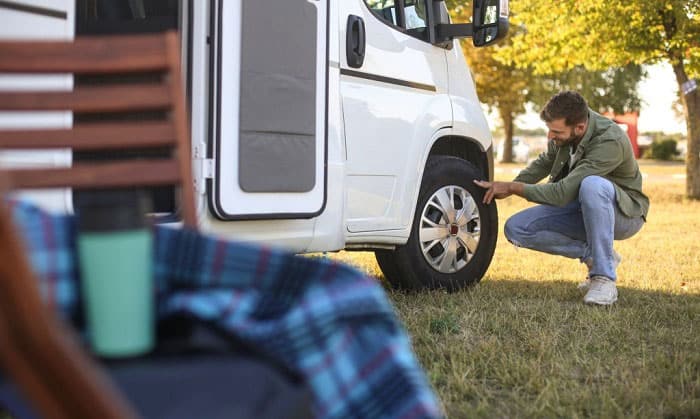
It is safe to say that any vehicle owner does not like to experience a tire blowout, especially an RV owner. The air can disappear in the tire because of different reasons, including age and a nail left on the road. So how long do RV tires last?
In general, an RV tire should last about 6 years before it needs replacing. However, you should replace your tire at least once every 5 to 8 years regardless of its condition. That way, you maintain peace of mind while you are on the road.
But how will you know if it is the right time to replace the tire on your travel trailer? Keep reading to find out the right moments that will alert you when you need new tires for your motorhome, so you can enjoy more of your RV camping trips without worry.
Table of Contents
How Long Do Trailer Tires Last?
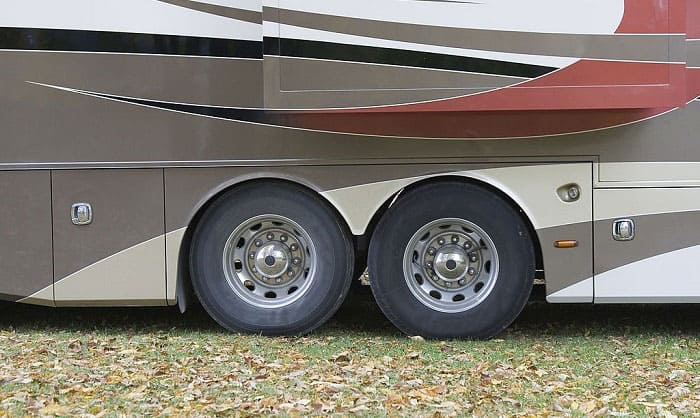
RV tire replacement should happen at least once every 5 to 8 years. In many cases, tires on motorhomes would not function properly after the 6-year mark.
Still, a motorhome tire life expectancy can last longer than 6 years, particularly when it is properly taken care of, like exercising proper storage. On the other hand, certain tires will only last four years on average, especially low-quality models.
If you want to increase tire life, check out the instructional video below:

How to Know When to Replace RV Tires?
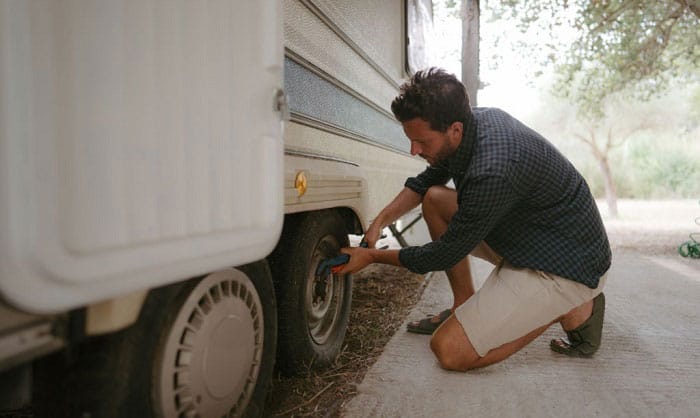
To ensure optimal safety when you are on a trip, this section will talk about some tips to determine the right time to replace your RV tires. Here, you are going to learn about specific conditions that signal when to replace RV tires, aside from looking at the age.
Wear and Tear
One factor that will determine if tires will last a reasonably long time is their usage. If you go camping frequently with your motorhome or travel trailer, consider expecting the life of your vehicle’s tires to be shorter than average.
The tires on a car or RV have treads that eventually become worn. The more you use your vehicle, the faster these treads wear out.
As a general rule of thumb, you can use the penny test to check if your RV’s tires are worn. If the tread depth does not reach Lincoln’s head on the penny while you are holding the coin upside down, it is time to replace your RV tires.
Additionally, you can also check out this short video to help you check the wear condition of your RV tire.
How Do I Know It’s Time to Replace My Tires?
Frequently Low Tire Pressure
Nails, rocks, and other sharp objects can blow or puncture a tire, which can lead to blowouts or low tire pressure. Significant heat can also become a problem as the bad weather can increase the risk of melting the tire’s rubber sidewall.
Oftentimes, you only need to send the tire to a repair shop to have it fixed. Some establishments can even reestablish proper inflation on the damaged tire.
However, in some cases, the pressure on your tires reduces quickly even after proper repairs. If so, it is time to replace the tires. Having your tires replaced ensures that your RV maintains balance while you hit the road.
Plus, tires that lose a significant amount of pressure frequently will invite many on-the-road safety risks. Driving with a low-pressure tire could increase the risks of accidents and safety hazards.
Damaged Valve Stem
The valve stem of travel trailer tires is a fairly small, protruding tube generally made of metal and rubber. It has a spring-loaded mechanism to help stop air from leaking out of the tire.
An RV tire with a damaged valve stem will not be properly inflated. You can drive for many miles, and your tire will lose pressure quickly.
It can be quite difficult to repair a damaged valve stem. Therefore, if this component is the main source of the issue, it might be best to replace the tire instead.
Also, consider replacing the tire with an identical model. That way, you can make sure you are still using the same important parts.
Now that you are at the end of this guide, you should now have a better idea of how long do RV tires last.
In summary, many rig tires last about 6 years before they need replacing. Certain cases dictate that the lifespan of these tires can shorten or lengthen, depending on different factors.
Make sure to check the following to gain a rough estimate of the date to replace your motorhome or travel trailer’s tires:
- Signs of wear and tear
- Tire pressure

Hi, I am Joseph. Carpe diem! Seize the day! That’s always been my life motto. If you haven’t seen some of the most beautiful places in the country, you are missing out on incredible adventures.

How Long Does a Travel Trailer Last? 10 Tips to Increase the Life Expectancy and Value of Your Camper Trailer!
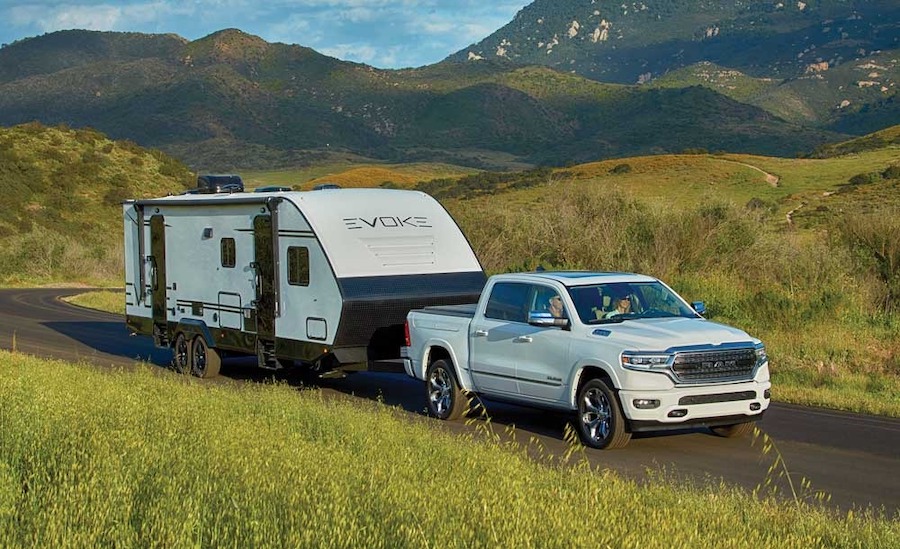
Sharing is caring!
Thanks for your support! If you make a purchase using our links in this article, we may make a commission. And, as an Amazon Associate, I earn from qualifying purchases. See the full disclosure here .
How long does a travel trailer last? That is a question that is top of mind for many buyers when they are considering purchasing a travel trailer. After all, you do not want to purchase a travel trailer only for it to be unusable in a few years. Luckily, travel trailers will last for around 10 years on average.
However, 10 years is only the average life expectancy for a travel trailer. Some trailers will last longer, and some will have a shorter lifespan. That said, what you do to maintain your trailer is very important. How often you use your travel trailer is also a critical factor.
What Is the Average Life Expectancy of a Travel Trailer?
10 years is not necessarily the point in time where a travel trailer is no longer usable. Instead, 10 years is the amount of time it takes to get your money’s worth out of the trailer. However, that is only true if you are using it consistently. If you are not using the trailer consistently you will need to use it for longer.
Travel trailers require a decent amount of maintenance. They are often brought to uncomfortable environments where they are exposed to the elements in a big way. As a result, they will fall apart quickly if you do not put in the effort to maintain them. However, if you do put in that effort, a camper can last up to 25 years. This makes them a better investment than a car as you generally cannot expect regular vehicles to last even close to 25 years.
What Types of Travel Trailers Last the Longest?
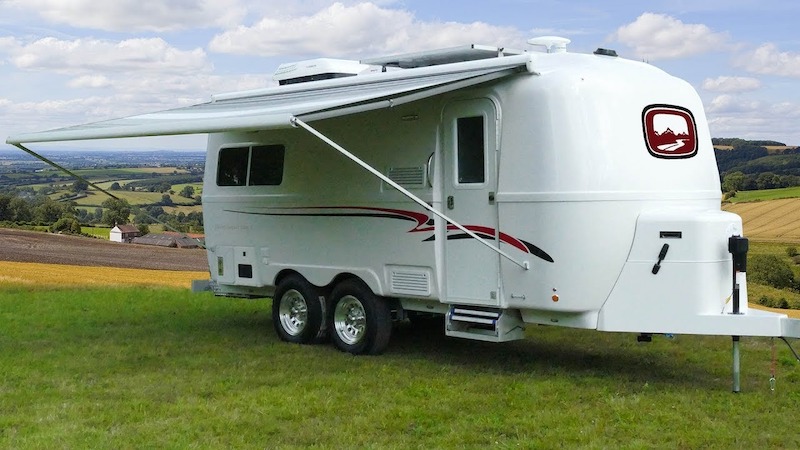
The two most common types of travel trailers are aluminum and fiberglass. Travel trailers made of both materials have their pros and cons. Aluminum travel trailers have panels that are easy to replace, and the material is lighter. Since aluminum is lighter it increases your tow capacity. Aluminum is also generally cheaper than fiberglass. It also has great breathability, which helps with reducing condensation and mildew on the interior of the travel trailer.
Conversely, fiberglass holds up better in bad weather like rain and hail. It is resistant to denting which is very important when you bring your trailer to a campsite. Additionally, fiberglass provides better insulation than aluminum. This means that the trailer will hold heat better in the winter and stay cool during the summer. Fiberglass travel trailers are also more durable than aluminum ones.
So, which type of travel trailer generally lasts longer? Typically, you can expect a fiberglass travel trailer to last longer than an aluminum one. These trailers are more durable and can withstand more severe weather conditions.
RELATED READING
To learn all about the best fiberglass travel trailer brands check out our article called 7 Best Fiberglass Travel Trailer Brands where we review some amazing fiberglass camper brands.
What Are the Longest Lasting Travel Trailer Brands?
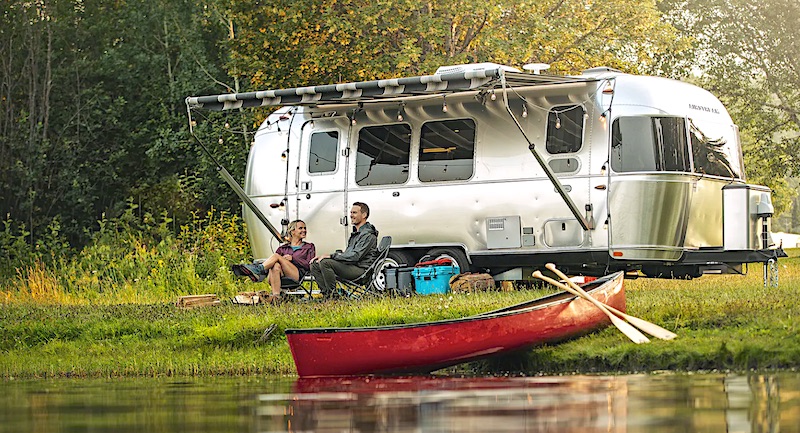
One of the most popular travel trailer brands is also one of the longest lasting. Airstream travel trailers are incredibly durable and will last you a long time as a result. However, that is not the only reason to purchase an Airstream travel trailer. The travel trailers and RVs from Airstream have many floorplans that give you everything you need. They come in every size you could ever want, and they are fairly lightweight.
Furthermore, you can expect travel trailers from Forest River and Keystone to last you a long time as well. Both provide incredibly durable trailers that should last you for many years.
However, just because we did not name a travel trailer brand does not mean that they do not provide durable and long-lasting travel trailers. Additionally, just because a trailer is from one of the above brands does not mean you should not do your research when you go to make a purchase. Before you make a purchase from any brand you should do your research to make sure that the trailer you want will last you a long time.
What Parts of a Travel Trailer Wear Out?
Some of the first things you will need to replace or provide maintenance for are the weather seals. Weather seals exist around the doors and windows of your trailer. They exist to ensure that air and water do not leak into your trailer. Over time these seals will begin to loosen and the adhesive that keeps it attached will lose its stickiness. When this happens you will need to have some repair epoxy on hand, as well as a few tubes of silicone sealant. When you notice these leaks you need to deal with them immediately. Small leaks can turn into big leaks quickly, and if they get out of hand mold and mildew will start to appear on your travel trailer.
You will also need to take the time to maintain the holding tanks for your travel trailer. These tanks hold your water for several activities you need every day. However, each tank holds different types of water. If you are new to the travel trailer world, you might not know about the three types of water that matter to travel trailer owners. These kinds of water are fresh drinking water, washing water, and blackwater.
Fresh and drinking water drain naturally into the wastewater compartment and are flushed out with the blackwater. It seems simple, but you need to make sure that you are maintaining your system every time you dump the blackwater tank. If you do not take the time to rinse the pipes an unpleasant aroma will begin to appear which could indicate equipment failure.
Finally, the awning is the most replaced part of an RV. The awning is exposed to the elements the most. You can avoid damage by tilting it downward during a storm so that water does not pool up.
To learn about how to reseal your travel trailer windows check out our article called Best Sealant for RV Windows – Leakproof Your RV!
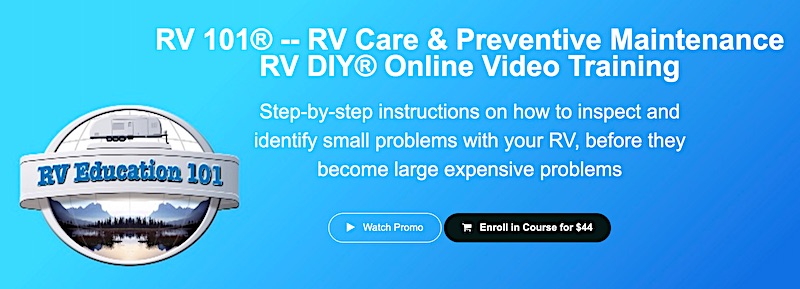
How Can I Make My Travel Trailer Last Longer?
Here we will look at 10 things you can do to make your travel trailer last longer. You do not necessarily need to do everything on this list, but they can all be helpful.
1. Inspect the Roof Seals and Seams on Your Travel Trailer Regularly
The seals and seams on a travel trailer are usually the first things that need maintenance or to be replaced. As a result, keeping an eye on them is essential for any travel trailer owner. You should try to inspect at least once every three months.
If you do not take the time to inspect the seals and seams on your travel trailer, you will start to notice leaks. This will be especially notable if the seals on your roof begin to wear out. If you notice that a seam or seal is starting to wear out, there are several sealants that you can use to patch things up. However, you need to make sure that you use a sealant that is compatible with the material of your travel trailer. Otherwise, the sealant might not stick as intended.
2. Tighten Your Travel Trailer’s Wheel Lug Nuts and Check Tire Pressure
Before you leave on a trip, you should take the time to tighten the wheel lug nuts on your travel trailer. You should also measure tire pressure before leaving on a trip. The last thing you want is to get in a situation where your tires are deflated when you are 100 miles away from home. So, take the time to check your tire pressure and you will save yourself a headache in the future.
3. Check Your Batteries
One of the worst things that can happen on a camping trip is for your battery to die. If this happens you will be unable to power anything in your trailer. Suddenly a trip you were looking forward to will turn into a nightmare. You should make sure your battery is fully charged before leaving on a trip to lower your risk of it dying. Typically, batteries need to be replaced every three to five years.
4. Keep Your Waste Water System in Good Condition
To keep your waste water system in good condition, you need to make sure that you are using chemicals that are compatible with each system. You also need to make sure that there is enough fluid in the system after flushing. It is also important to flush the system regularly. Failing to do these things will result in a buildup of fluid which can lead to clogging and valves seizing.
5. Clean and Treat Your Travel Trailers Slide Out Seals
The seals on your slide out are some of the first seals to start to wear out. That is because they are constantly rubbing up against things which wears them out quicker. So, you need to make sure to clean them on a regular basis so that there is not a build up of dirt. Removing dirt will help keep the seals in could condition. It is also a good idea to apply lubricant to the seals so that it can slide out with ease.
6. Replace Your Filters
It does not matter what type of filter you have or what it is for, all filters need to be replaced eventually. Make sure you inspect your filters regularly so that you know when to replace them. Failing to do this will give you serious problems down the line.
7. Maintain Your Awning
One of the most important parts of your travel trailer to maintain is your awning. You need to clean it regularly so that there is not a build up of mold or mildew. Additionally, if you inspect your awning regularly you will notice tears early on and repair them with ease. However, if you do not inspect it regularly you will find tears when they are beyond repair.
Finally, you should make sure that you clear your awning of debris regularly. Debris build up can cause tears and it can even cause nests to build up. The last thing you want is for bees to make a home on your awning, so take your time to clean it.
8. Make Sure Your Electrical Connection is Working
It is important that the electrical connection between your travel trailer and tow vehicle is working before you leave on a trip. This connection is what transmits signals from your vehicle to the travel trailer. For example, this connection transmits the break signal form you signal to the lights at the back of the travel trailer. Obviously, this is very important to the safe of yourself and others, so make sure that it is working before you get on the road.
9. Clean the Exterior of Your Travel Trailer Regularly
Most people do not like to clean things and the same is true with their travel trailers. However, it is important to clean the exterior of your travel trailer regularly. This is especially important if you travel close to beaches. Salt from the water and sand can kick up and get on the outside of your trailer. Salt can corrode metal quickly, so you need to wash your trailer any time you drive near the water.
When you clean your trailer, you should use a large sponge instead of a high-pressure hose. High pressure hoses can cause damage to the finish of your trailer. They can also loosen exterior fittings, so you will want to take the extra time to clean your trailer with a sponge.
10. Consult with an Expert
If you run into a technical issue with your travel trailer, do not be afraid to consult with an expert. Not everyone that owns a travel trailer is an expert on how everything works. However, many people will try to fix problems without really knowing what to do. If you get into one of these situations you do not need to be a hero. Go and consult with an expert to see what the proper course of action is for fixing the issue. If you try to fix something without knowing what to do you could cause more damage than you fix.
Another option that will allow you to learn from an expert and also save you some serious money is to purchase one of the online video training programs from RVEducation101 . We have purchased their videos and learned a ton about how to operate and maintain our RV! And rather than search YouTube for half right or incomplete information from non-expert RVers, RVEducation101 is taught by Mark Polk who is a true expert in RV maintenance.
How Much Do Travel Trailers Depreciate?
Vehicles depreciate faster than nearly any other investment you can make. As a result, many financial advisors will recommend that you do not purchase a vehicle unless absolutely necessary. The same is true for travel trailers as you will lose roughly 20% of its value in the first year alone. After five years you can expect the trailer to have lost about 40% of its value. It will then continue to depreciate over time. However, as you can see, travel trailers lose the biggest percentage of value in the first year of ownership.
To learn all about the value of your travel trailer or camper over time check out our article called Travel Trailer Depreciation: What’s My Travel Trailer Worth?
Do New or Used Travel Trailers Last Longer?
New travel trailers will last longer than used travel trailers. However, the lifespan of both types of trailers is entirely dependant on your dedication to maintenance. If you do not put in the time to maintain your travel trailer you could purchase a new travel trailer and have it degrade faster than a friend that maintains their used travel trailer.
That being said, if you take a new travel trailer and a used travel trailer and maintain them the same amount, a new travel trailer will last longer. The used travel trailer will already have miles on it that reduces its lifespan. Conversely, a new travel trailer has the potential to last a very long time if you do the proper maintenance.
Should I Buy an Extended Warranty for My Camper?
Yes – but not from a dealership! Unfortunately, your odds of suffering a major mechanical breakdown go up with every passing year. Based on RV Warranty claims records, more than 3 out of every 10 RVs will need major repairs in only their second year on the road. This skyrockets to 8 out of 10 in their fifth year, and virtually ALL of them in their eighth year! Today’s RVs are increasingly more complex, and with more things to go wrong, the need to protect your investment is more important than ever.
Our RV Warranty plans allow you to change your mind! If you’re looking to sell your RV to a private party, you can absolutely transfer the policy to the new owner. Additionally, if you are trading in your RV, or getting out of RVing altogether, you can cancel your policy for a pro-rated refund.
We bought a warranty through Wholesale Warranties for several reasons:
- We can cancel the warranty at any time and get a pro-rated refund
- We can transfer the warranty to the new owner if we decide to sell our RV
- There are no mileage caps on our policy
- We can use repair shops all across the country
- We can use a mobile repair company right at our campsite
- The price is way better than most dealerships
- We could finance the cost of the warranty
- With parts and labor prices increasing all the time, we have peace of mind
You owe it to yourself to at least check out a warranty and get a free quote to see if it is right for you. It just takes a few minutes and you will learn a ton about protecting your investment. We only recommend products we use ourselves and we highly recommend you get a free quote from Wholesale Warranties .
Get on the Road After Doing Your Travel Trailer Maintenance
After reading, we hope you have all the information you need to properly maintain your travel trailer. We know there is a lot of information to absorb, but it should all be helpful in increasing the lifespan of your travel trailer. By doing your maintenance, you can increase the lifespan of a travel trailer by years.
Owning a travel trailer can be a lot of work. It requires a lot more maintenance than a regular vehicle, but it can also last longer. However, it will not last very long if you do not do the work. If you fail to maintain your travel trailer, you will lose a lot of money on the trailer as it breaks down quickly over the years. So, put in the effort and you can have a better time on your trips, and your wallet will thank you long term.
Check out this helpful article to find everything you will need to find parts and maintain your camper trailer called 8 Best Places to Buy RV Accessories and Supplies .
Are you a new or experienced travel trailer owner? Do you do your maintenance yourself or do you hire someone to do it? Where is your favorite place to bring your travel trailer? Let us know in the comments!
For more specific information about the 10 tips above check out our RV maintenance articles below: – How to Clean the Outside of a Camper Trailer – Homemade RV Awning Cleaner – RV Black Water Tank and Sensor Cleaning Tips – Do I Need a Battery for My Travel Trailer? – Can I Use Flex Seal on My RV Roof? – 9 Easy Tips for Cleaning Your RV Rubber Roof – Is Pressure Washing an RV Safe? – 10 Most Googled RV Aluminum Siding Questions – Should I Grease My Trailer Hitch Ball or Not? – How to Clean and Store an RV Sewer Hose – How to Flush and Clean RV Holding Tanks – Does Eterna Bond Really Work at Stopping RV Roof Leaks?

1 thought on “How Long Does a Travel Trailer Last? 10 Tips to Increase the Life Expectancy and Value of Your Camper Trailer!”
Great information! Thank you so much for sharing!
Leave a Comment Cancel reply
Save my name, email, and website in this browser for the next time I comment.

This post may contain affiliate links or mention our own products, please check out our disclosure policy .
Best Trailer Tires to Avoid Blowouts
Published on January 2nd, 2020 by Charles Joseph
Trailer tires are literally monster tires made especially for camper trailers. It is a far cry from ordinary automotive tires available in the market. It has higher ply ratings and is thicker, built with strong sidewalls and excellent tread designs.
These tires are made to last and are rugged enough to work in any road and weather conditions. Unlike automotive tires, trailer tires don’t steer and transmit power from the vehicle’s engine. They also do not swerve. They come in a wide range of sizes and specifications, so be sure to check your trailer’s manual before you shop for new trailer tires.
If you’re in a rush and need to know the best trailer tire immediately, the Trailer King Ultra ST is our top pick for durability, traction, and a nice load rating at an affordable price point.
DON’T MISS OUT ON CAMPER SMARTS UPDATES
Sign up for the newsletter today.
Please enter a valid email address.
An error occurred. Please try again later.
Thank you for subscribing to the Camper Smarts newsletter, keep your eye on your inbox for updates.
Top 5 best trailer tires.
Having safe tires on your travel trailer or fifth-wheel is critical to avoid blowouts, vibrations, or swaying which are dangerous by-products of old tires or an overweight trailer.
Every travel trailer has different needs in terms of:
Know these numbers before shopping for tires for your travel trailer from our list below so you can avoid potential disaster while on the road.
The good news is this guide to the top five best trailer tires not only provides the pros and cons of each, but details about important features, feedback from customers, and what type of travel trailer or camping style that model tire is best.
So read on to find the right trailer tire for your needs!
1 – Carlisle 6H04621 Radial Trail HD Trailer Tire
- Designed for short or long-distances
- Load rating can handle most trailer needs
- Long-lasting durable construction and design
- Not designed for use on motorhomes
The Carlisle 6H04621 Radial Trail HD Trailer Tire combines a great load rating with solid construction so you can travel to your camping destination safely for many years.
What sets this trailer tire apart is the unique tread pattern that wears evenly. Even at high speeds, this tire can handle the heat build-up and other road conditions safely.
Customers like how well this tire handles and how long the tread remains in good condition, especially for long-range camping trips. Another plus is this tire helps deter sway if you are upgrading from a trailer tire with a lower load rating.
On the downside, while most customers’ tires were from recent batches, some customers note that their “new” tires show they were made up to a year ago, so check dates before installation.
2 – Trailer King Ultra ST
BEST FOR – All RVers who carry the average load in their travel trailer and need a quality tire that is still affordable.
- Center groove for reliable stability and tracking
- Enhanced shoulder dissipates heat
- Nylon overlay improves wear
- Some faulty tires/failures
The Trailer King Ultra ST tire is one of the most affordable travel trailer tires on the market.
What makes this such a great RV tire is not only the price but the reinforcement to the shoulder that helps keep tire heat down while on the road. The center groove aids in stability, so your trailer runs smoothly without tracking off.
Customers find the durability of these trailer tires most impressive, with many running on them for five years or longer, making them very cost-effective. Customers also appreciate the load rating that can handle the demands of most travel trailers full of camping gear and supplies.
The few complaints about this tire were about failures within a short time of purchase. This issue seems to be either a bad batch from the manufacturer or possibly old-stock tires, so make sure to check tire manufacturing dates on the sidewall before installation.
3 – Freestar M-108+ Trailer Radial Tire
BEST FOR: RVers who like to take their travel trailers to hotter climates for camping trips, such as the Southwest.
- Design upgrade from the M-108
- Some confusion over the actual load rating
The Freestar M-108+ T railer Radial Tire is a top pick for travel trailers that have 15-inch rims.
This radial tire has the durability to withstand even high-speed highway travel through the hottest of locations, so you don’t have to worry about blowouts.
Customers appreciate the deep tread that provides traction during rain or on slick roads so their travel trailer does not slide. The load rating is sufficient for most trailers loaded for a camping trip.
The biggest issue with this tire is the load rating, with some stating it’s a D while others say it’s an E. Check with the seller for the actual load rating.
5 – Goodyear Unisteel G614 RST Radial Tire
BEST FOR – RVers with large travel trailers or fifth-wheels who want a commercial-grade tire for the most durability and safety while traveling.
- Commercial-grade
- Long-lasting
- Heat-reducing tire tread design
- Great for larger/heavily loaded travel trailers
The Goodyear Unisteel G614 Radial is a workhorse trailer tire that can handle even the harshest of conditions.
The heavy-duty materials provide even tread wear and superior traction on any road surface. The innovative shallow tread and rib design lower the temperature of the tire during travel, adding to the life of the tire.
Customers like that these tires are commercial-grade, so they can pull their travel trailer down gravel roads for miles without worry. They also like how long these tires last, sometimes twice as long as other models, which lowers their overall RV maintenance costs.
The only negative, aside from the price tag, is that your trailer must have the right size wheel to fit these tires, so double-check before purchasing.
Why Do You Need Trailer Tires?
The top reason why you should need to invest in trailer tires is that they are precisely what your camper trailer needs to function. It is built tough to withstand different conditions for your road travels.
Trailer Tires Are Built for Tough Applications.
Unlike ordinary vehicle tires, trailer tires are created for tough and rough roads. They have higher load capacities to be able to support and carry your trailer. They are also durable and are heavy duty. These characteristics enable them to handle rough roads and harsh conditions.
Trailer Tires Can Be Used for Any Road and Weather Conditions.
Trailer tires are built tough and durable. They are perfect for use no matter the weather and road conditions. You can use it on muddy roads, wet pavements, heavy snowfall, and inclined roads.
Trailer Tires Dissipate Heat Properly.
Trailer tires are designed with a good shoulder, and they dissipate heat evenly and properly. No matter how heavy your trailer load is, as long as it is within the specified limit, your trailer tires will not overheat and blow out when you are on the road.
Trailer Tires Have Maximum Load Capacity.
Trailer tires are designed and rated with extreme load and weight capacities. It has a high ply rating, for higher load demands and requirements.
Benefits of Using the Best Trailer Tires
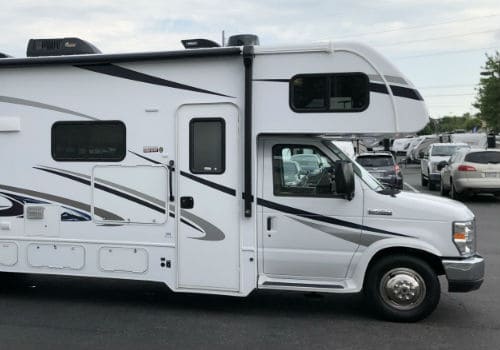
You may be tempted just to buy any trailer tires that catch your eye. With so many options available, it can be overwhelming to choose the best trailer tires. Purchasing the best trailer tires are definitely worth your investment. Here are the reasons why.
The Best Trailer Tires Are Reliable.
Not all trailer tires are of the same make and material. The best trailer tires in the market are reliable when it comes to their performance and specifications. When they say that they can handle extreme road and weather conditions, they truly can do. You can use them on different road terrains and on different weather. The best trailer tires are definitely dependable, whether you are using your trailer for a short trip, or a long cross-country trip. No matter the environmental conditions, the best trailer tires can take you to your destination safely.
These Tires Can Handle Abuse.
The best trailer tires are made from tough and solid high-quality materials. These tires can withstand heavy use and abuse, and still be able to perform at its optimum. Choose only the best trailer tires if your trailer has heavy usage, and is used for deliveries and transportation of cargo.
They Have a Good Load Range.
The best trailer tires have a wide and good load range, allowing them to carry heavier loads. Whether you are using your trailer for camping, or you are using it for cargo transport, your trailer tires need to be able to support your load requirement. These tires are designed and built with sturdy and durable materials so you can maximize their life span.
They Have Long Life Spans.
The best trailer tires are built and made to last. This means that with proper care and maintenance, your high-quality trailer tires will last you longer. These trailer tires are designed to be durable and carry heavy loads for a long time. Their tread will also last longer than similarly designed tires but are not intended for the same load.
The Best Trailer Tires Can Be Used for Many Types of Vehicles.
The best quality trailer tires are more flexible than others. They can be used for many types of trailer vehicles, such as cargo trailers, stock trailers, towable recreational vehicles , boat trailers, utility trailers, specialty trailers, and haulers. They can be used for many different purposes and applications. The heavy-duty construction of the best trailer tires allows them to take on many tasks efficiently.
These Tires Minimize Noise Generation When in Use.
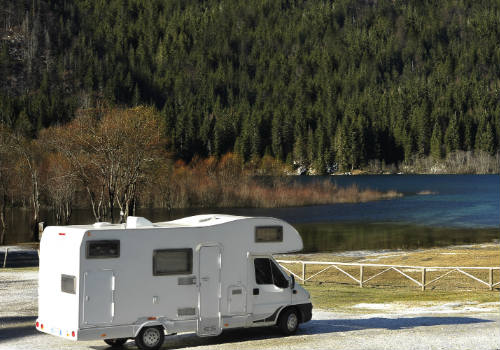
The best trailer tires are designed to generate less noise while on the road. The tread design of these wheels allows for a smooth, comfortable, and quiet ride. With the best trailer tires, you can say goodbye to the grating and scraping sound of your trailer tires on the road.
These Are Heat Resistant.
With the constant rubbing on road surfaces, it is vital that your trailer tires can withstand and dissipate heat properly. Some states are also warm for most of the year, so buying trailer tires made from special rubber compounds to withstand extreme heat is essential. Some trailer tires have extra weather and ozone protection that also protect your tires.
These Tires Help You Save on Fuel.
The best trailer tires can decrease rolling resistance. This just means that these trailer tires can reduce the resistance that results from the tires rolling on the surface. When this resistance is reduced, your truck will require lesser energy to run, enabling it to run more efficiently. What does this mean? These high-quality trailer tires actually help you save on your gas.
They’re Stable and Shock Absorbent.
The stability of your trailer tires will be more appreciated when you are on long road trips. The roads can be bumpy, but your ride does not need to be uncomfortable. The best trailer tires have a shock absorbing mechanism, which can make your trip less bumpy and smoother. This feature is not only crucial for your comfort, but also for your valuable and fragile cargo.
These Tires Have High Sidewall Strength.
The best trailer tires are built tough and are designed to handle maximum pressure. To be able to do this, your trailer tires must have high sidewall strength. A substandard trailer tire with low sidewall strength may ruin your trip when it folds under maximum pressure. The best trailer tires have higher ply ratings. Ply refers to the number of layers that make up your sidewall. The higher the ply rating of your trailer tire, the higher its sidewall strength.
This is extremely important if you plan to carry heavy loads over a long distance. Your trailer tires’ sidewall must be strong and stiff enough so it won’t bend to the weight and pressure of the load. A low sidewall strength can have your load squashing your tires, which may result in a dangerous blowout. You will not want your tires blowing out in the middle of nowhere. Even if you are lucky to escape a blowout, a low sidewall strength can mean shorter tire life. Heavy loads will take a toll on these low-quality trailer tires, weakening them, and significantly reducing their life span.
They Will Save You Money.
The best trailer tires come with a steeper cost than low-quality trailer tires. You may think that choosing cheaper tires can save you money. However, these low-quality tires are less durable and are not as tough. You may have to change them more often than you will have to with high-quality trailer tires. What’s worse, these substandard tires are more prone to blowouts. The hassle and the risk that these cheaper trailer tires bring is definitely not worth the initial money that you have saved.
Investing in the best trailer tires give you the peace of mind that your trailer and its cargo are in good hands. High-quality trailer tires are designed to carry heavier loads and over long distances. Their longer life span and durability will not have you changing your trailer tires frequently. You can save both time and money on good trailer tires, and be more efficient.
The tires reduce risk and ensure your safety on the road. The best trailer tires are built and designed to perform effectively and be dependable. Their strength and durability reduce the risk of blowouts on the road. Their stability despite heavy loads ensures that your trip is smooth and safer. They offer smooth traction on the road, allowing you to make safe turns and brakes easily. Invest in superior quality trailer tires that can improve your safety while you are on the road.
Frequently Asked Questions about Trailer Tires
What to look for in the best trailer tires.
If you are planning to buy new trailer tires for your camper trailer, you should consider several factors to get the best tires. Not all trailer tires are created equal, and you should be able to compare your choices.
Getting the best trailer tires not only gives you a comfortable ride but also ensures your safety. Quality trailer tires offer you consistency and performance, not just in its first year but for the long run. It also provides you longer mileage. A decent and smooth ride is essential, especially for very long trips. Invest in quality tires so you don’t have to suffer bumpy and uncomfortable rides.
Pressure Rating
Check the pressure rating of the trailer tires that you plan to buy. Not all tire brands and models have the same pressure rating. Check that it matches with the required pressure of your trailer.
The size of the tires that you choose for your trailer matters. A tire that is either too large or too small for your trailer is not safe. The size of your tires must match the specifications of your trailer. Look for tires that are fit for your trailer and will not compromise your safety.
Sidewall Strength
Choose trailer tires with excellent sidewall strength. Trailer tires with weak sidewall can compromise your safety when you are on the road.
Ply ratings indicate the load at which the trailer tire is designed for, at industry specified pressure. It can give you the load range that your trailer tires can support.
A tire that is easily deteriorated is not safe to drive with. Choose trailer tires that are known to last for a long time, and have higher mileage. This can save you time and money from replacing your tires frequently.
Easy to Mount
You will never know when you will need to change a tire. Pick a trailer tire that is easy to mount. Replacing and mounting tires should not be complicated. Tires that can be easily mounted require less installation time and less effort on your end.
Cooling System
Choose a trailer tire that has a functional and dependable cooling system. A tire that has a cooling system can reduce the risk of explosions and blowouts.
What Are the Types of Trailer Tires Available?
There are basically two types of trailer tires available. These are the radial tires and the bias tires. Radial trailer tires have plies that run perpendicularly across the tire and the belts. They have superior tread wear compared with bias tires and can last up to 40,000 miles of travel. They are more temperature resistant than bias tires and can stay cool even during long trips. This makes radial trailer tires suitable for high volume usage and long haul trips.
Bias trailer tires have plies that run at an angle of 30 degrees. They have steeper sidewalls compared to radial tires, which allows them to carry heavier loads. However, in terms of mileage, bias trailer tires are less superior to radial tires. Bias tires can only run up to 12,000 miles. Bias tires, however, are cheaper than radial tires, but can also perform well under moderate use.
How Long Will My Trailer Tires Last?
The average life of a travel trailer tire is 5 to 6 years. Some tires last longer, while some well-worn ones last for a shorter span. If used with proper care and regular maintenance, your tires should last you around at least 5 years. It is essential to give your trailer tires the attention they deserve because they take all the load in your camper trailer. It is necessary to replace them when it is time to, rather than wait for them to blow out on your next camping trip. Tire blowouts are especially dangerous and can result in deadly crashes.
When Should I Replace My Trailer Tires?
While the average life of trailer tires is 5 years, it is important to have it periodically checked by a professional. You cannot judge a trailer tire by merely looking at it. Cracks may develop, which can escape an untrained eye. Another way to keep track of a travel trailer tire’s life is based on its mileage. Travel trailer tires should be replaced after it is used for its specified maximum mileage (usually 8,000 to 12,000 miles). Whichever goes first, the mileage cap or the average lifespan, you should go and replace your tires. A professional can also give you dependable advice on when you should replace your trailer tires, based on your regular visits and check-ups.
How Much Do Trailer Tires Cost?
A new trailer tire usually will cost you around $60, up to $140. When buying a trailer tire, make sure that you buy from a reputable brand and dealer. It is best to buy the tire with the latest manufacturing date.
What Is the Correct Pressure for My Trailer Tires?
Maintaining the correct pressure for your trailer tires are very important. Underinflated tires can result in your trailer tires blowing out. The pressure that your trailer tires should maintain depends on the size and weight of your trailer. Trailers usually need their tires to have a pressure of 70 psi to 90 psi. Your trailer’s manual will indicate the pressure for its tires which you should follow. It is recommended to check the tire pressure before you head out for a long road trip.
Invest in High-Quality Trailer Tires
There are many trailer tires available in the market that you can choose from. However, these trailer tires are not created with the same specifications and ratings. It is important to get acquainted first with your trailer and to determine its specifications. Use only trailer tires that match the specifications required by your trailer. Deviating from these requirements increases your risk while on the road.
Next, determine the use of your trailer. How often and how far you intend to use your trailer can also influence your choice in the perfect trailer tires. The load you plan to carry in your trailer is also an important determining factor.
Making an informative choice is important. Make sure to do the necessary research so you can get the best value out of your money, without sacrificing your safety.
Share this post:
Related posts:.

How to Find Boondocking Spots: 6 Quick Tips

High Altitude Haven: Mountain Boondocking Safety Essentials

RV Safety: Navigating Tornado-Prone States and What to Do During a Tornado Warning
About the author:.

Charles Joseph is one of the original authors of Camper Smarts from when it first started.
1 thought on “Best Trailer Tires to Avoid Blowouts”
Trailer Kings are the worst, made-in-China tires for sale in the US. People buy them because they are cheap and you get what you pay for!
Leave a Comment Cancel reply
Welcome please follow these guidelines:.
- Be kind and respectful.
- Keep comments relevant to the article.
- Avoid insults, threats, profanity, and offensive remarks.
- Refrain from discussing gun rights, politics, or religion.
- Do not post misleading information, personal details, or spam.
We may hide or remove comments at our discretion.
I have read and accepted the Comment Guidelines and Privacy Policy *
Follow Camper Smarts:
- Follow Us On Facebook
- Follow Us On Twitter
- Follow Our Pins
8 Best Travel Trailer Tires. Tires for Towing a Travel Trailer or Camper
If you own a travel trailer, having the best travel trailer tires will ensure your trailer is secure and safe when you hit the road. Travel trailer tires are specially designed for use with trailers, so they have a particular tread pattern, ply rating and sidewall thickness that differs from standard car tires.
Travel trailer tires are also constructed from robust materials that are capable of withstanding the pressure they will be under as you haul your trailer. Unlike regular tires, trailer tires have a high load capacity; therefore, they can support your trailer without failing and putting yourself and other drivers at risk.
Clearly, it’s crucial that you choose the right tires travel trailer to ensure the safety of yourself and other road users. But, if you’re new to the world of trailer tires, navigating the range of options can be confusing.
If this sounds like you, don’t worry. In this guide, we have compiled a list of eight of the very best travel trailer tires on the market today, and included a useful buying guide to help you make the right choice.
Table of Contents
- 1.1 Carlisle Radial Trail HD Trailer Tire
- 1.2 Maxxis M8008 ST Radial Trailer Tire
- 1.3 Goodyear Unisteel G614 RST Radial Tire
- 1.4 Goodyear Endurance Radial Tire
- 1.5 Trailer King ST Radial Trailer Tire
- 1.6 eCustomRim Trailer Tire On Rim
- 1.7 Wheels Express Travel Trailer Tires
- 1.8 Grand Ride Trailer Tires
- 2 Compare the Best Travel Trailer Tires
- 3.2 Load Range/Load Rating and Max Weight
- 3.4 Intended Use and Cargo Weight
- 3.5 Durability, Longevity, and Sidewall Strength
- 3.6 Pressure Rating
- 3.7 Speed Rating
- 4.1 Radial Trailer Tires
- 4.2 Bias Trailer Tires
- 5 Top Travel Trailer Tires Video
- 6 Frequently Asked Questions about Travel Trailer Tires
- 7 Final Thoughts
Best Travel Trailer Tires
To save you hours of research, we have selected eight of the best travel trailer tires money can buy. We made sure to choose a variety of options with different load ranges – so there’s something to suit every setup.

Carlisle Radial Trail HD Trailer Tire

Buy from Amazon
First on our list is the Carlisle Radial Trail HD Trailer Tire . This high-quality model is specifically designed for use with travel trailers and fifth wheels. It has a 15-inch rim size and a unique tread pattern.
This improved tread pattern is designed to promote even wear across the tire over time, so you can expect reliable performance as the miles rack up. This ensures your tires last longer, remain stable, and don’t suffer from one overly-worn patch that puts you more at risk of a sudden failure on the road.
As well as this smart tread pattern, the Carlisle Radial Trail HD Trailer Tire has anti-weathering and UV protective properties that defend it from environmental damage all year around. It has also been tested to resist very high road temperatures, so you can drive your rig with confidence in the summer months.
Other great features include low rolling resistance to improve fuel economy, and an impressive 2150 pound load capacity. Thanks to their varied pitch pattern, these tires are quieter on the road than other models, too, so you can enjoy long-haul sections of your journey without an annoying whine in your ears.
With an “M” speed rating, these tires are capable of reaching up to 87mph, which is well in excess of not only the speed limit, but any speed you’re likely to reach while pulling a travel trailer. On the downside, some users have complained that these tires are a little difficult to fit – so if you’re inexperienced, you may have to pay someone else to do this for you.
All in all, the Carlisle Radial Trail HD Trailer Tire is an excellent choice of travel trailer tire for year-around travel. We like how the smart tread design promotes even wear, and the environmental protective properties ensure they can withstand tough conditions without weakening.
Maxxis M8008 ST Radial Trailer Tire

Another great choice of travel trailer tire is the Maxxis M8008 ST Radial . This model is very popular and also has an advanced tread for optimum performance and durability. This tire has a 15-inch rim size and a load capacity of 2830 pounds.
This durable tire boasts a double steel-belted design for strength and increased stability when towing. This feature should put your mind at rest if you’re pulling a large, heavy trailer on a long road trip. Many users have commented that due to these features, this tire is super reliable for extended journeys of 1,000s of miles.
Alongside this strength and stability, the Maxxis M8008 also has an advanced tread design that reduces wear and rolling resistance. This helps to improve your fuel economy and increases the overall life span of the tire, so you can get more use out of it before it requires replacing.
Another useful feature is its shock absorption qualities. If you hit the backroads and are likely to come across some bumpy routes, the integrated shock absorption is well worth having. Every time you hit a bump, the pressure in the tire momentarily increases which puts you at risk of blowouts. It’s not totally foolproof, but this feature allows you to drive over rough patches without gritting your teeth.
This model is one of the pricier options on our list, but considering its durability and reliability, we think it’s a worthwhile investment if you often head out for long-distance trips.
Goodyear Unisteel G614 RST Radial Tire

Coming from a well-known and popular manufacturer – our next pick for the best travel trailer tire is the Goodyear Unisteel G614 RST Radial Tire .
This tire has an established reputation and is easily capable of handling large trailer applications like fifth wheelers. It comes compatible with 16-inch rims and a 75mph speed rating.
Made from heavy-duty rubber, this hard-wearing tire also features a premium enhanced casing for additional toughness. The shallow tread has been specially designed to promote even wear patterns and reduce the running temperatures for increased durability. The shoulder ribs are solid and rounded to provide stability, as well as encourage even wear.
If you tend to hit the road in the summer months or don’t have a nice shaded space to park your trailer, you’ll also appreciate the UV protective qualities. Of course, you should still cover your tires during storage, but it’s good to know that they can handle summer road trips in strong sunshine and high temperatures.
This model provides a single max load of 3,750 pounds, or a dual load limit of 3,415 pounds – making it ideal for weighty applications. We also like that Goodyear offers a free replacement service within either 12 months or the first 2/32″ of treadwear, whatever comes first – another reason to trust the quality of their products.
This model is pretty expensive, but if you need a heavy-duty tire that can handle heavy loads, you can’t go wrong with this tire.
Goodyear Endurance Radial Tire

Another great pick from Goodyear is the Goodyear Endurance Radial Tire . This model fits a 14-inch rim size and has a lower load capacity of 1,700 pounds, so it’s better suited to lighter trailer loads.
The Goodyear Endurance Radial Tire is made from enhanced rubber compound materials for high-strength and durability. It includes a scuff guard to shield the edges of the tire wall from damage if you get too close to the curb, or brush against the undergrowth on narrow roads.
The fabric-steel design of this tire is incredibly rugged, which makes it a good option for long distance trips where the roads could be a little rough. Even though it has all these resilience features, it’s still fully compatible with standard tire inflation stations and pressure monitoring systems, so you shouldn’t have any trouble maintaining them during your journey.
Created for endurance, these tires are resistant to temperature increases and maintain a good, stable tracking when towing. The tread is designed to wear evenly as the miles pass by, so you won’t need to worry about the blowout risk from weak spots developing over time.
This tire may be a little awkward to install if you’re not used to doing it yourself. Thankfully, Goodyear offers a reasonably-priced professional install service, so you can take advantage of this to save yourself the hassle. These tires also come with Goodyear’s free replacement service if the tire fails within 12 months or the first 2/32″ of treadwear – providing peace of mind that you’re covered in the event something unexpected happens.
Trailer King ST Radial Trailer Tire

Next up we have the Trailer King ST Radial Trailer Tire . This durable model is a great choice for RV owners, thanks to its strength, resilience and range of safety features.
One key feature of this travel trailer tire is its center groove. This groove ensures consistent tracking and keeps your tires stable, so you can drive with added peace of mind that your tires are working to keep your setup balanced and secure. The groove also assists with grip in poor weather conditions, which is great if you take trips in your RV all year round.
This model has a load capacity of 2833 pounds, making it ideal for heavy applications. The nylon overlay construction adds extra strength that allows it to easily handle hefty loads without wearing quickly, so it’s a good choice for long distance trips when you’re hauling a lot of weight.
The Trailer King ST Radial Trailer Tire has a more than adequate, “M” speed rating of 81mph. The improved shoulder design also ensures better heat dissipation on the road, so the tread lasts longer while wearing evenly to avoid weak spots. We also appreciate the enhanced tread depth – which helps to reduce rolling resistance and avoid any troublesome heat build up from occurring in the first place.
These tires are great for long haul trips pulling heavy loads, but with constant use under this type of strain, some users found that they failed after a couple years. Considering the reasonable price, though, you’ll be hard-pressed to find an equally robust tire for less.
eCustomRim Trailer Tire On Rim

If you’re looking for highly-affordable, easy-install tires that come complete with rims, then this model is worth checking out. eCustomRim is a well-known name in the States, so you can have confidence in the quality of their products.
This tire has a 15-inch rim diameter, with a 5 Lug 4.5″ center and the 205/75D15 size is compatible with the majority of popular trailer brands – so you shouldn’t have any trouble getting it fitted.
Built for durability, this tire has a 6-ply construction – which puts it in the C category for load range. It has a maximum weight capacity of 1820 pounds per tire, which is suitable for most moderate loads.
If you’re heading out for long drives on the highway, the M speed rating of 81mph is plenty for the needs of RV’ers. It also has good resilience in poor weather conditions, so this tire should keep you stable in heavy rain or snowy roads. The 7.8/32″ tread depth offers good levels of grip and a decent lifespan with regular use.
Overall, these tires are an excellent pick for the price, especially as they come with rims included. They’re well made, fit most types of trailers and cope well in poor weather conditions. We also like that they come with a 5-year warranty, so you can rest-assured you’ll get a good lifespan out of them.
Wheels Express Travel Trailer Tires

Next up we have the Wheels Express Travel Trailer Bias Tire . This 14-inch model comes fully mounted on the rim and ready to fit – so it’s a great option if you’re looking for the full package.
Unlike radial tires, this bias tire has a much stiffer sidewall, which makes it an excellent choice if you’re planning on hitting the backroads where the surface can be a little bumpier. The higher level of rigidity also means this tire is good for stabilizing your trailer and reducing any potential sway that you may experience while towing.
If you often tow heavy applications, this tire is a great match. It has a load range rating of “C”, which means it is capable of supporting loads up to 1820 pounds per tire. It also has a 6 ply construction and is steel belted for better traction and reduced fuel consumption.
We particularly like how convenient this tire is to use. As it comes with a wheel and 4X5 5X4.5 lug pattern, you can go right ahead and install it as soon as you receive it. This saves a lot of time searching for compatible rims and fitting tires separately if you’re starting out with nothing. The price is very reasonable too.
On the downside, if you’re a heavy user pulling hefty loads, this tire may not last as long as other models. Some RV’ers have complained that the tread wore pretty low after a couple thousand miles – so you’ll have to decide if these tires’ qualities fit your intended usage.
Grand Ride Trailer Tires

Last but not least, we have the Grand Ride Trailer Tires . These trailer tires share many of the features we have seen in the other models on our list, but they come in a superb-value pack of four.
This radial tire provides fantastic grip and stability for your trailer to prevent swaying. It also has a max weight capacity of 2150 pounds at 65psi – making it a D-rated tire that’s suitable for heavier applications.
In addition to the reliable grip, this tire has a nylon overlay throughout the tread area, as well as the shoulder area, to protect it and reduce wear. The tire wall also has a special “scuff guard” to ward off damage from those occasional bumps against curbs and rocks.
We were a little disappointed to see that these tires only come with a one year warranty. However, Grand Ride says they have been selling these tires wholesale to trailer manufacturers all across the US, so that’s a good indication that they are of trusted quality.
If you’re looking to get a brand new set of four wheels, keep in mind that unlike the Wheels Express Tires, these don’t come with included rims, so you’ll have to buy them separately if required. That said, considering the price is for four tires, you’re still getting a great deal overall.
Compare the Best Travel Trailer Tires

Buyer’s Guide to Buying the Best Travel Trailer Tires
If you’re unsure which travel trailer tires are the best for your needs, read through our in-depth buying guide below. We explain everything you need to consider before making your purchase.
The best travel trailer tires aren’t cheap, and nor should they be. High-quality tires are crucial to your safety, so this isn’t a time to look for the absolute cheapest option you can find.
The average cost for a good-quality travel trailer tire is around $170. Some tires will cost more, others less, but this is a good benchmark of what you can expect to pay.
Tires from highly-respected brands that have higher load limits and enhanced safety/longevity features can cost twice as much, at around $300. Lesser-known brands that still offer great-quality tires may go for less, at around $80-$130 – although you may find yourself having to replace them more often.
If you have the budget and are planning to do some serious mileage, we recommend opting for the best travel trailer tires you can afford. The biggest brands also tend to offer the most generous warranties, so you can be confident that your tires will last.
Load Range/Load Rating and Max Weight
Before purchasing a trailer tire, it’s critical to check that it has the correct load range/rating to handle your setup. This figure is easy to find on the sidewall of the tire, and will tell you the maximum load that the tire can manage.
The most common load ranges for trailer tires will be categorized under these letters – B, C, D and E. Each letter corresponds to a maximum load range a tire can handle at the recommendation inflation pressure, measured in pounds.
If you had a single axle trailer with C load range tires (max load 1820lbs), you can haul a maximum load of 3640 pounds (2×1820).
However, if you have a double-axle trailer, you must reduce the max load rating by 12% and work on that figure. This means the maximum you could haul with a double-axle trailer would be 3204 pounds.
Clearly, it’s very important to check these figures and be aware exactly how much weight you’re towing before choosing tires for your travel trailer. Making the wrong choice could have dangerous consequences.
The best size travel trailer tire will depend on your trailer. The original tires that came with your trailer will have a size code on their sidewall, which consists of a combination of letters and numbers.
For example, the code “ST205/75R15” tells you a number of things.
First of all, the letters “ST” stand for “special trailer tire”, so you know that this tire is for use with trailers only.
“205” refers to the width of the tread in millimeters, while the following numbers, “75” tell you the height of the sidewall as a percentage of the tread width.
Last of all, the letter “R” means “radial tire” and the number “15” means that it’s made to fit a 15-inch rim.
Not all tires have a code as long as this, though. Smaller tires, (sub 12-inch models) usually have a shorter code. The first number will indicate the width of the tread, while the second number tells you the rim size.
Once you’ve got the hand of deciphering this code, finding the right size tires for your travel trailer will be a walk in the park.
Intended Use and Cargo Weight
Another key consideration before buying new travel trailer tires is your intended use. If you’re only planning to be pulling your small trailer a couple times a year, you’re going to need very different tires from someone hauling a heavy application every weekend.
The same is true when it comes to the routes you usually take. If you usually hit the highways, it’s best to choose a radial tire, as a bias tire is highly unlikely to last under these conditions. On the other hand, if you spend most of your time in the backcountry on bumpy roads, then a bias tire is a better choice. (We’ll explain more about different types of trailer tires later).
Aside from this, you’ll also need to think about the amount of weight you’re going to be hauling. Don’t forget that this is the total weight of your trailer, including everything inside it, too. To be extra safe, it’s best to opt for a set of tires that with a load limit that comfortably exceeds the weight of your rig.
Durability, Longevity, and Sidewall Strength
It should go without saying, but when hauling a trailer, you’re going to want to get a set of tires that have a good level of durability, a decent lifespan, and have high sidewall strength.
You simply don’t want to risk hauling a trailer with low quality tires. This is not only very dangerous for you, but for everyone else on the road too. The best way to ensure you’re getting a high-quality tire is to opt for well-respected brands who have been in the game for a long time and earned their reputation.
Double steel belted tires with additional shoulder scuff guards and nylon overlays are great for strength and durability. Longevity really depends on your usage level, but it’s better to choose a tire with enhanced tread patterns that promote even wear and reduce the risk of isolated weak spots occurring.
Pressure Rating
Tire pressure rating is another top consideration that shouldn’t be overlooked. The stability and safety of your trailer when towing is reliant on your tires being inflated to the correct level of pressure.
If you over-inflate your tires, this will reduce the contact area and result in faster wearing in the center of your tires. If you underinflate them, they’ll wear out more quickly on the shoulders, reduce your fuel economy and are more likely to puncture. As you can see, there’s no good results here – the only way to get the best performance from your tires is to ensure you inflate them to the right level.
You can find out the correct psi level for your trailer load on the side of the tire. This will tell you the required pressure level for the tire to support the load they are rated to. If you don’t inflate the tire to the psi that’s recommended, you cannot be confident that the tire will be able to support the weight capacity as stated.
If you’re changing your load and are unsure what pressure you should inflate your tires to – you can always call the manufacturer or a local tire dealer for advice.
Speed Rating
The speed rating tells you the max speed that a tire can maintain safely over time.
Most travel trailer tires will have a speed rating that is well above the speed you are likely to, (or should be!) reaching when pulling your trailer.
Speed rating is also displayed in a lettering code. A common speed rating you’re likely to come across is “M” – which correlates to 81mph, but you should always double check before buying.
Types of Travel Trailer Tires
There are two main types of travel trailer tire: Radial and Bias. In this section, we take a look at each type alongside their advantages and drawbacks.
Radial Trailer Tires
Radial trailer tires are the most expensive type. They have steel belts inside them that are positioned at a 90-degree angle from the centerline of the tread. This enables radial tires to grip the road better, offers good stability, flexibility and reduces tread wear over time.
These features allow radial tires to remain at cooler temperatures than bias tires. For this reason, radial tires are the better choice if you tend to go on long-haul trips and spend a lot of time on the highway.
The steel belt inside radial tires also means they are less likely to develop flat spots when you leave your trailer parked up for long periods – so they are a great option if you’re planning to store your RV away for the season or pitch up somewhere for an extended time.
Bias Trailer Tires
Bias trailer tires are cheaper, but they are also constructed differently from radial tires.
Bias tires are made with piles that are made with multiple rubber belt plies that are laid at 30-degree angles, overlapping each other. The sidewall is less flexible than radial tires, and as a result, they perform better in off-road environments, so they can be a good choice if you’re mostly out in the backcountry.
The more rigid sidewall of bias tires means that they are also capable of handling a higher load capacity than radial tires, but on the downside, they don’t have a very long lifespan.
Many bias tires fail at around 12,000 miles, so this makes them a less attractive option for travel trailer owners who do a lot of mileage.
Top Travel Trailer Tires Video
Frequently Asked Questions about Travel Trailer Tires
When it comes to travel trailer tires, there are numerous factors to consider to ensure a safe and enjoyable journey. From load capacity and size to tread pattern and durability, choosing the right tires for your travel trailer is essential. To help you navigate through the common queries and concerns surrounding travel trailer tires, we have compiled a list of frequently asked questions. Whether you’re a seasoned RV enthusiast or a first-time traveler, this FAQ section aims to provide clarity and guidance on selecting the best travel trailer tires for your needs. Read on to find answers to your burning questions and gain valuable insights into maintaining and optimizing the performance of your travel trailer tires.
Why are travel trailer tires important?
Travel trailer tires play a crucial role in ensuring a safe and comfortable travel experience. They provide stability, traction, and control while towing your trailer, and they are designed to withstand the unique demands of RV travel.
What are the key factors to consider when choosing travel trailer tires?
When selecting the best travel trailer tires, it’s important to consider factors such as tire size, load capacity, speed rating, tread pattern, durability, and weather performance. It’s also essential to ensure that the tires are suitable for your specific trailer weight and towing requirements.
How often should I replace my travel trailer tires?
The lifespan of travel trailer tires varies depending on factors such as tire quality, usage, and maintenance. As a general guideline, it is recommended to replace travel trailer tires every five to six years, regardless of the tread depth, to prevent potential safety risks.
Can I use regular passenger vehicle tires on my travel trailer?
It is not recommended to use regular passenger vehicle tires on a travel trailer. Travel trailer tires are specifically designed to handle the unique load and towing demands of an RV. They have reinforced sidewalls, stronger construction, and higher load-carrying capacities, which differ from those of regular passenger tires.
What is the proper way to maintain travel trailer tires?
Proper maintenance is essential to ensure the longevity and performance of travel trailer tires. Regularly inspect the tires for signs of wear, maintain proper inflation pressure, rotate the tires as recommended by the manufacturer, and store the trailer in a cool, dry place when not in use. Additionally, keep an eye on the tread depth and consider getting your tires balanced and aligned for optimal performance.
Are there specific tire brands that are recommended for travel trailers?
There are several reputable tire brands known for producing quality travel trailer tires, such as Goodyear, Michelin, BF Goodrich, Carlisle, and Maxxis, among others. However, the best tire brand for your travel trailer may depend on your specific needs, budget, and the type of RV you own.
How can I determine the appropriate tire size for my travel trailer?
To determine the correct tire size for your travel trailer, you can refer to the information provided by the trailer manufacturer, consult the owner’s manual, or check the existing tires on your RV. The tire size is typically indicated by a series of numbers and letters on the sidewall, such as “ST225/75R15,” where “ST” indicates a special trailer tire.
Can I replace just one tire, or should I replace all of them at the same time?
Ideally, it is recommended to replace all travel trailer tires at the same time. This helps maintain even tread wear, ensures balanced performance, and minimizes the risk of tire failure. However, if only one tire needs replacement due to damage or wear, it is essential to choose a tire with the same specifications as the existing ones to maintain proper load capacity and compatibility.
Are there any specific considerations for travel trailer tires in different weather conditions?
Travel trailer tires should be suitable for the weather conditions you expect to encounter during your travels. In colder climates, consider tires with a winter or all-season rating, as they provide better traction on icy or snowy roads. In hotter climates, choose tires that can handle high temperatures without compromising performance or durability.
Can I install the tires on my travel trailer myself, or should I have them professionally installed?
While it is possible to install travel trailer tires yourself, it is recommended to have them professionally installed to ensure proper mounting, balancing, and alignment. Professional tire installation can also help identify any underlying issues and provide expert advice on tire maintenance and care.
Remember, selecting the right travel trailer tires is essential for your safety and the overall performance of your RV. Consult with tire experts, read reviews, and consider your specific needs before making a decision.
Final Thoughts
Choosing the best travel trailer tire for your needs is not only crucial for the safety of yourself and other road users, it can also improve trailer stability and save you money in the long term.
The right option for you is dependent on your trailer, but if you haul a heavy load, then the Goodyear Unisteel G614 RST Radial Tire could be your best bet. This model is made from heavy-duty rubber that’s highly durable and has an impressive load range of 3,750 pounds per tire. The tread is specially designed to wear down evenly to prevent weak spots from occurring, and the shoulders are rounded to provide stability.
For more mid-range loads, then either the Maxxis M8008 ST Radial Trailer Tire or the Trailer King ST Radial Trailer Tire are worth a look. These models have load ratings of 2,830 pounds and 2,833 pounds respectively, offer great durability and an advanced tread design for optimum performance.
Alternatively, if you pull lighter loads, then the Goodyear Endurance Radial Tire could be right for you. This tire can handle 1,700 pounds, has a rugged fabric-steel design which is great for long distance trips, and has scuff guards to protect against accidental damage.
About The Author
Karan Riley

- Development History
- Camper Trailers
- Black Rhino
- Mini Camper Trailers
- Camper Granny Flats
- Certifcation

Travel Trailer Lifespan: Factors Affecting How Long They Last
Aug. 18, 2023
Travel trailers offer the freedom of the open road, allowing adventurers to explore new destinations while enjoying the comforts of home. But how long do travel trailers last? The answer depends on several factors, including build quality, maintenance, and usage. In this article, we delve into the key elements that affect the lifespan of a travel trailer and provide tips to help you maximize its longevity.
Factors Affecting Travel Trailer Lifespan
1. build quality and materials.
The construction and materials used in the travel trailer significantly influence its lifespan. High-quality materials , sturdy frame construction, and attention to detail during manufacturing contribute to a longer-lasting trailer. Investing in a well-built trailer can extend its longevity.
2. Maintenance and Care
Regular maintenance and proper care play a vital role in how long a travel trailer lasts. Routine tasks such as cleaning, inspecting seals, checking for water leaks, and addressing rust or corrosion can prevent minor issues from turning into major problems.
3. Usage Frequency
How often you use your travel trailer affects its lifespan. If you're a frequent traveler and subject the trailer to constant road trips and outdoor exposure, it may experience more wear and tear compared to occasional or seasonal usage.
4. Storage Conditions
Where you store your travel trailer during periods of non-use also matters. Storing it in a climate-controlled environment or under a protective cover can shield it from harsh weather conditions, UV rays, and moisture, thereby prolonging its lifespan.
5. Road Conditions and Travel Habits
The roads you travel on and your driving habits can impact the trailer's longevity. Rough roads, potholes, and sudden braking can subject the trailer to vibrations and stress that might affect its structural integrity over time.
6. Environmental Factors
Exposure to extreme weather conditions, including high temperatures, freezing temperatures, and humidity, can impact the trailer's components and materials. Properly sealing windows, doors, and seams can help mitigate the effects of weather.
7. Upgrades and Renovations
Upgrading or renovating your travel trailer with modern amenities, improved insulation, and structural enhancements can contribute to extending its lifespan by improving its overall functionality and comfort.
8. Brand and Model
The brand and model of the travel trailer can also play a role in how long it lasts. Reputable manufacturers with a history of producing durable and reliable trailers are more likely to produce units with a longer lifespan.
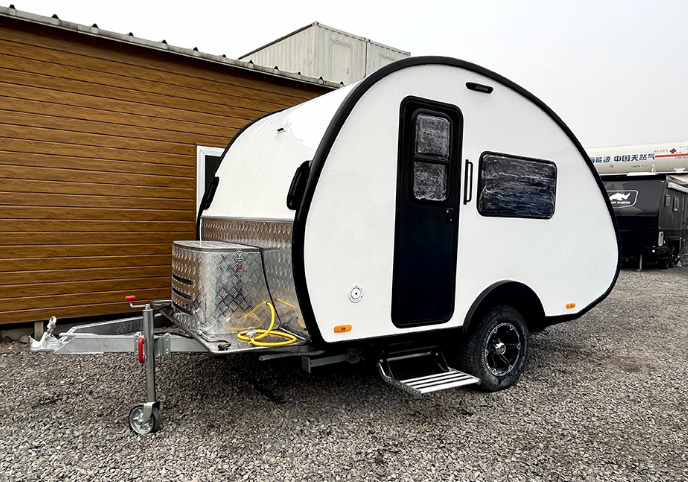
How Long Do Travel Trailers Typically Last?
On average, a well-maintained travel trailer can last anywhere from 10 to 20 years or more. This lifespan range considers various factors, including those mentioned above. Some trailers may exceed this range if they're meticulously cared for and used sparingly, while others might see a shorter lifespan due to neglect or extreme usage.
Tips to Extend the Lifespan of Your Travel Trailer
1. Regular Maintenance: Follow a consistent maintenance schedule, including cleaning, lubricating moving parts, inspecting seals, and checking for water leaks.
2. Address Repairs Promptly: Address any issues or needed repairs as soon as they arise to prevent minor problems from escalating into major ones.
3. Proper Storage : Store your travel trailer in a protected environment, such as a garage, covered storage facility, or under a purpose-built cover.
4. Check Seals: Regularly inspect and replace weather seals around windows, doors, and seams to prevent water intrusion.
5. Road Awareness: Drive cautiously, avoiding rough roads and sudden movements that could stress the trailer's structure.
6. Maintain Propane Systems: If your trailer has a propane system, ensure it's well-maintained to prevent leaks and malfunctions.
7. Protect Against Rust: Address rust or corrosion immediately to prevent it from spreading and compromising the trailer's structural integrity.
8. Professional Inspections: Schedule periodic professional inspections to catch any hidden issues and ensure everything is in proper working order.
9. Upgrades: Consider upgrading components that are prone to wear and tear, such as tires, suspension systems, and appliances.
10. Follow Manufacturer's Recommendations: Adhere to the manufacturer's guidelines for maintenance, service intervals, and recommended upgrades.
The lifespan of a travel trailer depends on several factors, including build quality, maintenance, usage, and environmental conditions. With proper care, attention to maintenance, and adherence to best practices, you can extend the longevity of your travel trailer and continue enjoying memorable journeys and experiences on the open road for many years to come.
If you want to know more information about travel trailer, please contact us. We will provide professional answers.
Explore [The Insider's Views]( https://www.fctrailers.com/contact-us/ ).
Previous: How to Winterize a Pop-Up Camper: A Comprehensive Guide
Next: Single vs. Dual Axle Travel Trailer - Which is better for you?
HOT PRODUCTS
Leave a Message

This post may contain affiliate links or mention our own products, please check out our disclosure policy .
What is the Life Expectancy of a Travel Trailer?
Published on May 22nd, 2024 by Chelsea Gonzales This post was updated on June 4th, 2024
Maybe you’re the proud new owner of a travel trailer, or perhaps you’re searching for a used one and unsure of how old you should go. Whatever the case, you’re here today because you’re wondering what the life expectancy of a travel trailer might be. In this article, you will find out.
The Average Travel Trailer Lifespan
If you believe everything you read on the internet, the average life expectancy of a travel trailer is only about 10 years. This might be the case if the trailer is not maintained well or it is left to sit in storage for months on end. But this is not what my family and I have experienced.
At this point, my family has owned three different travel trailers.
DON’T MISS OUT ON RV LIVING UPDATES
Sign up for the newsletter today.
Please enter a valid email address.
An error occurred. Please try again later.

Thank you for subscribing to the RV Living newsletter, keep your eye on your inbox for updates.
One was 10 years old when we bought it and 14 years old when we sold it in good condition. The next was about 8 years old when we bought it and 10 years old when we sold it. That camper was perfectly usable right up until the day we sent it off with its new family.
Our current trailer is over 10 years old. Sure, it has some flaws. But it is far from the end of its life expectancy.
All of this is to say that, while the average life expectancy of a travel trailer might be around 10 years, a trailer that is taken care of can last far longer than that.
I know. We’ve seen trailers upwards of 30 years old that are still out on the road!
Top Factors that Impact a Trailer’s Life Expectancy
So what is it that determines the lifespan of a travel trailer? There are many factors that come into play. Each of these should be considered when shopping for a used RV or using a trailer you already own.
When and How it was Made
Obviously, a well-constructed trailer is going to last longer than something that was hastily thrown together. Unfortunately, many RVers believe that the majority of “ Covid Campers ” manufactured between 2021 and 2023 are likely to fall into the second camp. Do your research about the model you want. Talk to other RVers in Discussion Forums for owners of the model that you are considering.
Generally speaking, yes. Given the supply chain shortages, suppliers going out of business, and the difficulty getting employees, the RV industry along with most others did suffer. Now, the situation will slowly come back, but it will take time. Now more than ever, a very thorough PDI is very important to identify any deficiencies, and get them addressed immediately, before signing for it and leaving the dealership. @JFlightRisk, Pre-Pandemic vs. Post-Pandemic Quality , Jayco Owners Forum
How Often it is Used
An RV that was lived in will be well worn, but there’s a good chance the owners knew a thing or two about RVs and took good care of it. Meanwhile, a trailer that was left to sit out in the elements with little to no attention is likely to have water damage and/or damage from pests.
The ideal scenario would be finding a rig that was used often but not full time, and was well maintained all that time.
Where it is Driven
An RV that was taken on lots of boondocking trips, driven down rutted-out roads, or taken through rocky terrain will have a lot more wear and tear on the suspension than an RV that was driven on smooth highways. Before you buy a trailer, find out where it has been. If you own a trailer currently, weigh the pros and cons of driving it on rough terrain.
How Many People are Using it
A trailer that is used by one person does a lot less work than a trailer that is used by a family of 8. If you have a large family, know that your trailer is likely to become worn out sooner. If you’re buying a trailer from a large family, look for signs of wear and tear and determine whether or not any damage you find is fixable before you buy.
How it is Maintained
Maintenance is the number one factor that comes into play when it comes to the lifespan of a travel trailer. A rig that is well-maintained will undoubtedly last years longer than one that is neglected. Keep this in mind while RV shopping and after buying.
How to Choose a Long Lasting Trailer

Besides the above factors, it’s also good to look for particular types of trailers in order to ensure longevity. Here are the trailers that tend to last longest.
Look for an Aluminum Frame
Wooden frames can fall victim to water damage and wood rot. Aluminum frames can stand up to leaks, meaning even if you have a wall that is damaged by water, it will be possible to replace the wall without needing to rebuild the frame.
Go with an Airstream
Airstream trailers are famous for their solid build. They are nearly leak-proof and we’ve seen Airstream trailers from the 1980s that are still doing just fine!
Consider a Fiberglass “Egg” Trailer
Fiberglass “egg” trailers such as Bigfoot, Scamp and Oliver trailers also tend to last a long time. They have fewer seams, so are less susceptible to leaks — and since water damage is what does a trailer in the vast majority of the time, these trailers have a very long life expectancy.
Pay for Quality
Even if you don’t choose an Airstream or a Casita, picking a high-quality trailer with a reputation for being built with care will help ensure it lasts as long as possible.
How to Extend the Lifespan of Your Trailer
Hoping to extend the lifespan of your travel trailer? As mentioned above, the most important thing you can do to extend the life of your travel trailer is stay on top of maintenance. This includes doing all of the following tasks.
Reseal Regularly
Reseal the roof, reseal the side seams, and reseal the windows and bay doors. Do this regularly, checking the seams at least every six months. By staying on top of the seams and keeping everything sealed up tight, you’ll prevent leaks that would cause serious damage and shorten the life expectancy of your trailer.
Replace Broken Parts Quickly
One broken part can quickly lead to another issue. For instance, a broken skylight lets rain into the camper, and a broken light switch could be caused by electrical issues that could lead to a fire or more broken electronics. When you come across a broken part, fix it right away before it becomes a bigger issue.
Take Care of Your Tires
Worn-out tires lead to blowouts, and a blowout on a travel trailer can mean serious damage to the undercarriage. Stay on top of tire maintenance , making sure the tires have the right amount of air. Replace them as soon as they show signs of wear in order to avoid blowouts.
Cover when Storing
The sun will cause serious fading and can even cause the skylights on your rig to crack. Meanwhile, rain causes water damage and hail can cause damage to both the roof and siding of your rig. To avoid damage from the elements, find a covered spot to store your RV. Try to avoid taking the rig out in severe weather.
Always Winterize
Always, always winterize your RV water system before the first freeze of the winter hits. This will protect your water system from damage. It might even save you the headache that comes with dealing with a leak, and the inevitable water damage from the leak.
Keep Pests Away
Mice and other pests can cause damage to RV electronics, plumbing, ductwork, and more. If you see droppings, take measures to get rid of pests right away . It’s also a good idea to try to prevent pests entirely with repellents.
The average life expectancy of a travel trailer might only be 10 years. But that doesn’t mean your trailer will only last that long.
Put in the extra effort described above. You’ll likely be rewarded with 15, 20, or even 30 years of happy camping in your home-on-wheels.
If you enjoyed this post Please Share:
Related posts:.
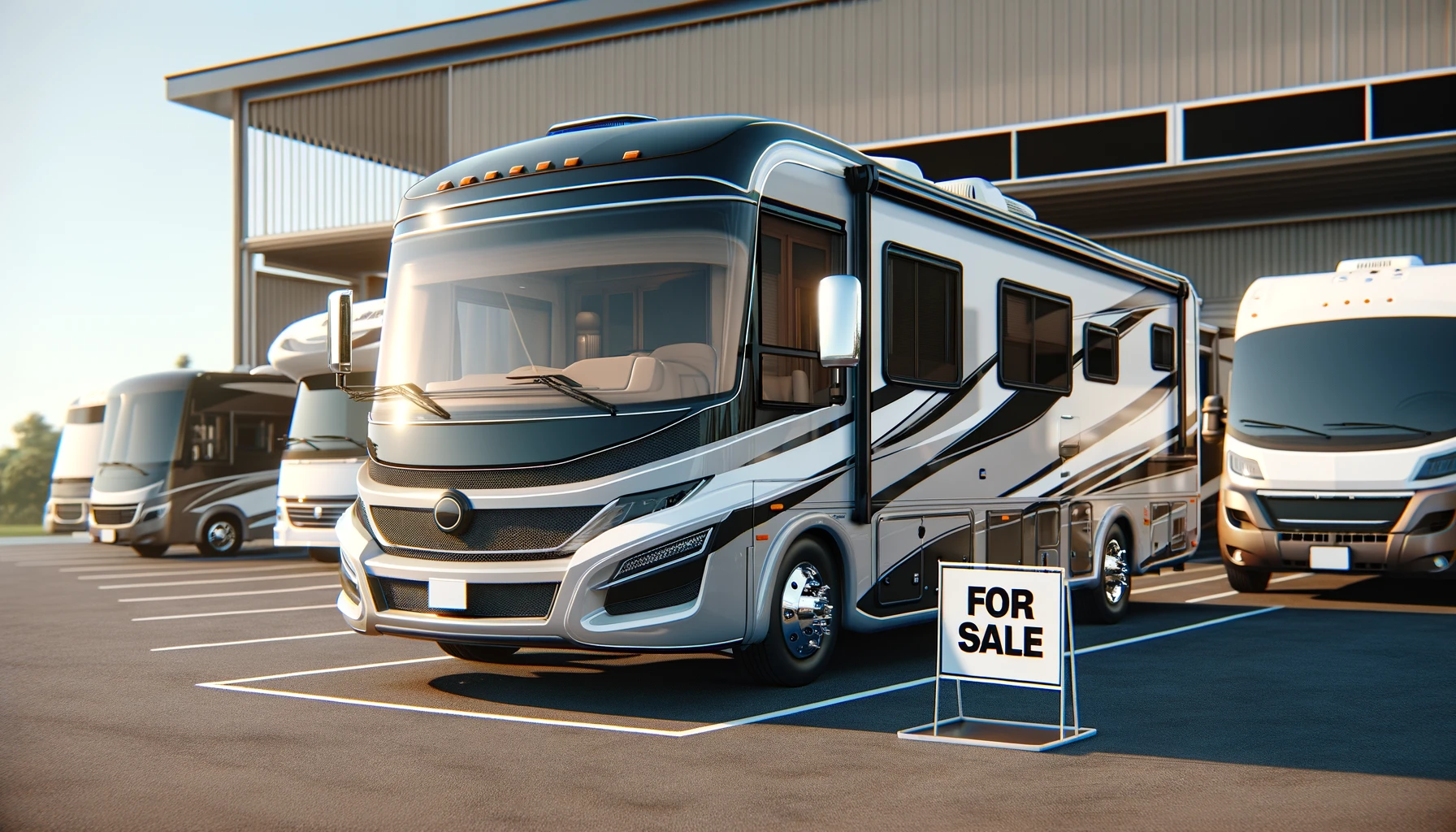
How to Save Money Buying a New RV: Tips from an RV Industry Pro
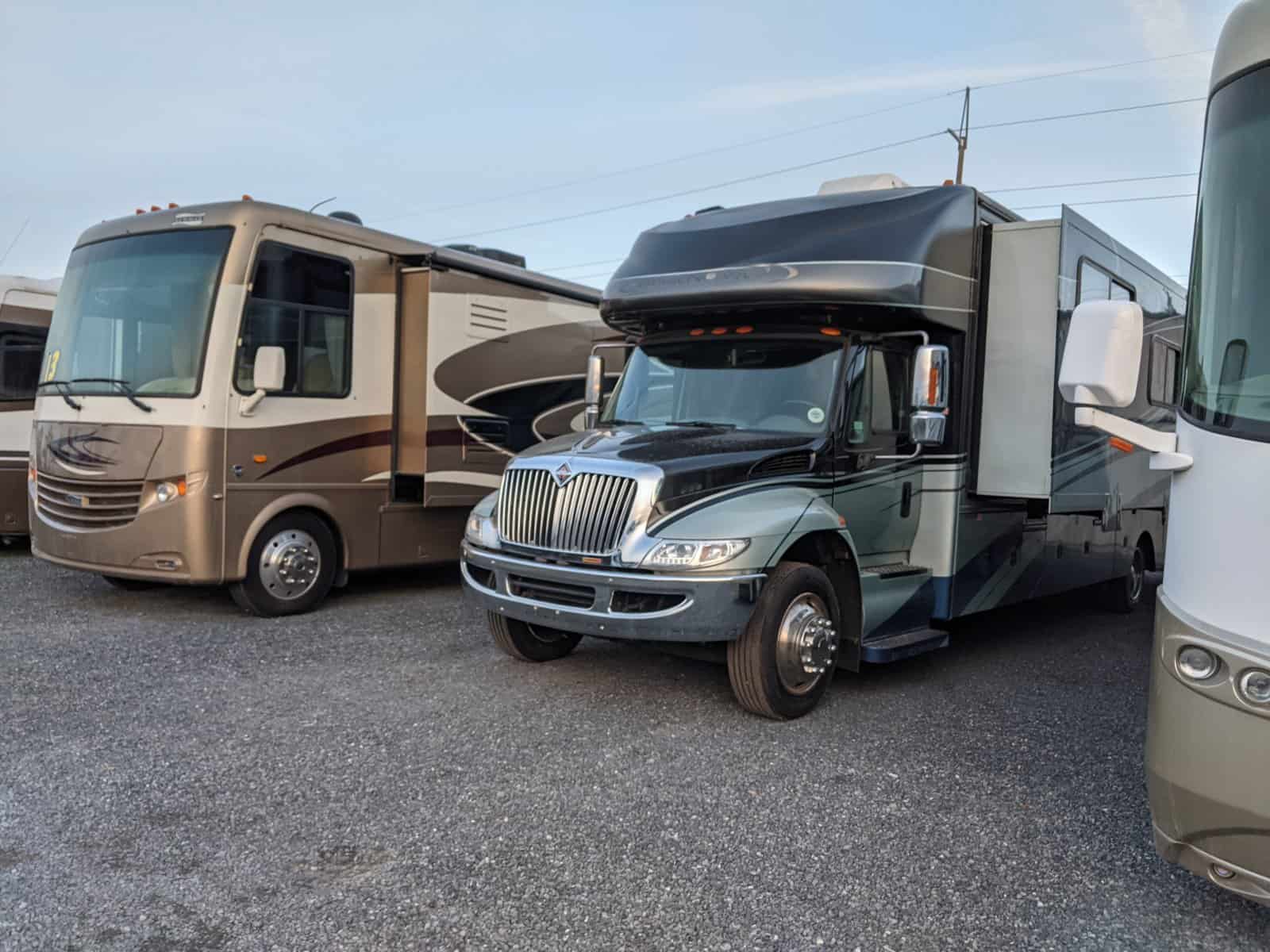
Basic Guide to RV Loan Financing
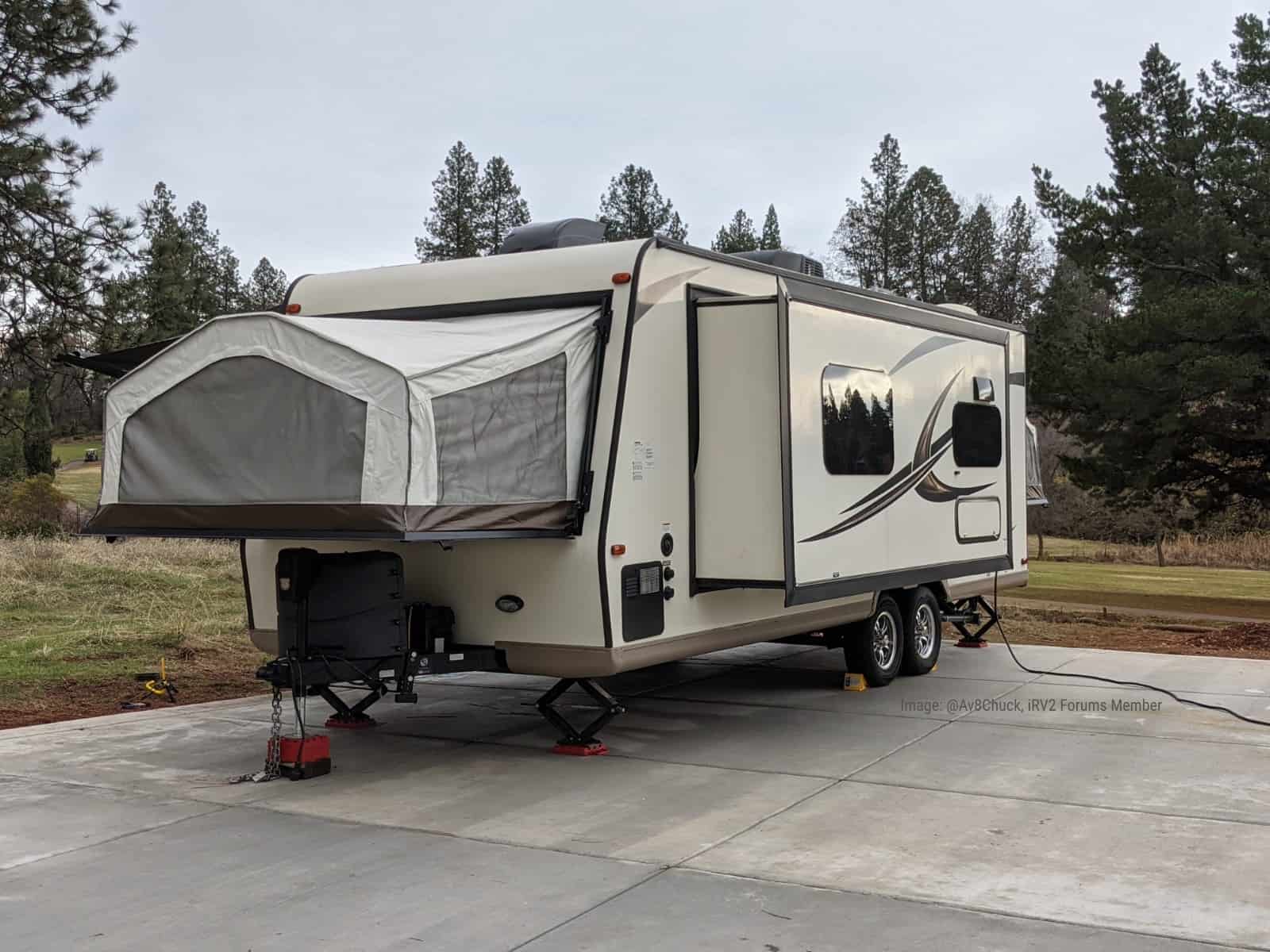
Expandable Travel Trailers: Why Hybrid Travel Trailers a Great Choice
About the author:.

Chelsea Gonzales is a full-time RVer, freelance writer, and roadschooling mama who loves sharing her expertise about RVing with kids, roadschooling, and full-time RVing. The entrepreneurial and free-spirited author is also artistic director of the Aistear Mobile Irish Dance Academy, and currently travels with her family in a 27-foot travel trailer. Chelsea’s informational articles about full-time RVing, raising children on the road, camping, and destination features appear on her blog, Wonder Wherever We Wander . throughout the RV LIFE network , and in RV industry media outlets such as Outdoorsy , Coach-Net , and RV Share .

How long does a travel trailer last

- BEGINNERS GUIDE
G. Yoganand
Understanding travel trailer life expectancy is important because it costs thousands of dollars. The more money you put in buying something the more time you want it to run for you.
And, Its normal to have such expectations. Travel trailers costs you significant amount, and they do not disappoint on the age up to which they last.
There are people who have been using their 25 year old travel trailer without having a second thought of buying a new one. But, not all are that lucky.
Lets decode the travel trailer life and understand the factors that determine the average life of a travel trailer.
Average life of a travel trailer
To be honest, there is no single that applies to all. Quite a lot of factors decide on the average life of a travel trailer.
There are human factors and that are not predictable. It totally depends upon how you use the travel trailer, what was the original design of the travel trailer and many other factors. Lets figure out average lifespan of a travel trailer.
Most travel trailers last between 12 to 15 years; however, it is not uncommon for people to use them up to 2 decades and even more. Some high quality brands like Airstream remain usable for 40 years and beyond. Built quality, material used and how well they are maintained, directly affects their life.
For finding an answer in somewhat ideal and good conditions; lets assume you have been doing regular maintenance of the travel trailer, and the manufacturing of the trailer was good enough (like for example you had a travel trailer by Airstream or a similar other better manufactured brand) then the life of the travel trailer on an average should be 12-15 years minimum. It is quite normal to see people using their travel trailers even after 15-20 years from when they bought it brand new.
Obviously, to use it for so long, the travel trailer would need extensive maintenance and proper storage. Maintaining the travel trailer is a key in extended life.
A lot of people buy travel trailer for their full time RVing journey because they are less costly as compared to motorhomes and fifth wheels. Here are some of the top travel trailers for full time living .
One thing that defines the life of travel trailer is the roof, even a good trailer may have leakage within like 10 year or earlier. And thus replacing, repairing roof is needed .
With years passing, mostly the roof starts to leak and eventually you may have to replace the roof itself. Even with great care the roof may not last beyond 15 years. But, even with an average life of more than 10 years its fully worthy it.
A travel trailer where in you maintain the roofs properly and then replace them timely may mean you end up using the travel trailer even beyond 20 years up to 25 years . Also, obviously a old travel trailer will start showing wear and tear on the exteriors and also the engine may not remain in good conditions.
How many years does the camper roof last
One of the deciding factors in travel trailers life is its roof. A good roof will extend the life of your trailer. The roof conditions determines how long the travel trailer will last.
The roof is more prone to damage, leaks and a good care is needed to keep it going for years. An ideal maintenance should be every six months or at least once a year.
Even with good manufacturing, a travel trailers roof may need replacing after 12-15 years. Roofs may start to leak before 10 years which will need proper fixing.
A neglected roof may mean replacing is needed much earlier though. Water is the biggest enemy of your roof and you need to be very quick in identifying such leaks and get them fixed. A delay will worsen the problem and will lead to permanent damage.
What causes the travel trailer roof damage
A travel trailer roof would come with a warranty of around 10-15 years and it may last so long unless you end up doing things that aren’t good for your trailers roof. Cleaning a rv roof can be good, but over doing it may turn ugly for the roof.
Scrubbing too much, and cleaning with the help of chemicals that are harmful will damage the roofs coating. The white protective coating keeps the roof safe from UV rays may get worn out.
This normally starts to happen once the roof is more than 10 years old, but may also happen earlier if you use chemicals for cleaning or clean the rv roof too much.
How to protect the Travel trailer roof
Periodic maintenance will keep the roof protected. An early water leak detection can help a lot. Caulking the leaks in rv roof will keep the roof safe from water and increase the life of travel trailer. Here is you complete guide for protecting a RV roof , do check it out.
A best thing to do is doing period checks and applying the caulks . Use liquid coatings to put on new shine to your trailer roof. The roof becomes thin overtime and looses it strength.
The white coating that protects from UV rays goes away and a black inside is exposed. A liquid coating will give the roof strength and increase the life span of travel trailer roof.
Rv roof patch is also an option just in case you happen to figure out the leaks while on travel. Its a patch that can be applied on the leakage to prevent further damage and water flow. Using RV covers is also a good option to keep the roof protected when the travel trailer is parked or stored.
What to use to seal off the travel trailer roof
Different things are used for sealing travel trailer roof cracks and breaks. People tend to use household things to repair the breaks and try to seal them off.
Sealing the cracks can be useful to prevent further breakage and increase the life of roof. People use anything that comes cheap and try to carry on with the roof as long as possible.
But, there are good ways to seal off the breaks. Ways that are more effective and better. Also not all travel trailer roofs are same and you need to be careful before using any kind of sealants.
Such sealants can be helpful and repair cracks , damages but there is no specific period for which they will be effective. Thus take proper professional advice for repairing.
Such sealant also don’t cost much, thus you can always try and see if it works for your RV roof. Do check price of this Decor RV roof sealant on amazon.
What kind of roofs are best for travel trailers
Life of roof is almost directly proportional to the life span of travel trailer. Thus, understanding the roof construction, type and material can help understand and extend the life of your travel trailer. There are 3 different types of travel trailer roofs that you would normally find.
Aluminum or metal roofs:
A trailer roof can be made up of aluminium. Aluminum puts weight on the trailer and thus this is less often used in making roofs of trailers. This however has an advantage that it need lesser maintenance.
Fiberglass:
This also need less maintenance, however they are more costly and can also put on weight on the travel trailer. This too are not much used. These kind of roofs are more smooth and hard. Also they become slippery with water and thus, special care needed to be taken while climbing up on the roof. They may need protection from oxidizing too.
Unlike the other two types of roofs, the rubber type are light weight and are perfect fit for travel trailers. They are also less costly and thus are mostly used in building roofs of travel trailers.
Mostly, the rubber types are used in building the roofs is EPDM or Ethylene Propylene-Diene Monomer. The rubber roofs are soft and mostly white in color. Rubber roofs start to become chalky as they start to age.
Understanding the roof type material is important because it will help in identifying the kind of maintenance is needed. How often the maintenance is needed . It will also help in identifying the type of maintenance tools are needed. Both, fiber glass and aluminum type of roofs are not much used these days.
Aluminum vs fiberglass travel trailers
One would see both the types available for sale at dealers. Decision on the selection, thus could be confusing.
Most travel trailers would be built in similar fashion with a blueprint that is almost similar.
Fiberglass construction has had advances and the overall designs have improved much in comparison to traditional makes.
The compactness, weight reduction has been great in recent years. Fiberglass is definitely the future although you would still continue to see aluminum ones probably due to the prices. The demand for travel trailers has also been a factor why the construction has seen such tremendous upshift.
Pros and cons of fiberglass and aluminum travel trailer
Lets start with a conclusion. Fiberglass it is. Fiberglass built travel trailers are better and clear winners here. You name a factor and they stand tall, ahead of their counterpart aluminum.
Fiberglass are more durable, they tend to better in terms of cleanliness. Its easy to clean them, aluminum on the other catch up dirt easily. Aluminum travel trailers tend to be more on weight also fiberglass travel trailers are designed better for aerodynamics.
These two factors mean one thing, fiberglass travel trailers are better in mileage. Aluminum are hard ones and during accidents they can in fact be good for your travel trailer condition.
The layer construction of aluminum puts them in better insulation. This can be good during harsh cold weather conditions. Fiberglass travel trailers also have less wind resistance which makes them do good in terms of mileage. Mostly fiberglass is used to reduce the weight of the travel trailer which aluminum cannot do.
Aluminum travel trailers are cheaper in comparison to fiberglass and a new buyer may tend to go for this type of built. However buyer need to consider about running costs and thus making the right decision at this point of time very important.
Running costs of aluminum tend to be more and with less mileage you their overall cost could actual catch up with fiberglass in long term. The resale value of fiberglass is much better than aluminum.
Aluminum can be hard to maintain also dents, dirt catchiness makes them loose their value faster than fiberglass.
Even though we did conclude in the beginning that fiberglass are clear winner, there are still many in fact almost half of them who would buy aluminum travel trailers. And that’s not surprise, aluminum does have its own pros.
While it can be confusing which one to go for, the best way to decide is by listing out your priorities and map them with the above pros and cons both fiberglass and aluminum travel trailers offer. That’s the best way.
Some brands that manufacture fiberglass travel trailers and RVs
- Casita : They have been building fiberglass trailers for more than 30 years.
- Bigfoot : They are into fiberglass travel manufacturing ad also build truck campers.
- EggCamper : They are a funny name company. The name probably because of the shape of campers they produce. They are known for manufacturing ultralight weight campers.
- Escape : One of the popular and bigger names in the fiberglass travel manufacturing industry. They have handful of travel trailers under their banner. They are a British based travel trailer manufacturers.
- Nest Caravans : They have been into fiberglass travel trailer manufacturing for some years, newer in comparison to the other listed above. But are promising and have some light weight travel trailers to their name.
- Scamp : They produce fiberglass travel trailers that are easy to use and manufactures considering the end user. They have some of the best designed travel trailers that good in aerodynamics and weight.
Other common issues with travel trailers
A travel trailer may loose its life not only if its roof starts to die but also due to other things like going out of use or dying out. Most of things just like roofs can however be replaced or repaired.
But, then again there is a limit as to how many times or how often you want to do that. At times replacing the whole trailer can be a good option (Specially after you used the RV more than 15 years or so).
Travel trailer tires are one such things that need replacements mostly in 4-5 years. Some of the other things that may need replacements in trailer are bathroom, kitchen set up, flooring.
Travel trailer batteries go out of order on an average almost every 4-5 years (if used with good maintenance). But most of the things or appliances can be maintained or the replaced as needed. However the most important thing is the roof.
Most of the other problems like dc batteries issues in travel trailers or travel trailer tire issues can be mostly handled by good maintenance and care. Understanding the travel trailer tire life and doing sufficient to makes sure the tires are replaced on time can help a lot.
What are some of the good and most reliable travel trailer manufacturers
Travel trailer life depends on its manufacturing quality. You will find many brands that builds and sell travel trailers thus understanding them and buying the best make will definitely put you in good spot as far as trailers life and maintenance is concerned.
A lot of brands manufacture trailer and many of them have been making advances in making them strong and as light as possible at the same time.
The prices have also gone up. Here are some of the popular brands that manufacture travel trailers and have good reputation of manufacturing. These are the long lasting travel trailers you can own. These are in no particular order and not all of them have been listed.
They of history of building travel trailers for more than 80 years. Airstream produce some of the luxurious travel trailers that pack in many things in those compact and light travel trailers. This manufacturer produces quality products that are definitely’ worth the buy.
Airstream is one of the long lasting travel trailers that can be used for more than 40 years and even beyond. Their solid build quality makes this possible.
Forest River
Operating for more than 15 years, these travel trailer manufacturer also produces fifth wheels, pop up campers and other types of Rv’s. They manufacturer some of the ultra light travel trailers that have electric awnings, stainless steel appliances etc.
This company is in business for more than 45 years and have been producing innovative travel trailers. Some of the models include Melbourne, Greyhawk, Seneca and Redhawk.
Coachmen RV
This is a division of forest river manufacturer itself. It is headquartered in Middlebury, Indiana. It also manufacturer other types of RV’s
This subsidiary of Thor has been building some of the best travel trailers.
Grand Design
They manufacture best in quality travel trailers. Grand design was formed after breaking from keystone.
What should you do to enhance the travel trailer life? Below things can make your RV last a lot longer. You can beat the average lifespan of RV by doing these little things.
- Regular maintenance as per schedule
- Should you cover the travel trailer? Yes, if you don’t have indoor storage or shade then do use RV cover.
- Winterize the travel trailer before winter
- Protect roof, floor and walls. Repair them and reseal the caulks .
Do, check all the travel trailer do’s and dont’s.
Travel trailer life can be increase by taking sufficient care, doing scheduled maintenance. Life of a travel depends a lot on the roof condition. Thus, give more attention to its well being. Buying a good quality travel trailer should be first priority though. A well maintained travel trailer will become your companion for many years; if not for life long. Do let us know your experience in using travel trailer in comments section.
You Might Also Like

Average cost of Travel trailer, Class C RV and Class A RV

Can You Camp in a Ford Transit Van?

How to sell an old RV or Camper
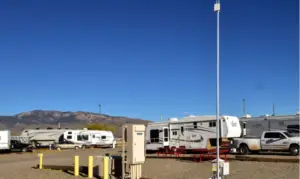
15 Things to consider before buying a motorhome or RV
How Long Do Motorcycle Tires Last And How Often Should They Be Replaced?

When it comes to safety and performance, tires are arguably the most important part of a motorcycle. That's why every rider needs a general sense of how long they last. Skidding and a loss of traction are just two of the things that can go wrong when your bike's tires are worn down, putting you and others at risk. You won't wake up one day to bald tires. Instead, it's a process that happens slowly, with the rubber tread wearing down little by little every time you go out for a ride. How fast your tires wear out will depend a lot on your riding habits, upkeep, road conditions, and how long the manufacturer designed them to last.
Given all of these variables, there's no hard and fast rule for predicting how long all motorcycle tires will last, although the typical lifespan ranges from 3,000 to 15,000 miles. That's a pretty significant range and doesn't do much to help the average rider predict how long they can go without changing their tires. Along with knowing the ranking of every major motorcycle tire brand , it's important to regularly check your tires for wear and tear and pay attention to warning signs that they're reaching the end of their life.
Motorcycle tire life expectancy depends on key factors
Riding conditions and the type of tires you purchase, among other things, will influence their longevity. For example, sports tires tend to wear out faster than touring tires because they're designed for high-performance and aggressive driving. They last about 2,500 miles under average usage. On the other hand, sport-touring tires are built for longevity and longer distances. They can last up to 10,000 miles in some cases.
Time's also a factor. Even if your tires haven't reached their mileage limit, you should replace them every five to six years. Although your tires may appear fine and still have treads, oxidation can cause the rubber compounds to dry out, having a negative impact on their safety and performance. If you don't know how old your tires are, you can find the manufacturing date stamped on the tire's sidewall. This number on your tire is a four-digit date code that indicates the week and year of production, such as "3419" for the 34th week of 2019.
Factors affecting tire lifespan
Certain riding conditions can speed up the wear and tear on your tires. If you mainly use your bike for urban riding, the frequent stops and starts, along with rough road surfaces, might speed up the aging of your tires. If you spend most of your time on highways with smoother surfaces, your tires should experience more even wear and last longer. The climate where you ride can also have a big impact, with hot weather causing tires to wear out faster due to increased oxidation and softer rubber. The opposite occurs in colder climates. The cold hardens the rubber and reduces traction.
If you live in a rainy climate, you'll want to get the tread depth of your tires checked more often to ensure they're channeling water away effectively to prevent hydroplaning. Ultimately, how long your tires will last within the general ranges depends overwhelmingly on a few key factors: mileage, age, and riding conditions.
Signs it's time to replace your motorcycle tires
Checking your tires regularly for wear and tear will help you notice the signs it's time to replace them. Your first clue will be your tire's tread depth. If it gets too low, your tires will be at an increased risk for flats and blowouts and most likely won't be able to grip the road properly. Once the tread depth goes below the legal minimum, which is 2/32 in most states, you'll need to replace them. You can use a tread depth gauge or this age-old trick called the penny test to measure your tire's tread depth.
Besides the tread depth, physical damage like cracks, bulges, and punctures are all signs that it may be time to change your tires. Just because a crack appears to be minor doesn't mean you should ignore it. Even minor cracks can be a sign that your tire's rubber is wearing out, and that could lead to sudden tire failure in some cases. While you might be able to plug a puncture to the tire tread, sidewall punctures are another matter entirely. If you discover a puncture in this section of your tire, you'll need to replace the tire immediately. If you notice uneven wear, that's also a good indicator you need to replace your tires.

15 Notorious Tire Brands to Avoid in 2024
Posted: June 3, 2024 | Last updated: June 3, 2024

Research has shown that the number of car accidents caused by tire issues is alarming. Faulty tires cause approximately 11,000 car accidents annually in the United States. This list discusses 15 tire manufacturers with a notorious reputation for producing unsafe and inferior tires.
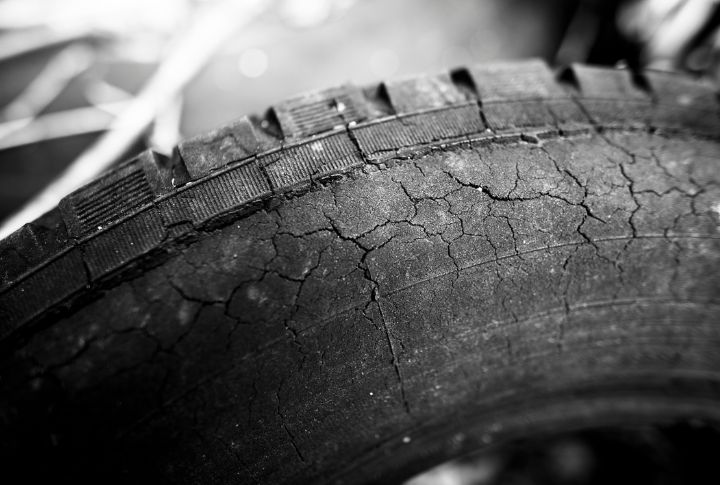
Choosing low-budget tire brands may seem attractive due to the initial cost savings they offer. Yet, opting for brands such as Westlake Tires may not be prudent. Their products lack longevity, requiring replacement after just 20,000 miles—half the lifespan of standard tires. Additionally, there are concerns about traction loss at speeds exceeding 60 mph, potentially jeopardizing safety.
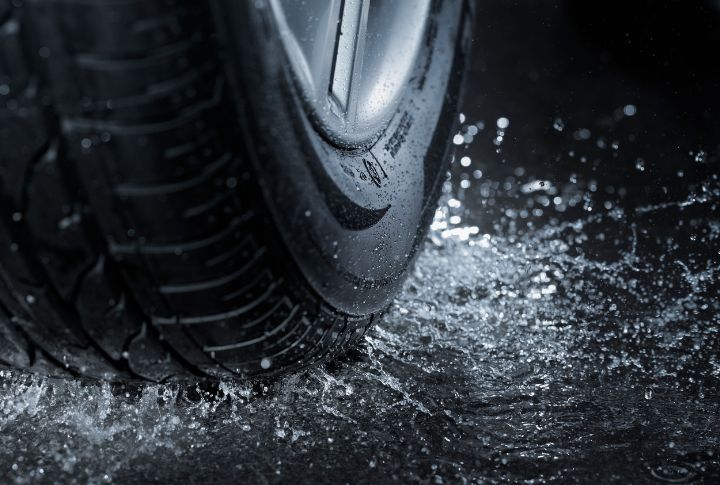
Goodride Tires ranks as one of the more affordable options in today’s market. While some reviews commend their value, the consensus leans towards mediocrity. Handling, traction, and ride comfort fall short of expectations for the average driver. Also, most owners navigating wet or snowy conditions have similar traction complaints about the product.
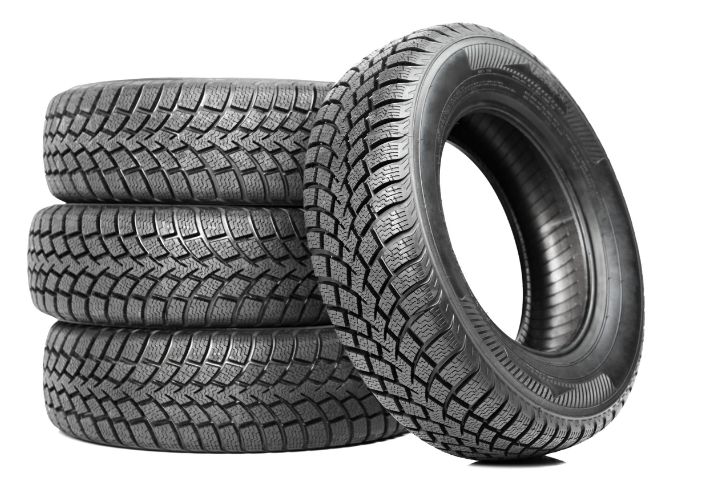
Chaoyang is a Chinese tire manufacturer that produces tires for vehicles such as bicycles, motorcycles, and cars. Due to their competitive pricing, brands like Chaoyang gained traction in Asia. However, some customers complain about the company’s subpar sidewall protection and susceptibility to popping at high speeds. Such faults are primarily due to the tires’ thin construction.
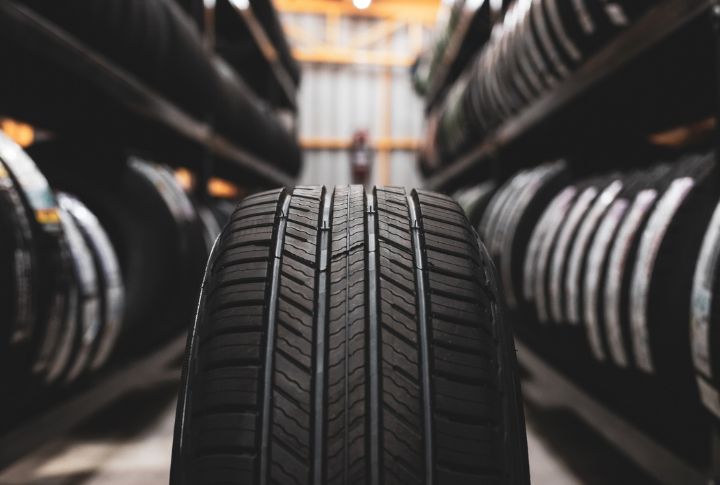
Manufactured in China and exported worldwide, AKS Tires is on the list of tires to avoid due to limited accessibility of information regarding its features and technologies. Their products sometimes fail to provide adequate traction, even on optimal road surfaces. Moreover, inconsistent quality control often leads to several defects during usage.
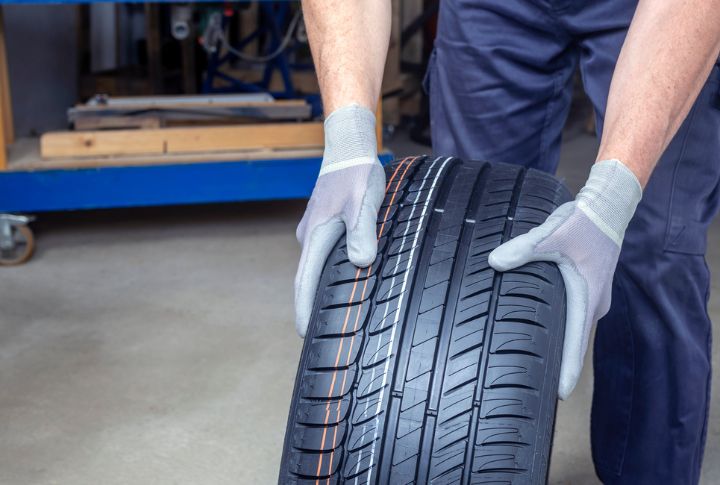
Many customers appreciate Telluride for its cheap tires. Yet, the lower cost doesn’t guarantee value. Their products wear prematurely, probably due to incorrect curing, which creates weak spots in tires. They also lack adequate quality control measures during production.
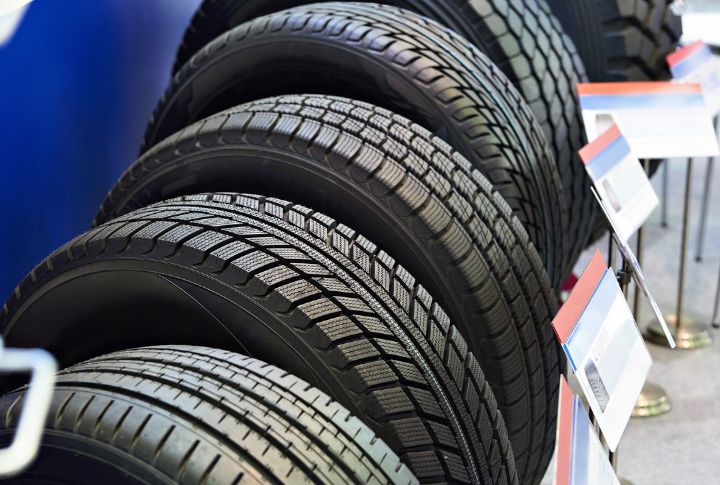
Compass Tires
This brand stands out among its counterparts on this list for its extended tread life and superior comfort. Yet buyers should be conscious of its slender casings, which can pose potential risks, particularly in regions prone to rain or snow. Moreover, the budget-friendly sidewall design may render the tires susceptible to punctures.
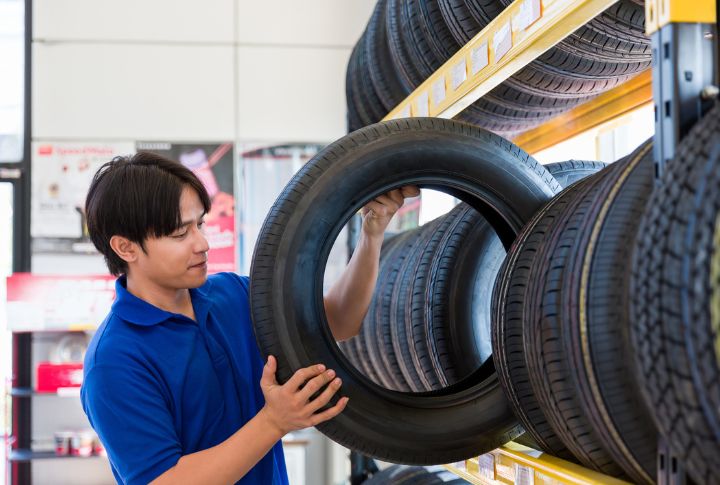
Geostar, a Chinese tire manufacturer under Nankang, offers budget-friendly tires designed to get you where you need to go. Conversely, the tires often lack durability due to improper bonding of rubber layers, including foreign materials, and inconsistent curing temperatures. These factors result in irregular wear patterns that reduce the Geostar tire’s lifespan.
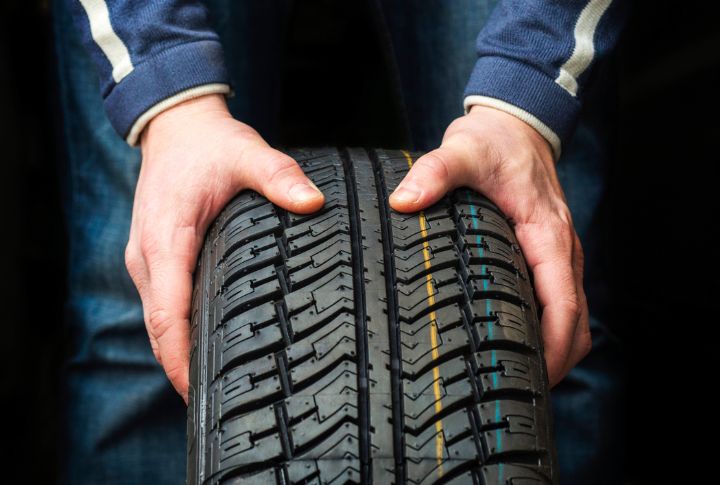
Despite a decade of tire production, there are reasons to steer clear of this brand. Though a China-based US firm, its material quality is subpar, leading to a lackluster performance on dry and wet roads. Furthermore, its limited design selection gives customers fewer choices than other brands.
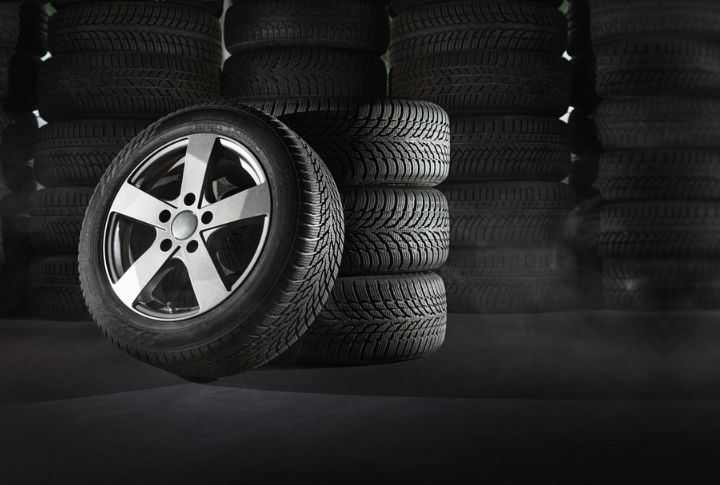
Founded in 1996, Accelera, an Indonesian tire maker, is known for its high-grade models. Nevertheless, despite its advertising claims, users report issues with its wet performance. This fault could result from inadequate tread design and an uneven distribution of essential compounds like silica, which impact the tire’s grip on wet surfaces.
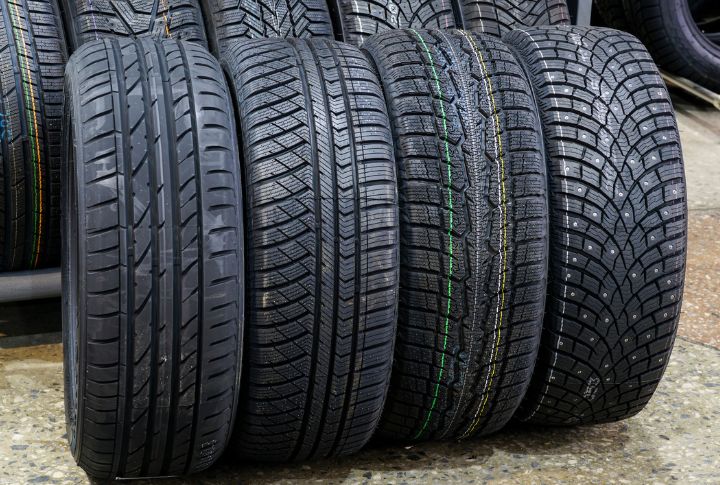
One issue commonly reported by drivers is the lack of long-term durability and reliability in their designs. Some drivers have found that these tires fail to reach even 20,000 miles, raising concerns about their overall grade.
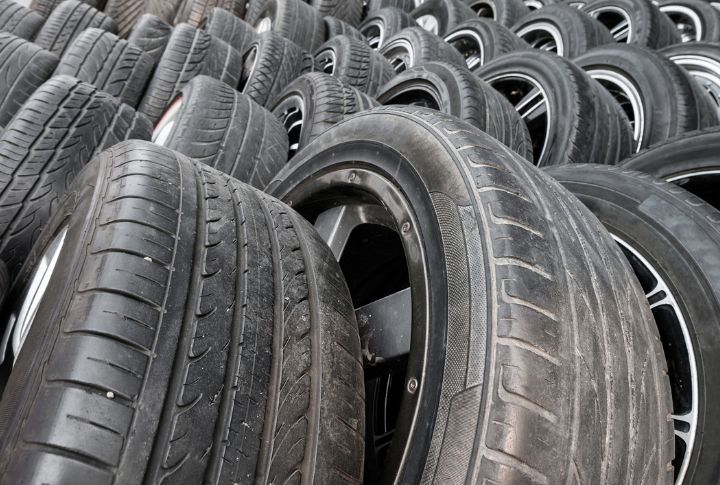
Triangle Tires
Another Chinese-based company, Triangle Tires, is famous for offering budget-friendly tire options. While their designs require substantial enhancement, particularly in wet conditions, the company has forged a promising alliance with the University of Akron for research and development endeavors. This alliance aims to elevate the standard of their tires, potentially leading to superior offerings.
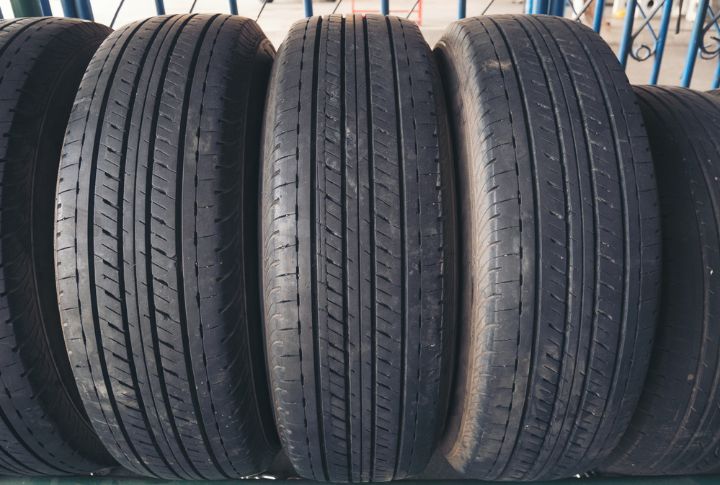
This manufacturer specializes in manufacturing tires for various specialty vehicles, notably trailers. However, users should exercise caution when considering products from China. Reports suggest these tires may not withstand extreme weather conditions, raising concerns about their reliability and safety for purchase.
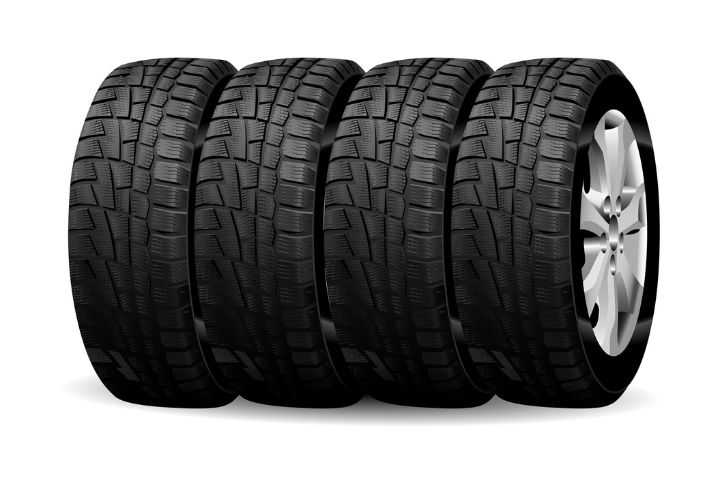
Firestone Destination
The Firestone Destination tires have garnered concern due to their use of grade materials, such as inferior rubber compounds, poor reinforcing materials, and inadequate tread depth. These shortcuts can lead to decreased durability, increased risk of blowouts, and poorer traction, endangering drivers and passengers on the road.
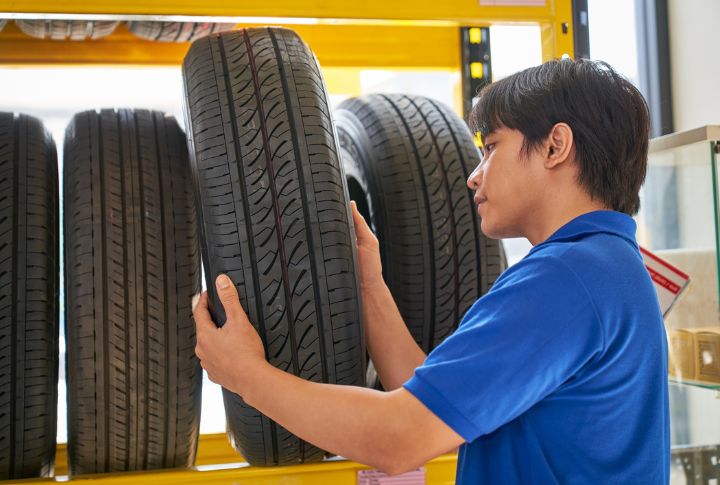
Falken Ziex
Poor wet traction and slippery performance are among their significant faults. These inefficiencies often stem from improper rubber compound distribution or inadequate siping. Also, irregular tread depth and incomplete rubber compound distribution can hinder water evacuation, increasing the risk of hydroplaning.
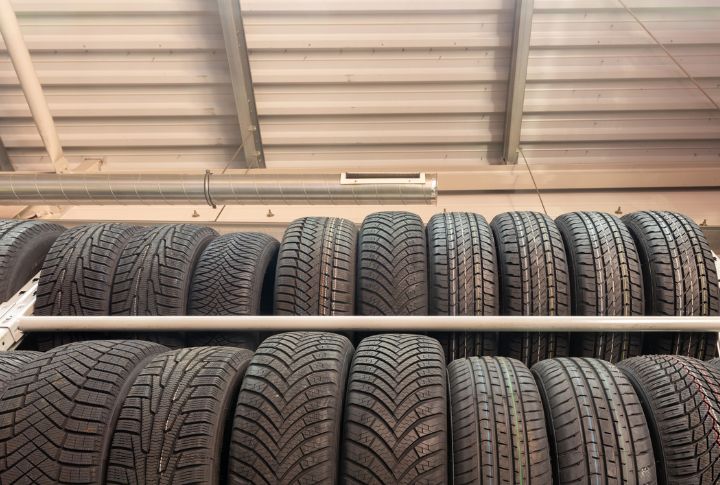
Low-end General Tires
Some of the issues with this brand include the use of inferior materials, noisy tires, and poor durability. Manufacturing faults like uneven tread patterns, improper belt alignment, or inadequate bonding between layers can lead to these challenges. Additionally, tread separation due to poor adhesion, uneven tire construction, or defects in the rubber compound can also contribute.
More for You
Stephen Hawking once gave a simple answer as to whether there was a God
‘You’ll end up with $1.5 million in the bank’: Kevin O’Leary says you should do this 1 thing with your 401(k) in order to 'succeed into retirement’
Dolly Parton says it was ‘bold’ of Beyonce to change ‘Jolene’ lyrics without telling her
6 Things A Doctor Wants You To Do Before Getting A Blood Test
Avengers 5 Leaks: 2 Founding Members Returning, One Avengers Villain Will Show up to Help the Heroes
There will be ‘fury and revolt’ if Biden steps away: Kennedy
18 Things In Your Home Professional Organizers Will Always Get Rid Of
The richest comedian in the world isn't Leno or Letterman, based on data. Here are the top 20.
I’m a Bank Teller: 3 Times You Should Never Ask For $100 Bills at the Bank
American Idol star Mandisa’s cause of death disclosed
Claimed Social Security at 62? Here's One Rule You Need to Know About.
NFL QB: Packers get 4 Super Bowl rings with Matthew Stafford
“It was the best part I ever got”: The Dark Knight Star Michael Caine Was Furious Over One of His Best Roles That Landed Him an Oscar Nomination
Matt Gaetz Splits With Donald Trump
Naruto: How Did Kakashi Learn the Rasengan?
Using This 4-Word Phrase Instead of 'Thank You' Will Improve Work Relationships and Make You a Better Leader
Here's What Happens When You Withdraw $10,000 From Your Bank Account
20 Best Sandwiches in America You Need to Try At Least Once
"It Saves Me Roughly $400 A Month": People Are Sharing The New Frugal Habits That They Actually Really Love
The Common Household Ingredient That Can Unclog Slow-Draining Sinks And Tubs

COMMENTS
Why trailers that sit too long need new tires; The easy way to know your trailer tire age; Why trailer tire inflation is critical for safety ... these tires were already 4 years old. The tire center told me, that the average life of an ST tire is about 5 years, so, really, the blowout was going to happen sooner or later. Please, always check ...
Average life of a travel trailer tire. On an average a travel trailer tire can last around 5-6 years. Some people may also see them last more or even see that the tires go out of use earlier. But mostly, they should last around 5 years; if used with proper care and maintenance.
The average lifespan of travel trailer tires is around 5 years, based on age rather than wear. Factors such as tire quality, driving conditions, weight distribution, and tire maintenance can affect tire lifespan. Regularly inspect your tires for signs of wear and tear, such as cracks, bulges, uneven wear, and low tread depth.
The answer is "No.". For example, for towables, it's not uncommon to hear people claim that you should replace your tires every 3-5 years. And for motorhomes, 5-7 years is commonly quoted. But we've safely run our motorhome tires for as long as 10 years.
Some people use their travel trailer for occasional road trips and vacations while some practically live in it. That difference in usage frequency affects the lifespan of tires. When you are using the camper day in and out, the tires will wear off a year earlier than the ones used once or twice in a month.
What that means is you may not get 10,000 miles on your tires or have them last past 7 years. You need to practice good tire care and maintenance just in case. On average a good trailer tire will last you about 5 to 6 years. Some will have them last longer while others may not see even 5 years. Learn why here.
Smaller trailer tires tend to only get 10-15k miles before they might need replacement. Larger fifth wheels usually get between 20 and 30k out of their tires, but we have had a set last us 50k. Motorhomes with passenger tires (car or light truck) see similar mileage to a car but maybe a bit less due to weight.
RV tires last about 3-6 years with regular use. However, certain conditions can speed up of the degeneration of your tires. One of the best all-around tires is the Goodyear Unisteel RST Radial Tire for longevity and quality. Just like how you need a great pair of shoes to get you through hours of hiking, walking, sports or other activities ...
The mileage that RV tires can last depends on various factors such as the tire's quality, maintenance, driving habits, and weather conditions. In general, RV tires can last between 10,000 to 50,000 miles before they need to be replaced. However, mileage is not the only factor that determines when to replace your RV tires.
Most RV and travel trailer tires should be replaced every 10,000 to 15,000 miles. But each manufacturer recommends a service life for their tires, so it's best to seek their advice on tire replacement intervals. RV tire covers can protect your tires from UV exposure, dry rot, and other wear and tear that can shorten your tire's lifespan ...
Let's get down the brass tacks. Depending on the size and mileage accrued, a well-maintained RV tire should last you around four or five years. With that, you should be able to squeeze out between 10,000 and 15,000 miles for smaller RV tires, and potentially upwards of 30,000 for larger vehicles.
The typical RV tires will last for around 8,000 to 15,000 miles, depending on the quality of the tread and usage. For most RV adventurers this translates into about three to five years of use before the RV's tires need replacing. Though there are several factors and maintenance tasks that can increase or decrease the lifespan of your RVs tires.
This means 4 times if it is 36°F hotter or 8 times if the rubber is 54°F hotter. This is why tires that are on RVs that spend most of their life in Southern Tier states like FL, GA, TX, or AZ, will fail earlier than tires that spend most of their time in ND, MI, NH, ID, or OR. But a tire that spends its life in Phoenix will "die" in maybe ...
A tire that is not in use can degrade from ultraviolet (UV) exposure. The life expectancy of a trailer tire varies from manufacturer to manufacturer; however, most are between 3 to 8 years, regardless of mileage. Carlisle Tire estimates that one-third of a tire's strength is gone in approximately 3 years.
The lifespan of your trailer tires can vary greatly depending on your trailer type. Here are some of the most common types of trailers and the tire lifespans you can expect from each: Flatbed Trailers. Flatbed trailers are designed for hauling heavy loads and require SPECIAL heavy-duty tires to handle the weight.. Usually, the type of tire used for these trailers will be rated for a minimum of ...
Last update on 2024-05-07 / Affiliate links / Images from Amazon Product Advertising API. Understand your RVs tire inflation. Keeping your RV's tires properly inflated will help to extend the life of your tires as well. Whether it's your towable camper, your tow vehicle or motorhome, proper tire inflation is also a key to your tire's longevity.
Certain cases dictate that the lifespan of these tires can shorten or lengthen, depending on different factors. Make sure to check the following to gain a rough estimate of the date to replace your motorhome or travel trailer's tires: Signs of wear and tear; Tire pressure; Valve stem; 5/5 - (2 votes) Joseph Varney. Hi, I am Joseph.
After all, you do not want to purchase a travel trailer only for it to be unusable in a few years. Luckily, travel trailers will last for around 10 years on average. However, 10 years is only the average life expectancy for a travel trailer. Some trailers will last longer, and some will have a shorter lifespan.
The average life of a travel trailer tire is 5 to 6 years. Some tires last longer, while some well-worn ones last for a shorter span. If used with proper care and regular maintenance, your tires should last you around at least 5 years. ... Travel trailer tires should be replaced after it is used for its specified maximum mileage (usually 8,000 ...
The lifespan of travel trailer tires varies depending on factors such as tire quality, usage, and maintenance. As a general guideline, it is recommended to replace travel trailer tires every five to six years, regardless of the tread depth, to prevent potential safety risks.
1. Build Quality and Materials. The construction and materials used in the travel trailer significantly influence its lifespan. High-quality materials, sturdy frame construction, and attention to detail during manufacturing contribute to a longer-lasting trailer. Investing in a well-built trailer can extend its longevity. 2. Maintenance and Care.
Worn-out tires lead to blowouts, and a blowout on a travel trailer can mean serious damage to the undercarriage. ... The average life expectancy of a travel trailer might only be 10 years. But that doesn't mean your trailer will only last that long. Put in the extra effort described above. You'll likely be rewarded with 15, 20, or even 30 ...
It totally depends upon how you use the travel trailer, what was the original design of the travel trailer and many other factors. Lets figure out average lifespan of a travel trailer. Most travel trailers last between 12 to 15 years; however, it is not uncommon for people to use them up to 2 decades and even more.
Motorcylce tires can last up to 15,000 miles in some cases, but how much of that you get depends entirely on a few key factors. ... although the typical lifespan ranges from 3,000 to 15,000 miles ...
Chaoyang. Chaoyang is a Chinese tire manufacturer that produces tires for vehicles such as bicycles, motorcycles, and cars. Due to their competitive pricing, brands like Chaoyang gained traction ...